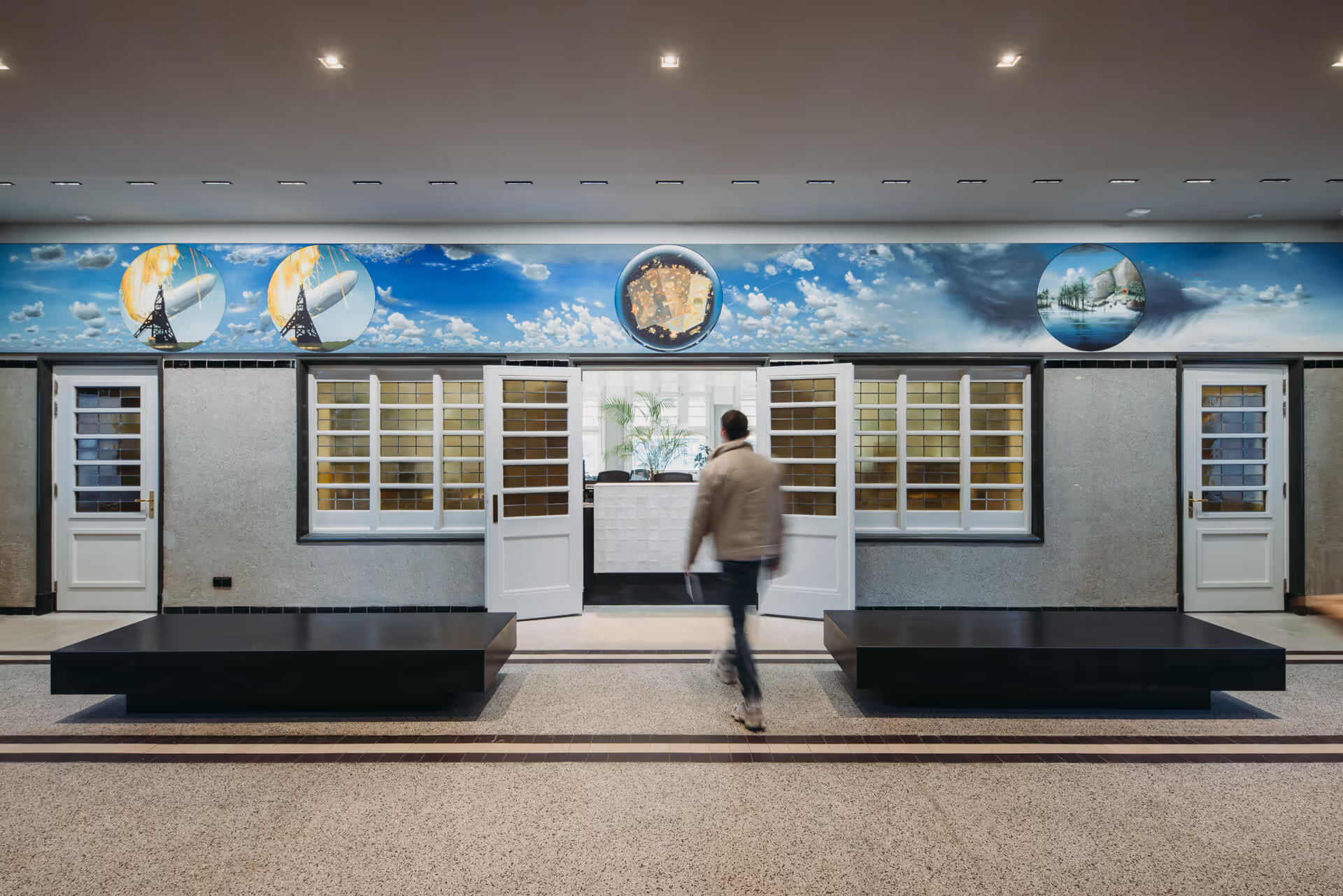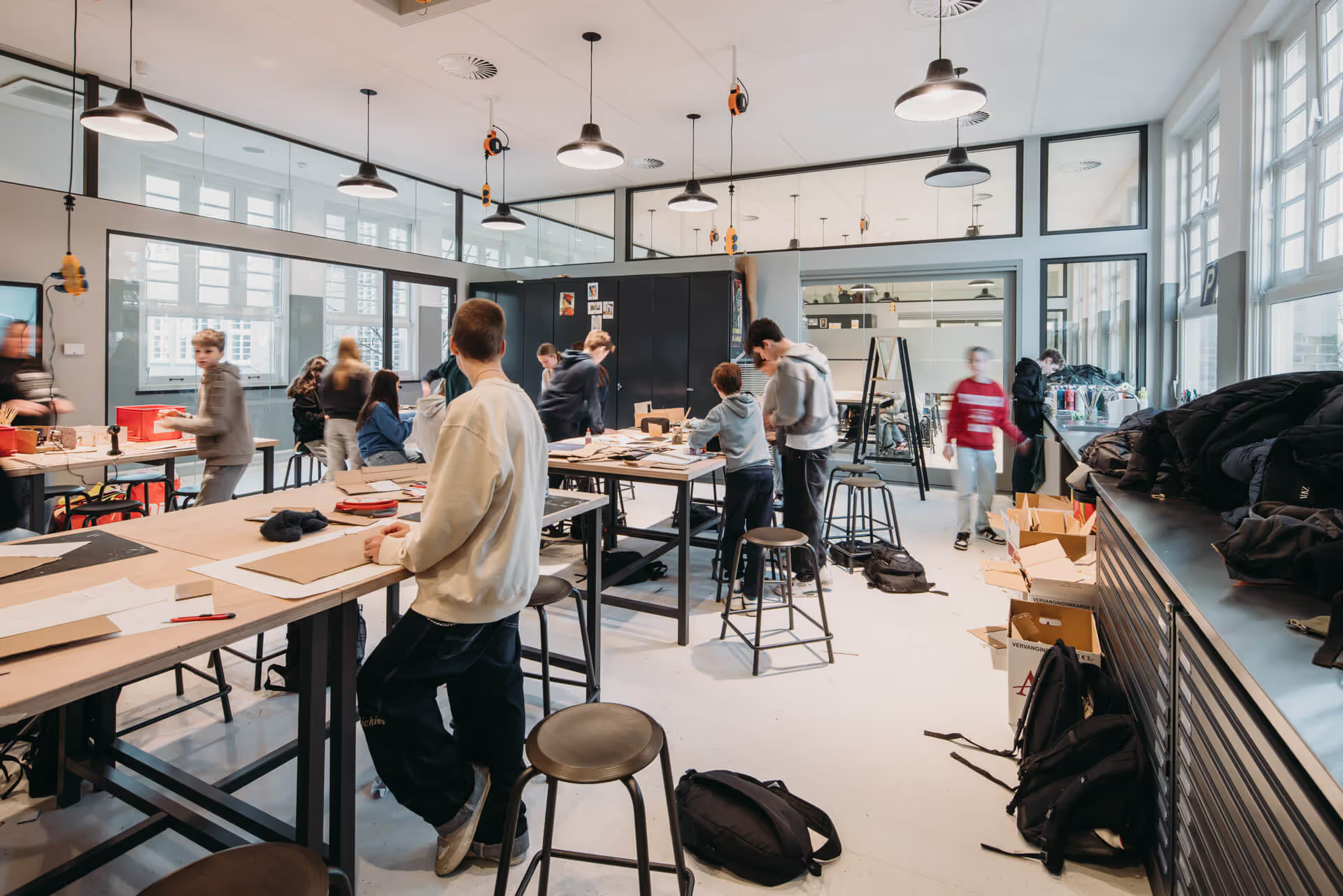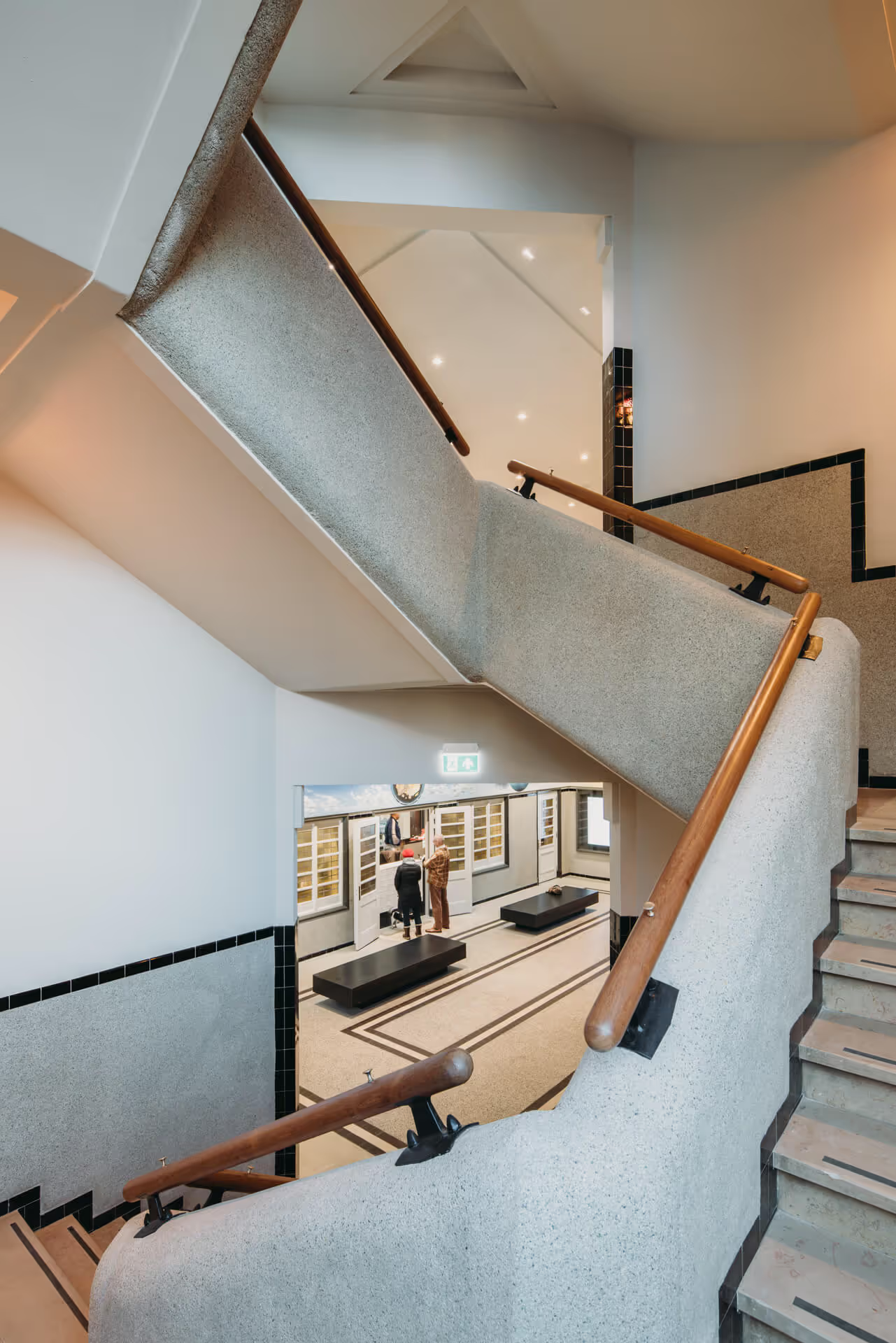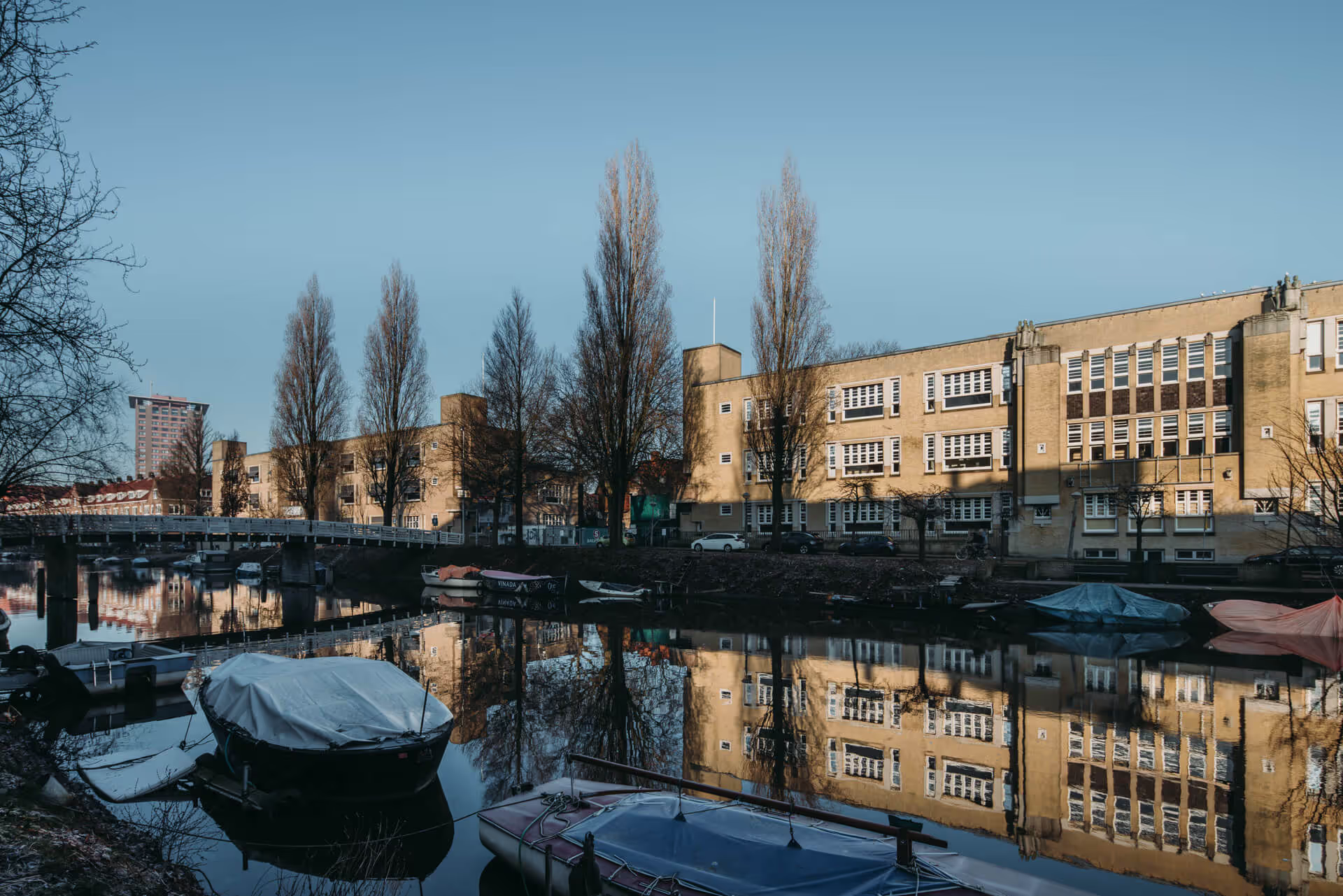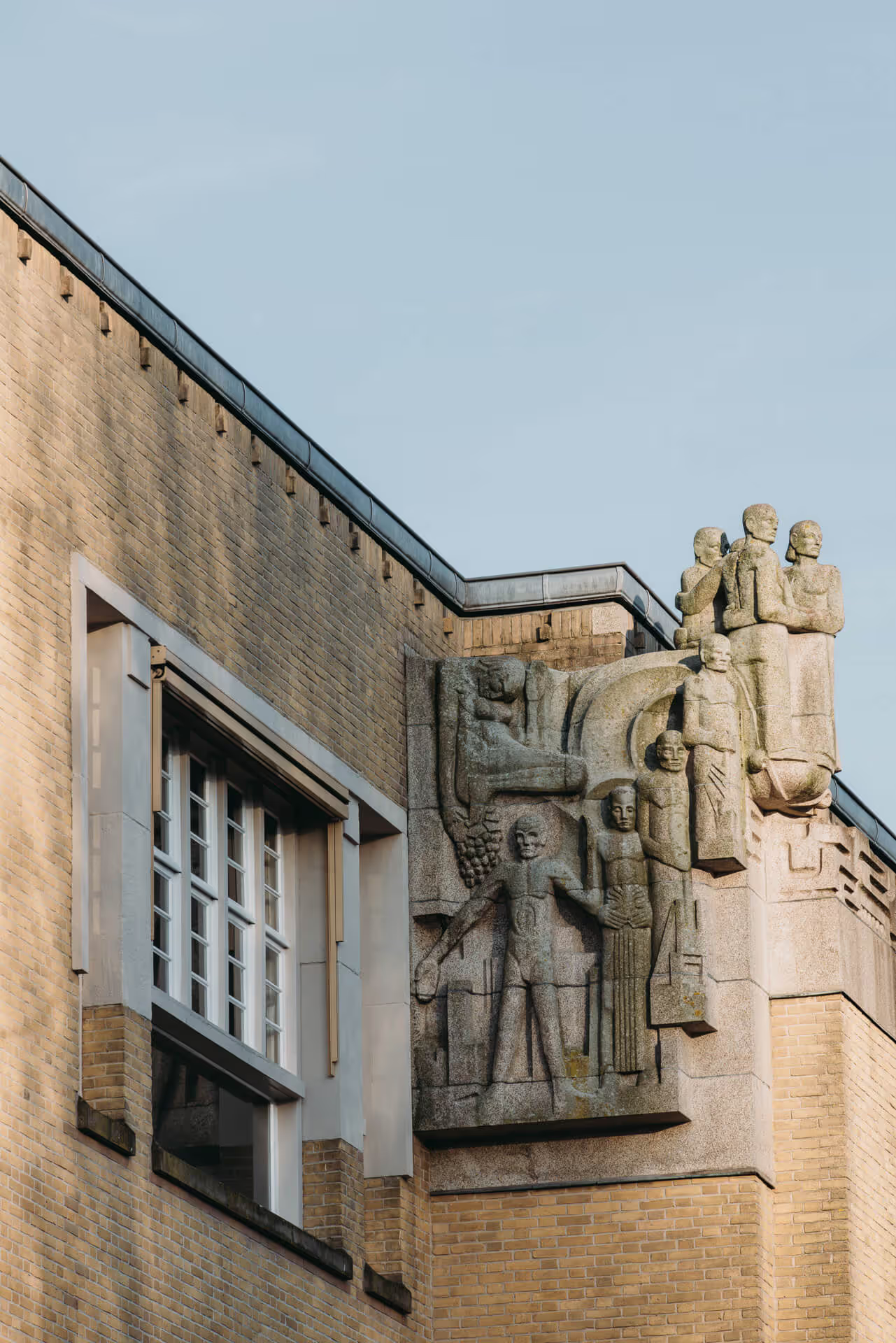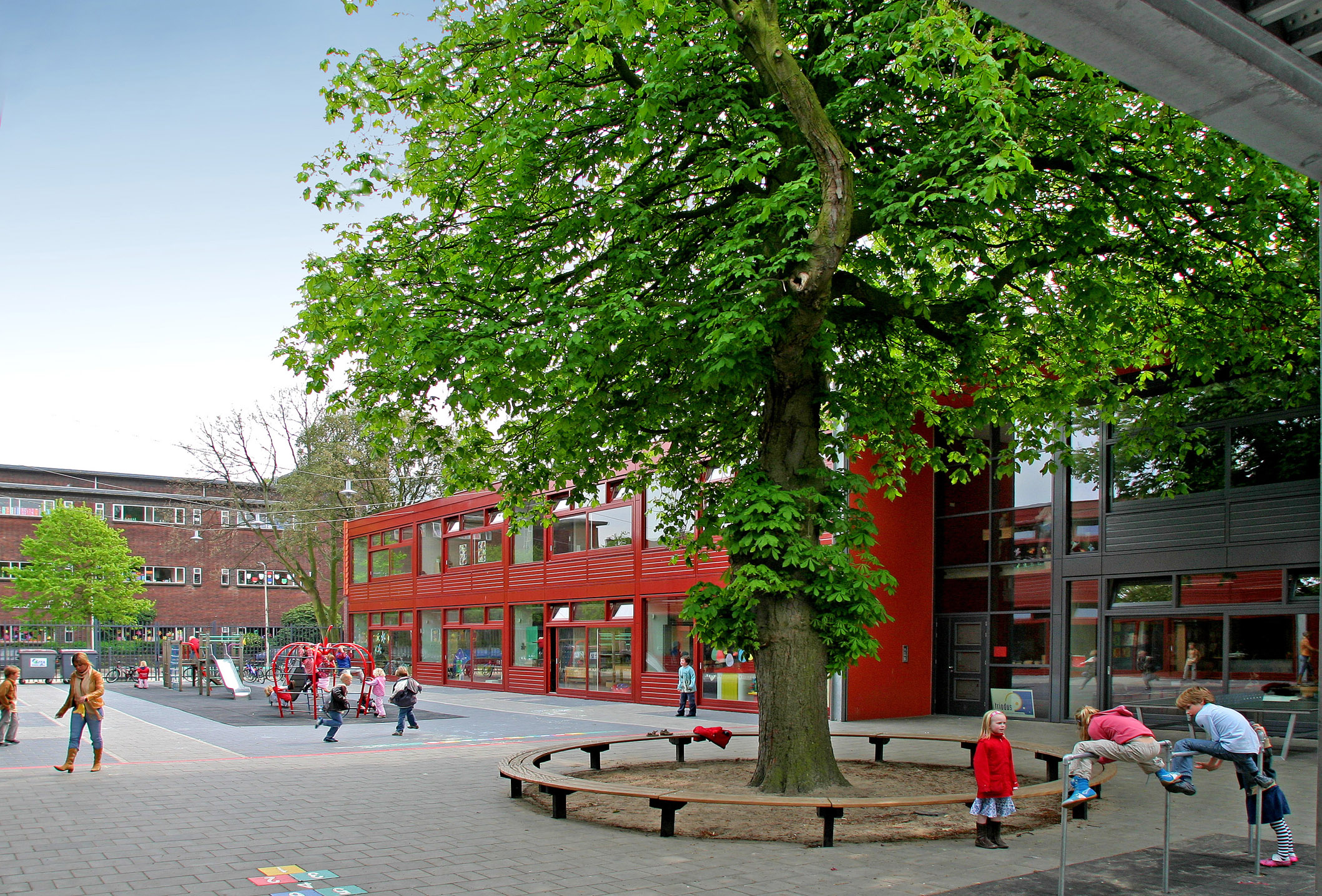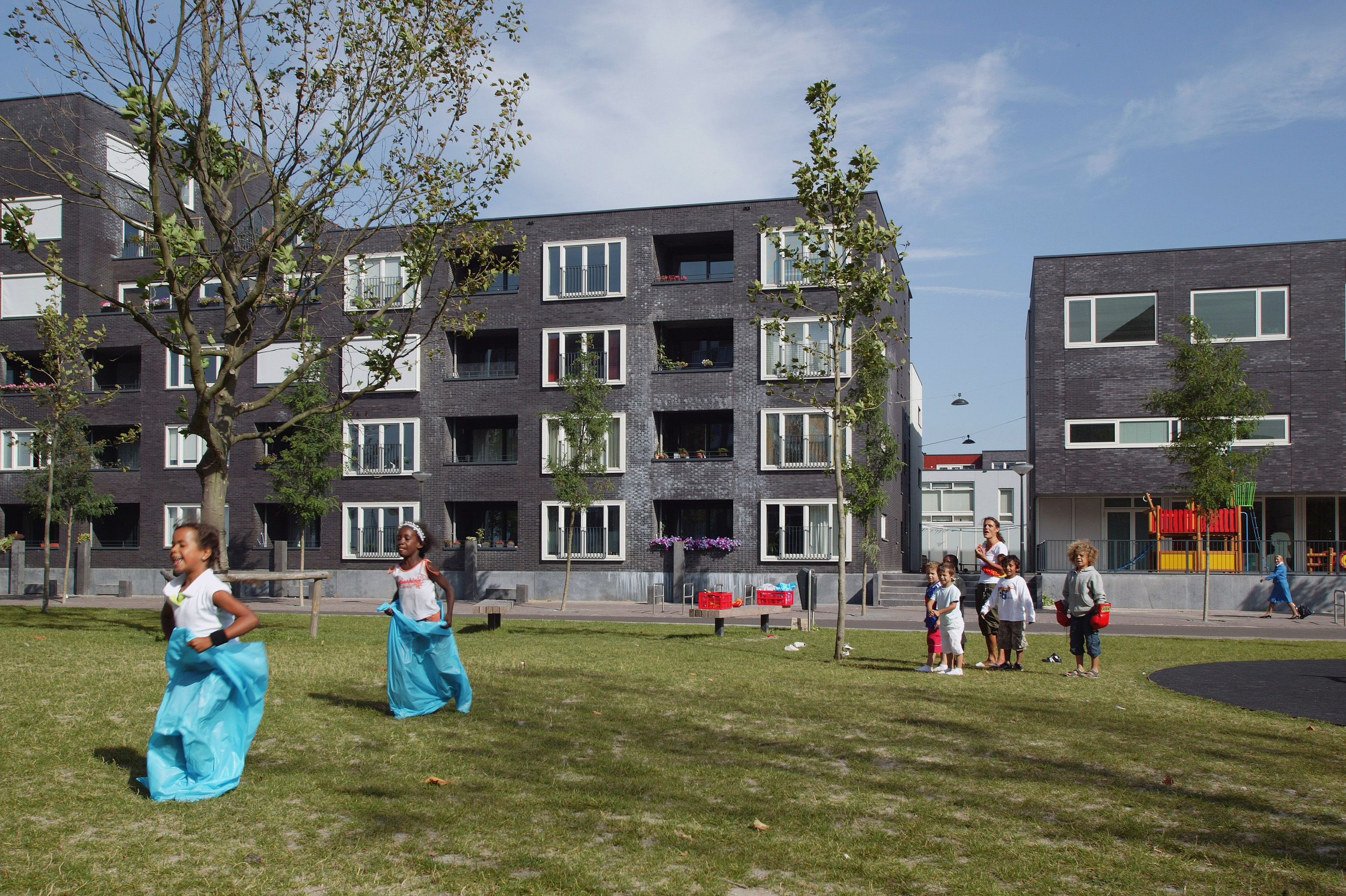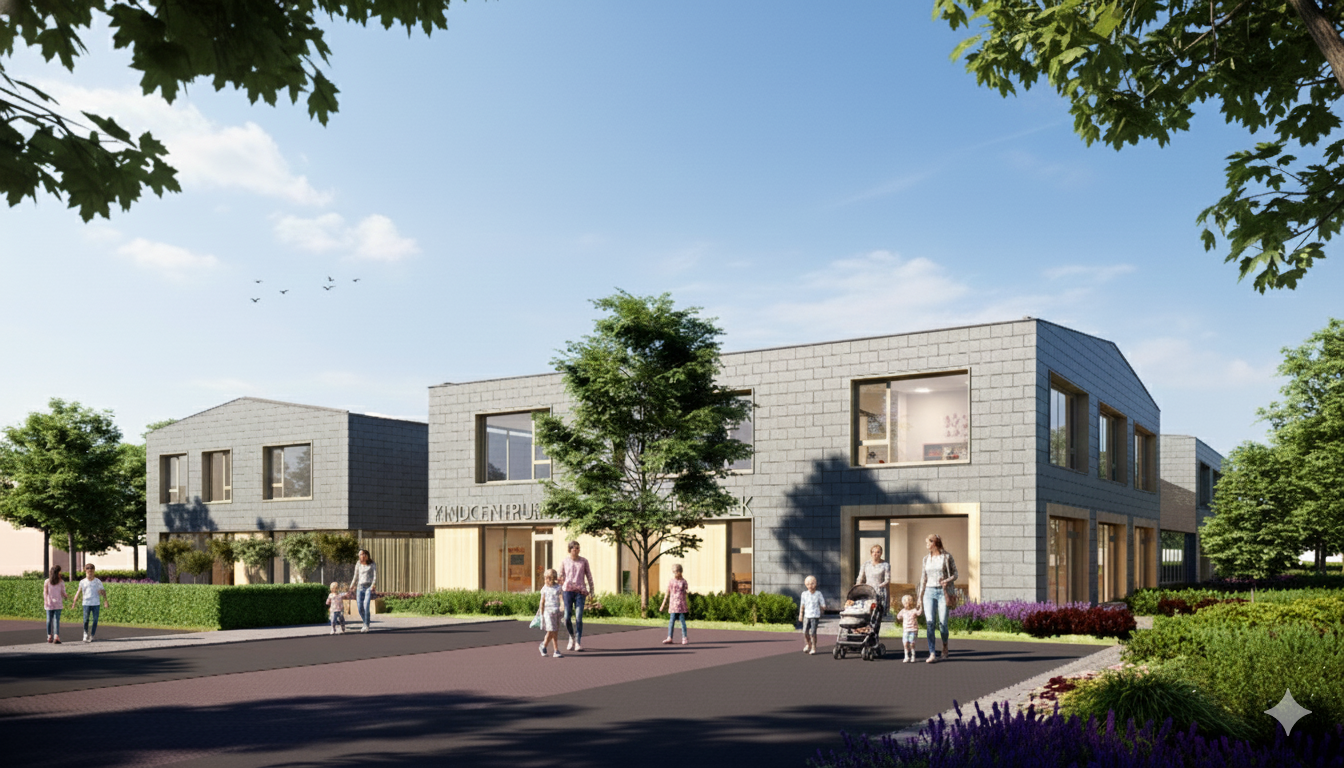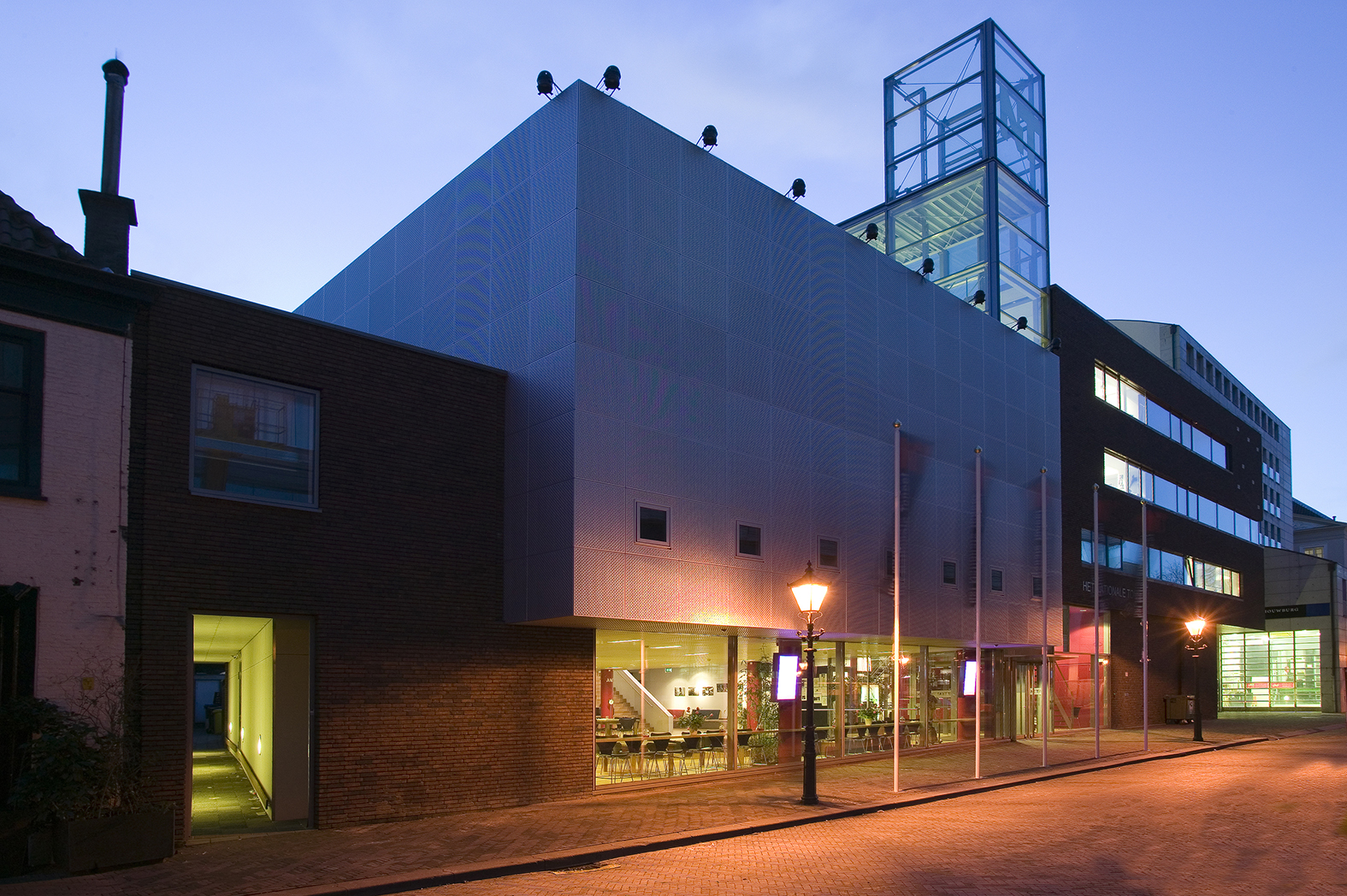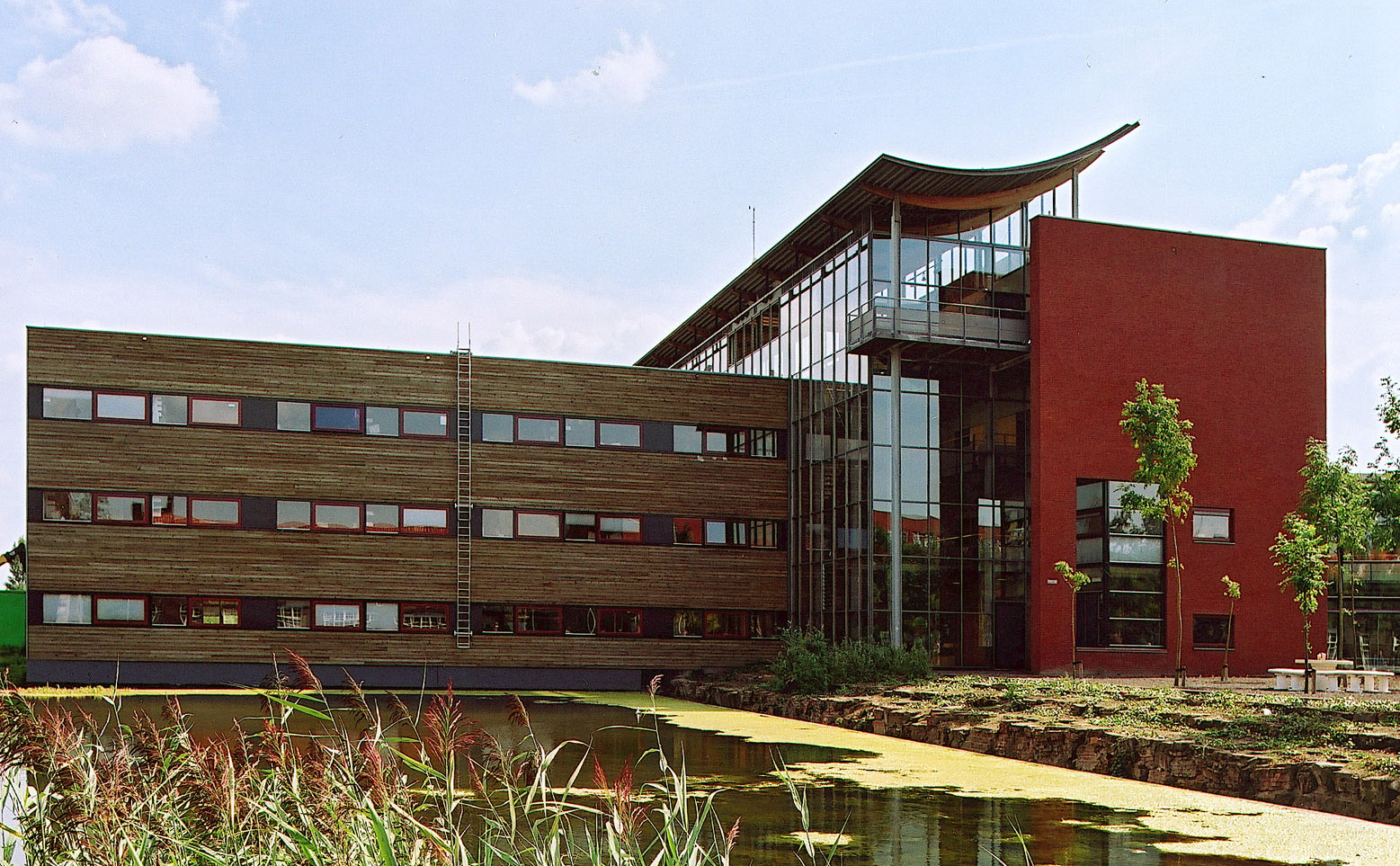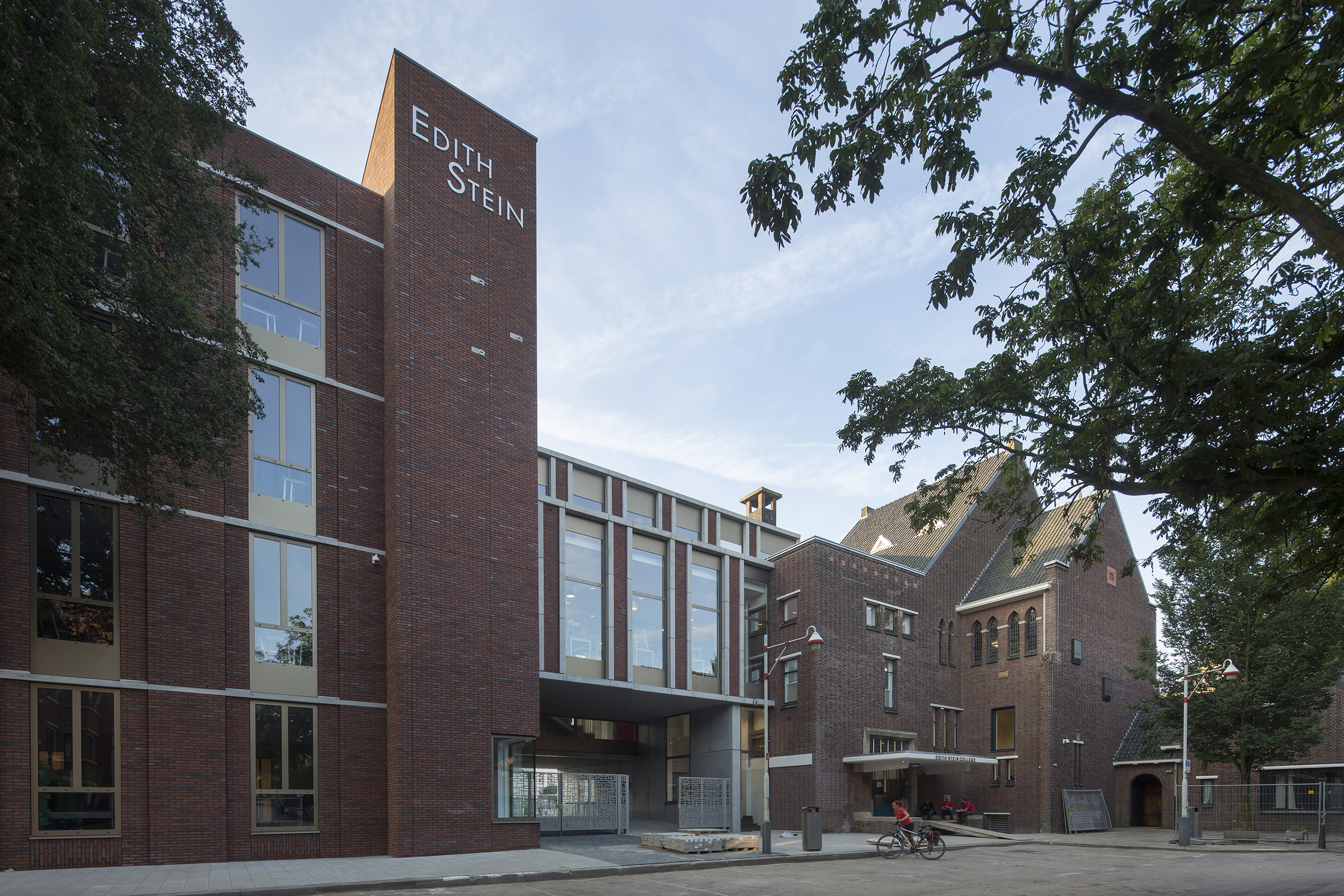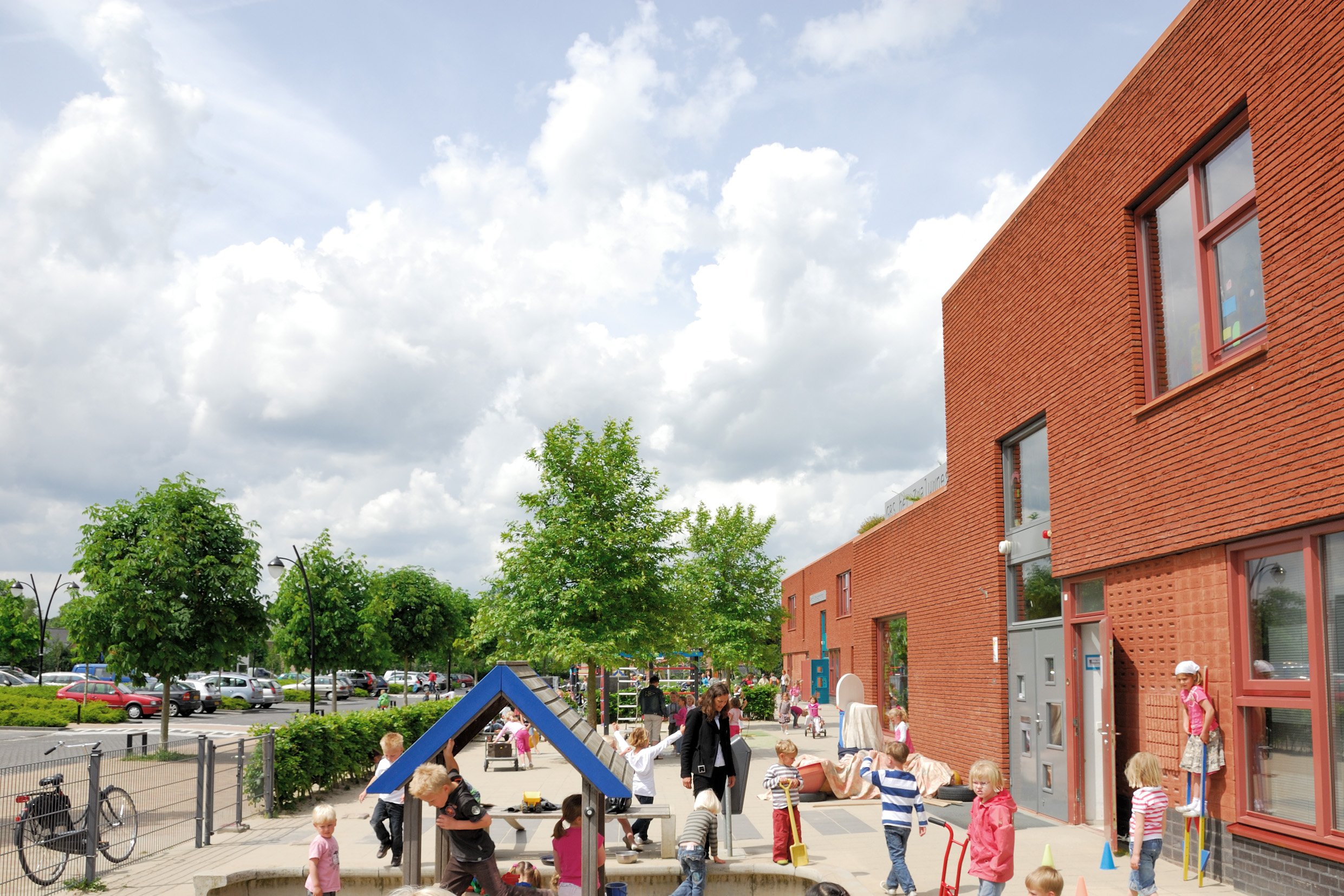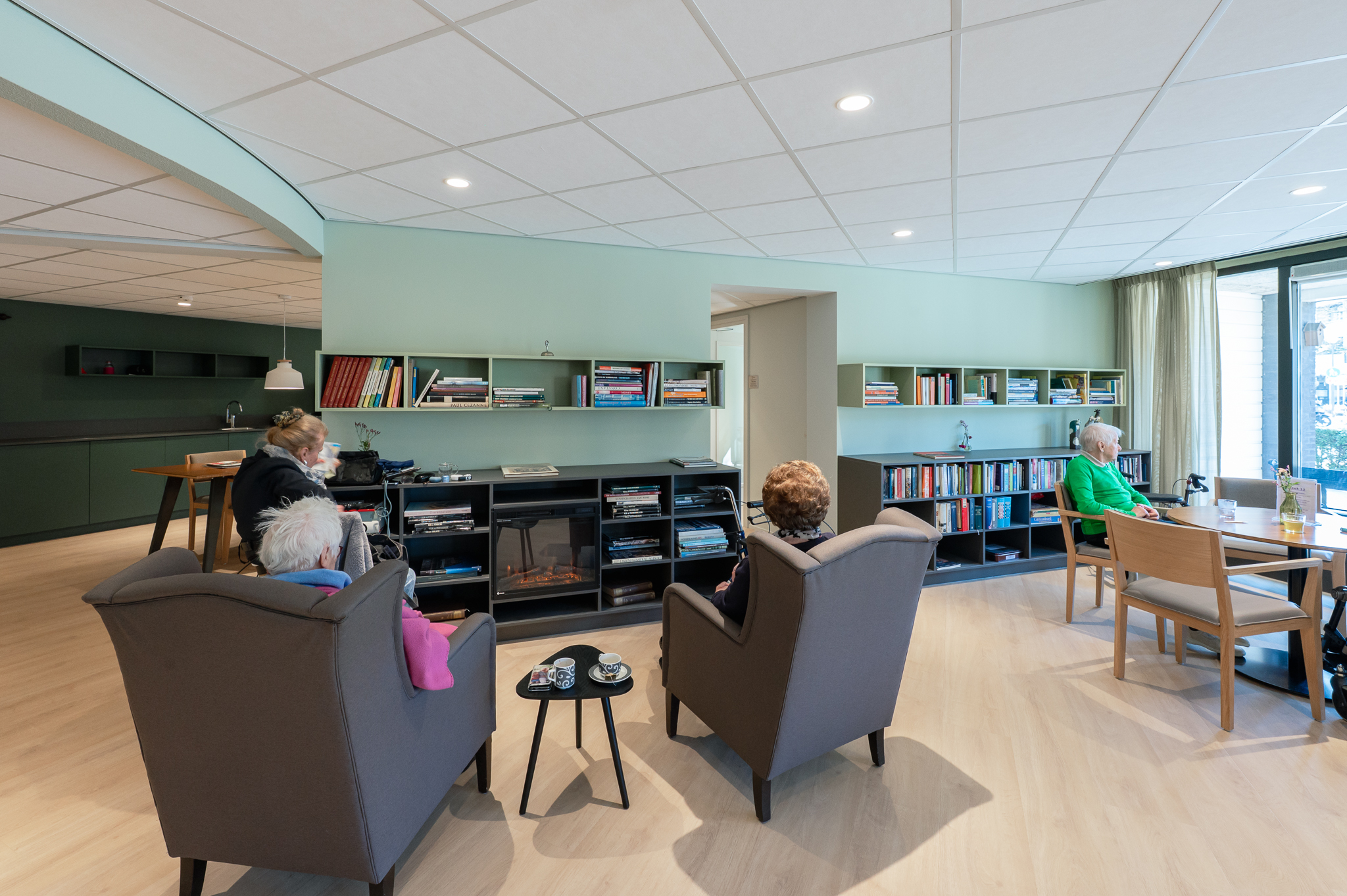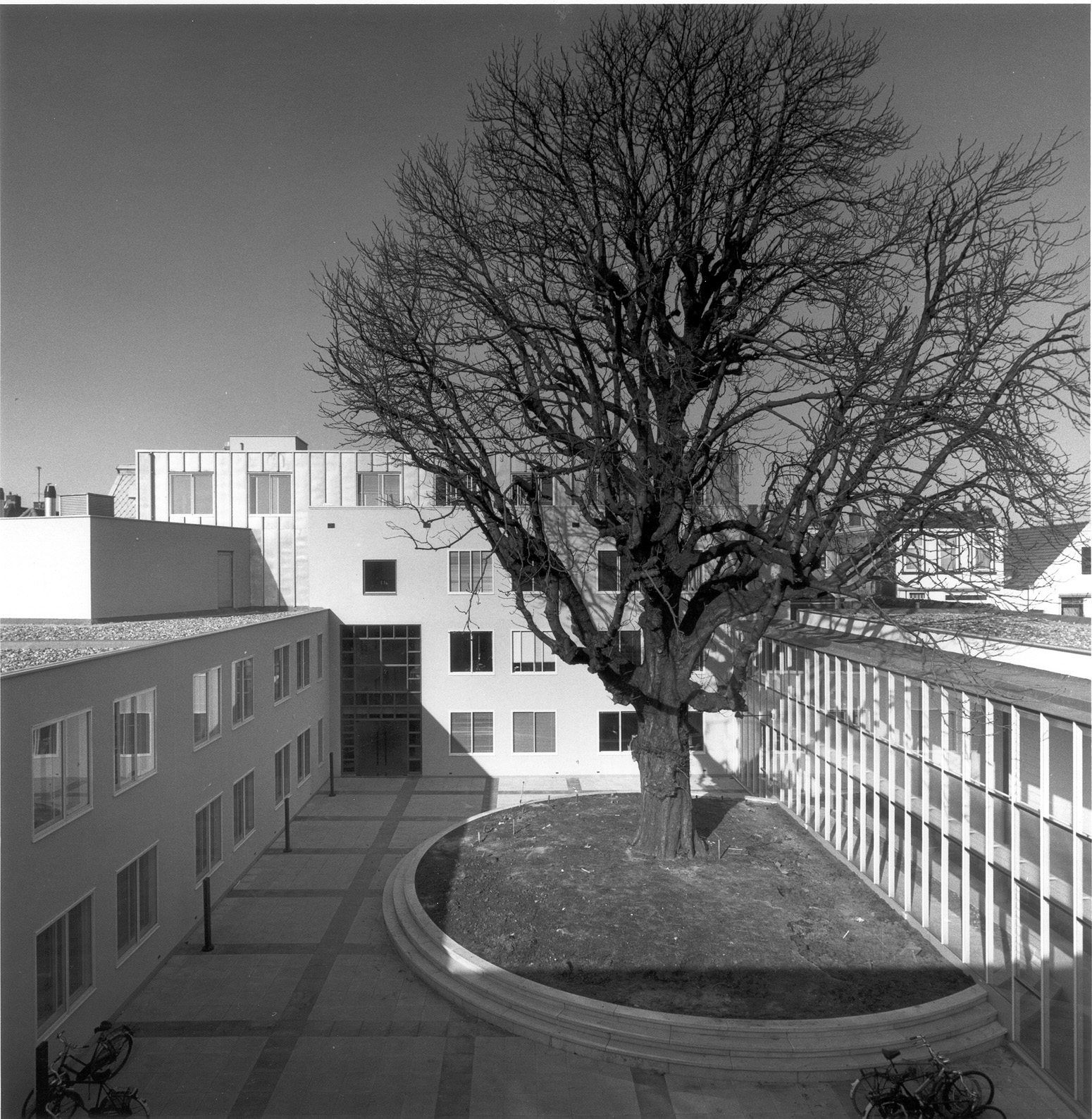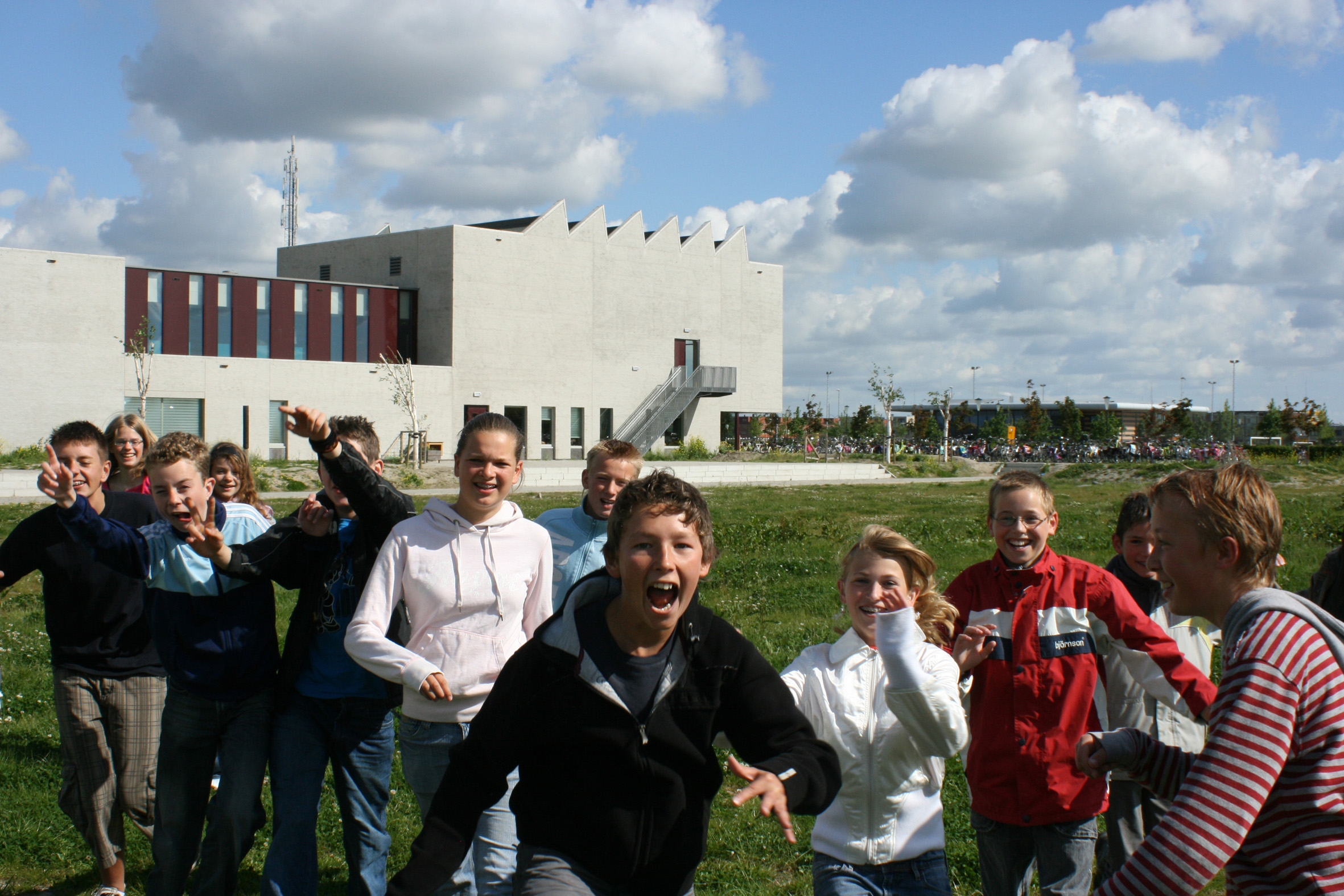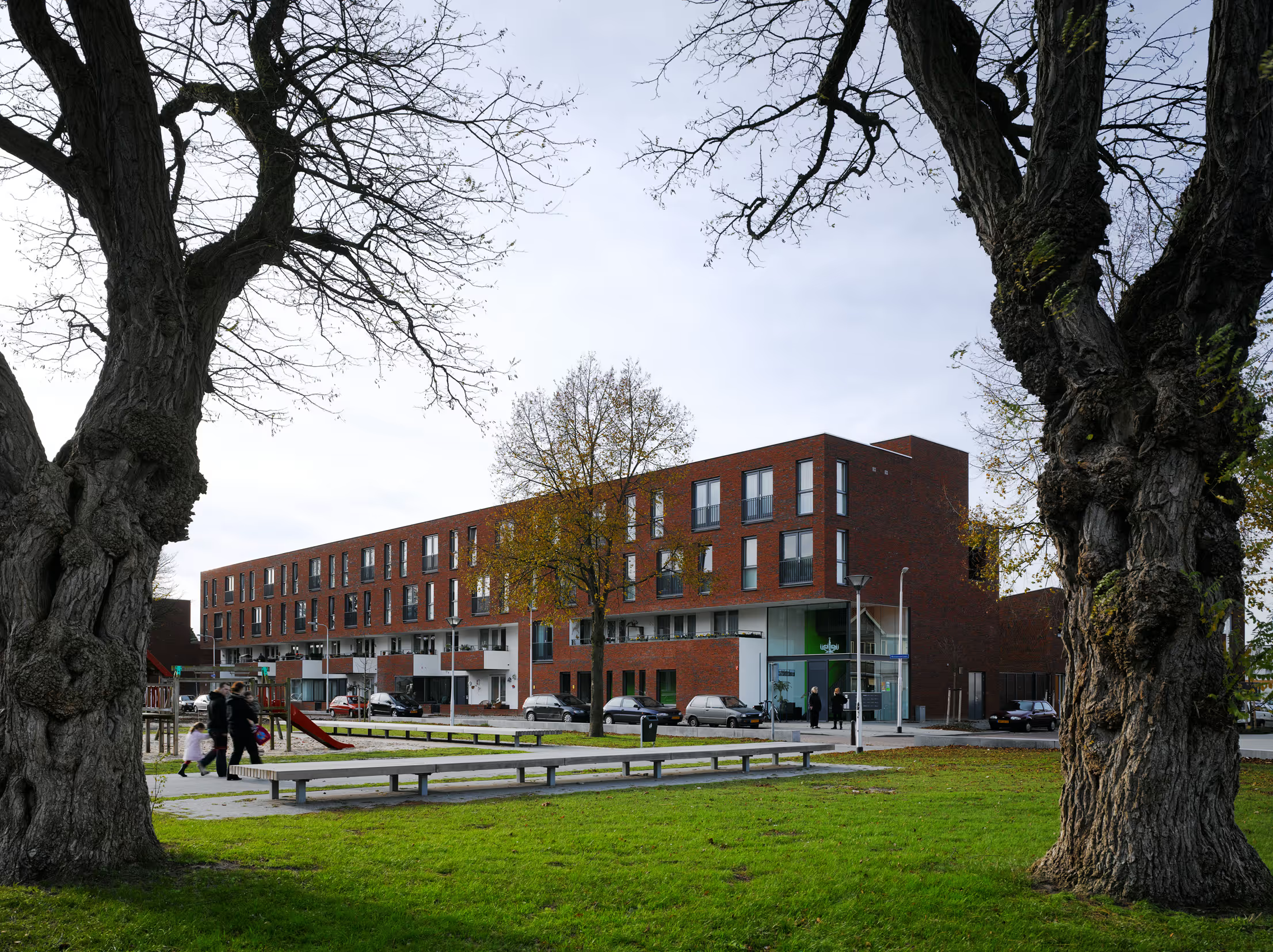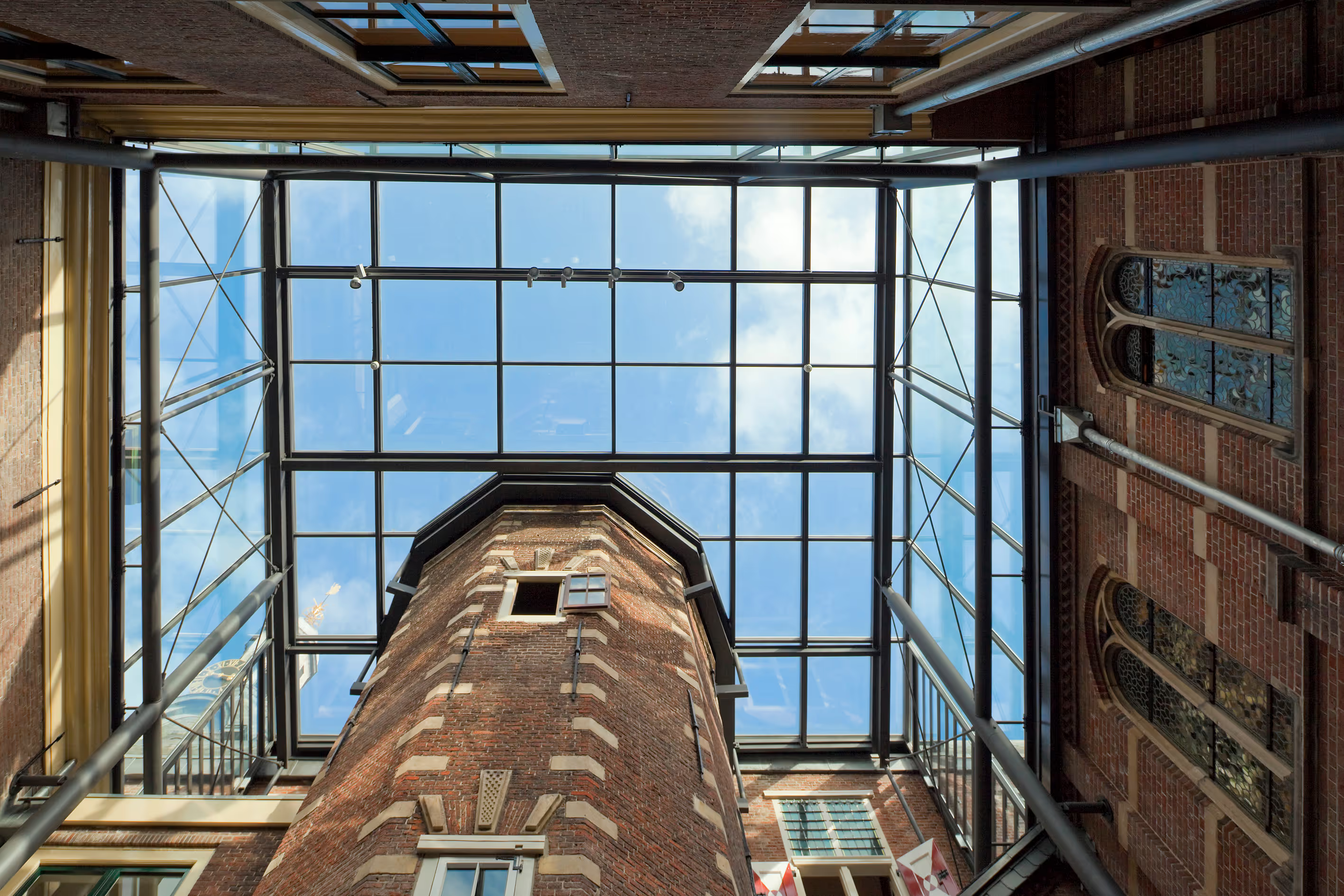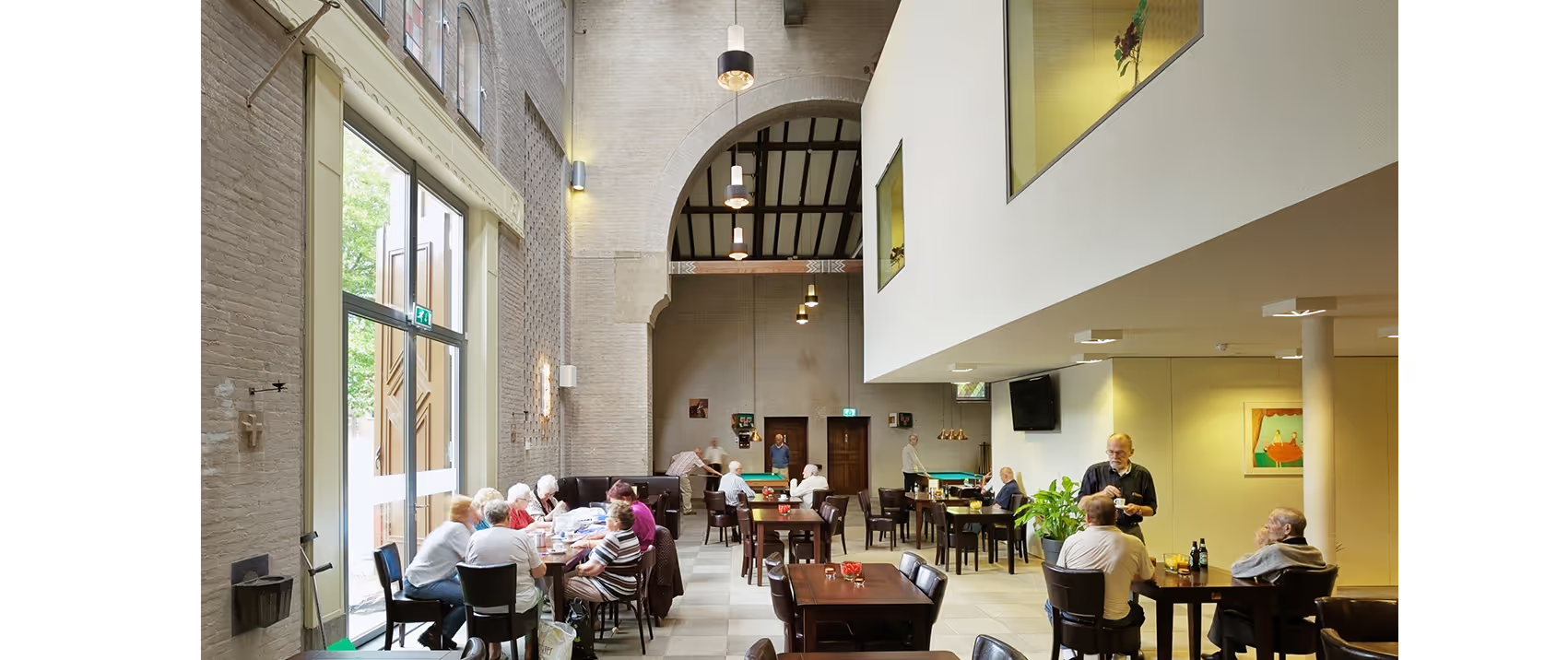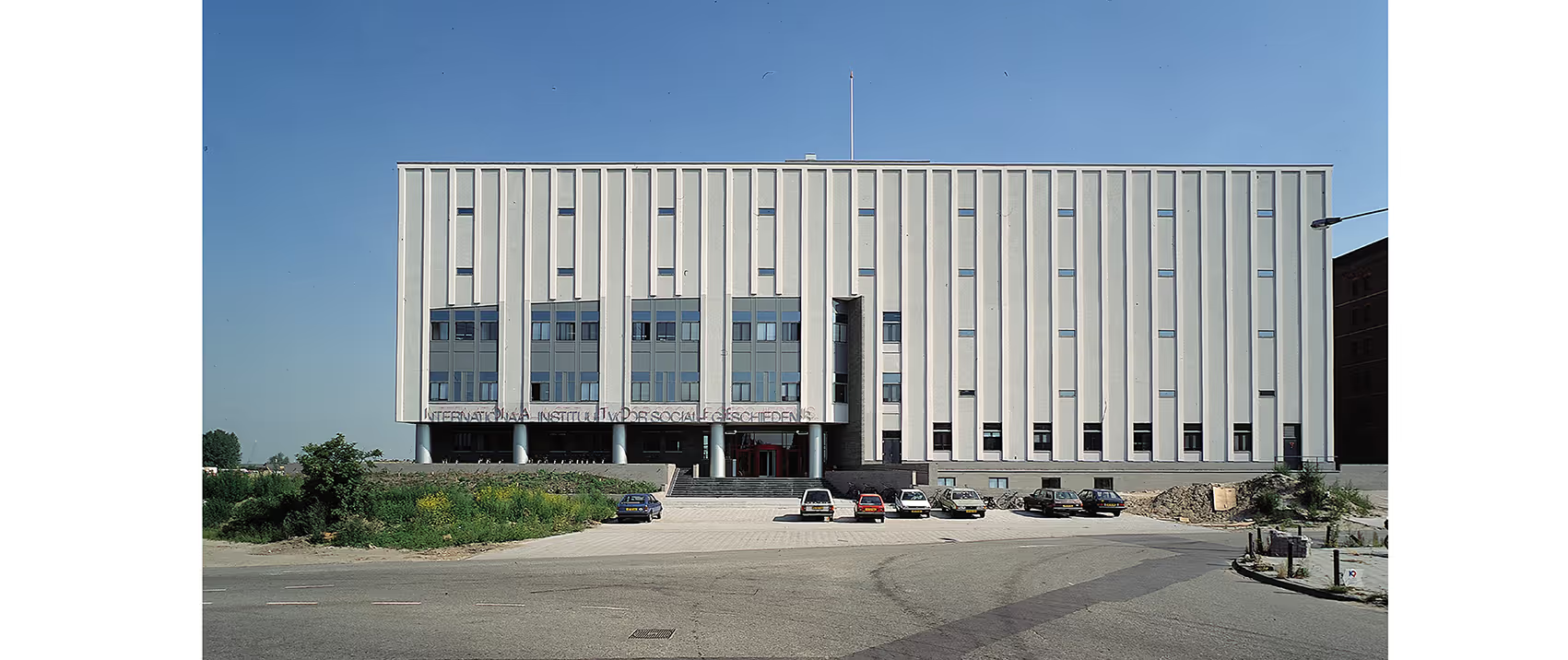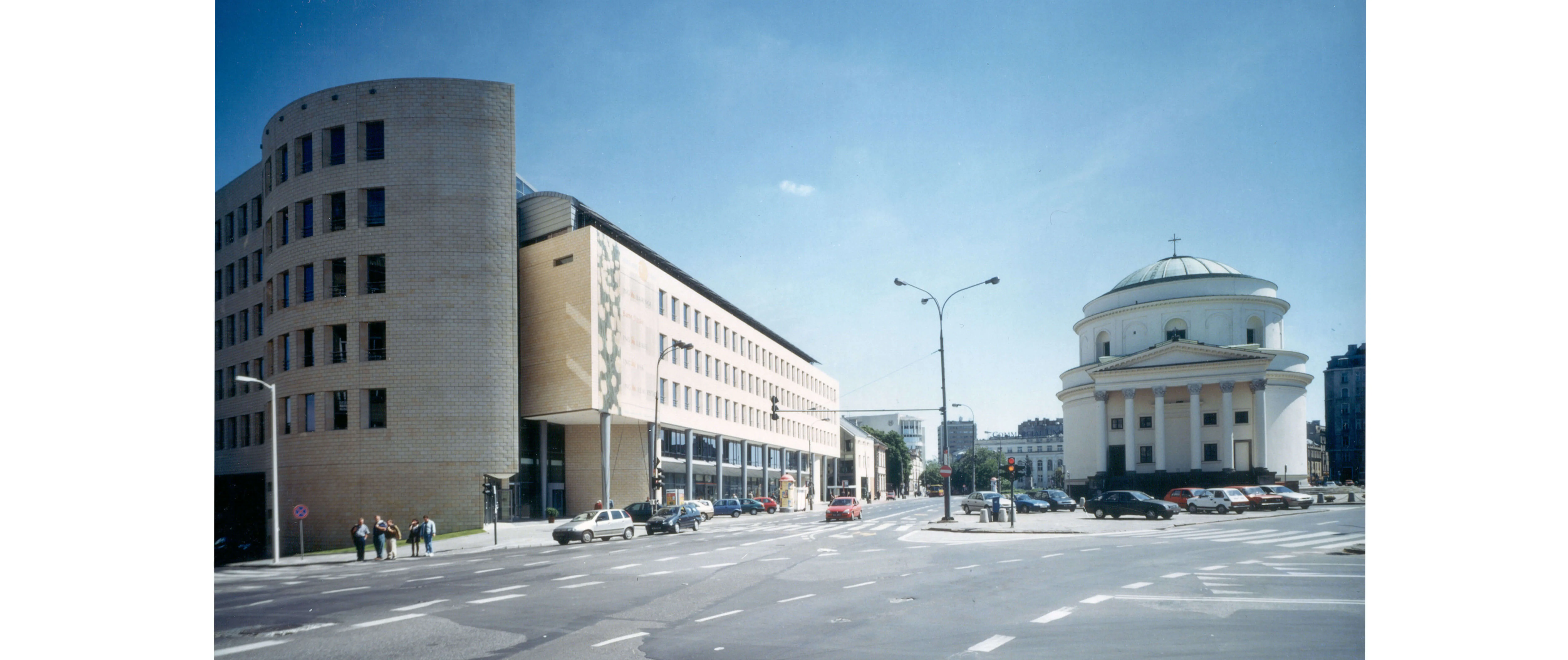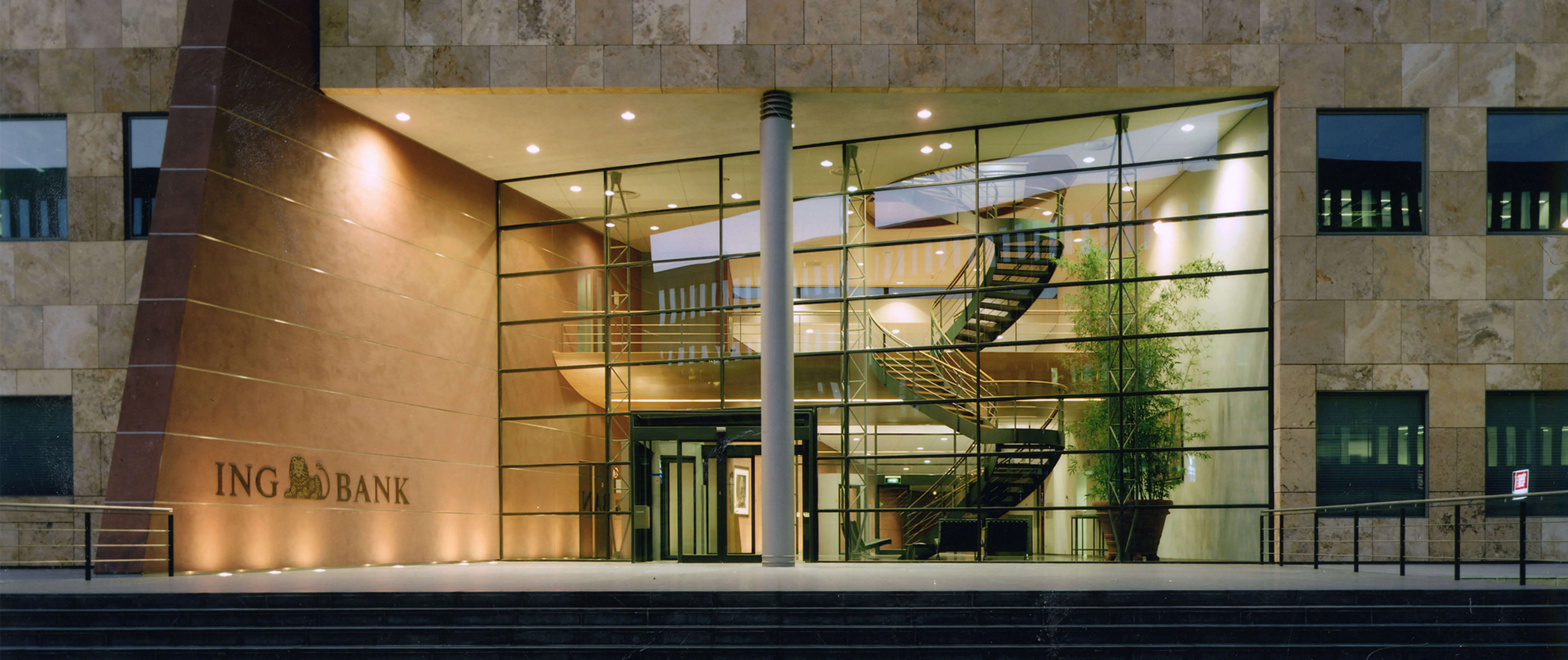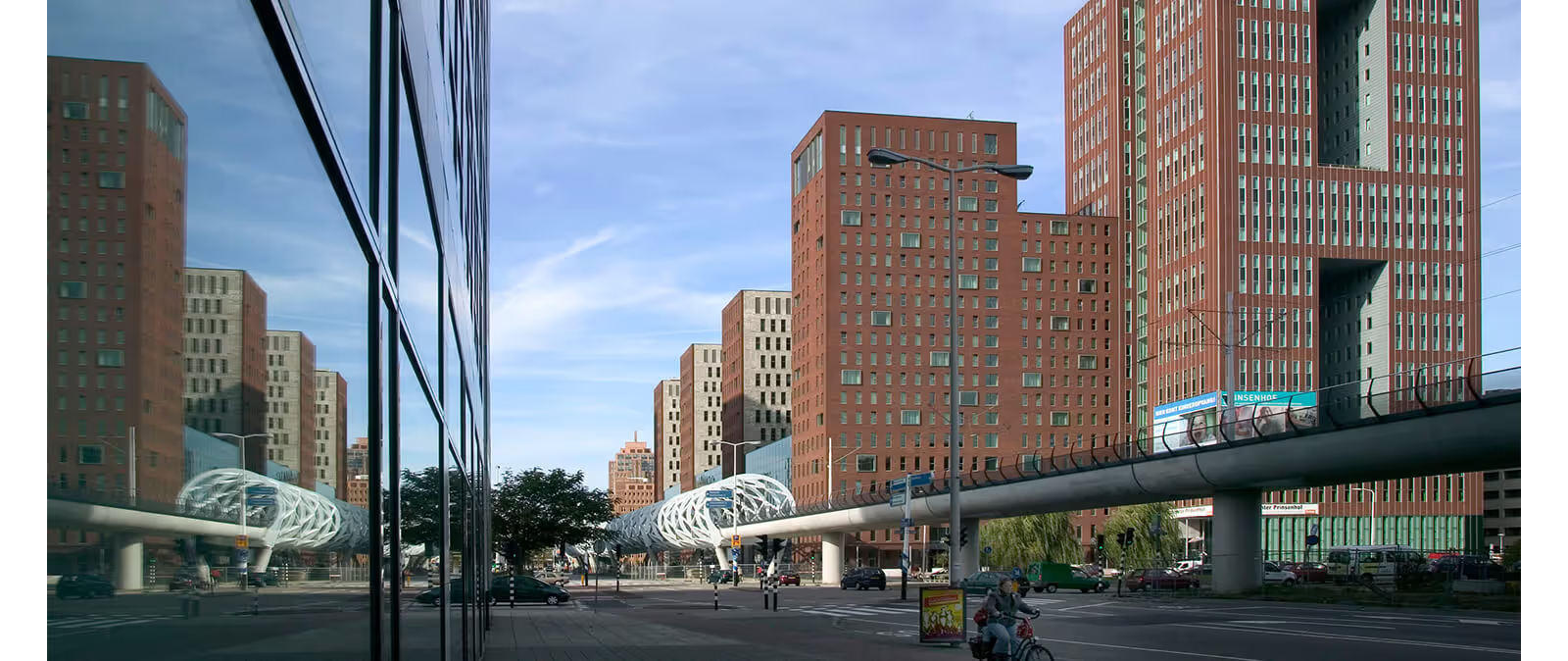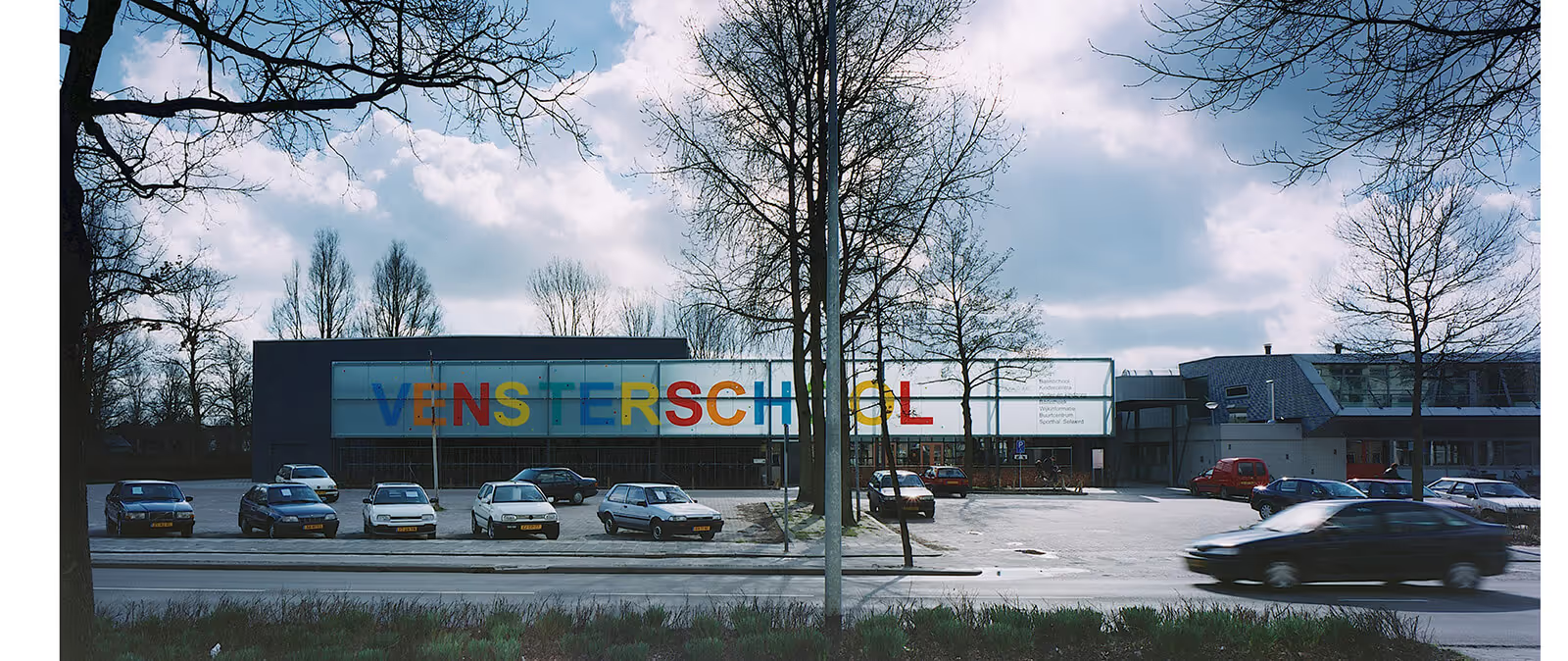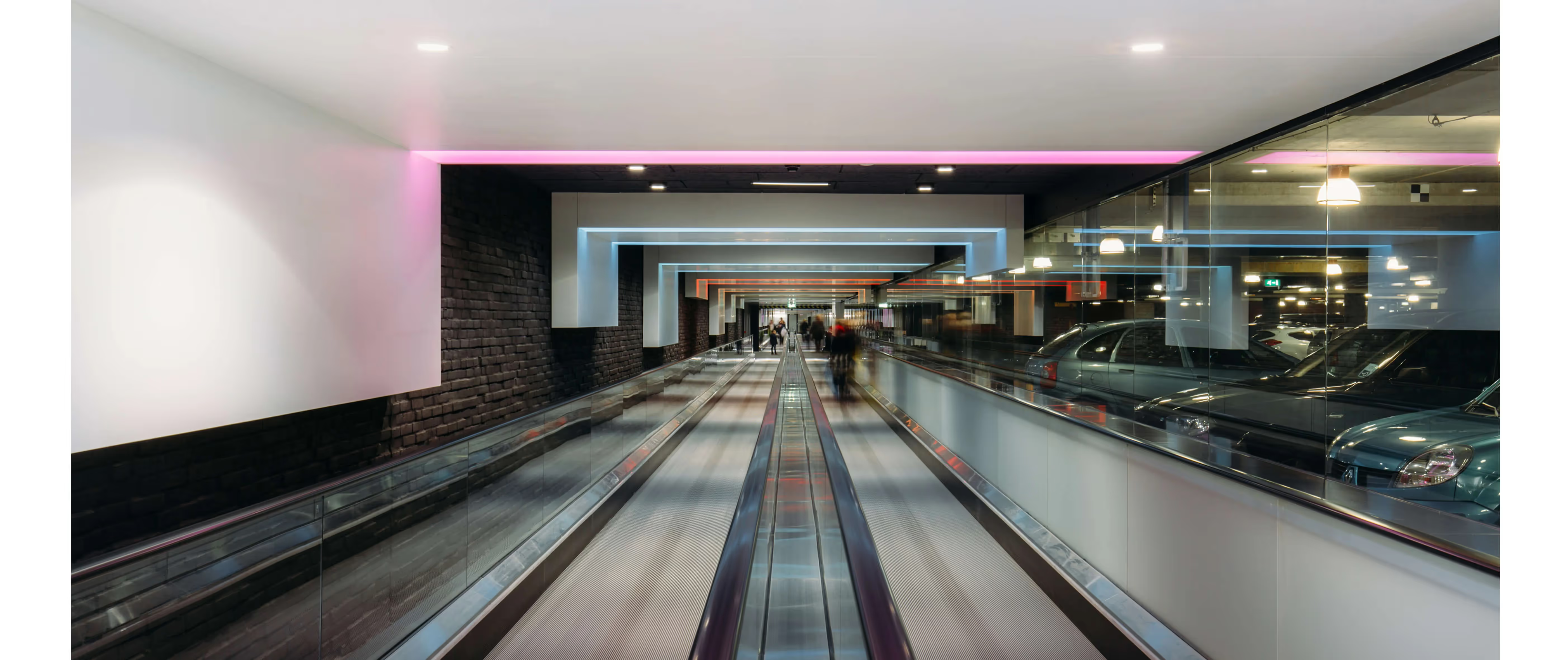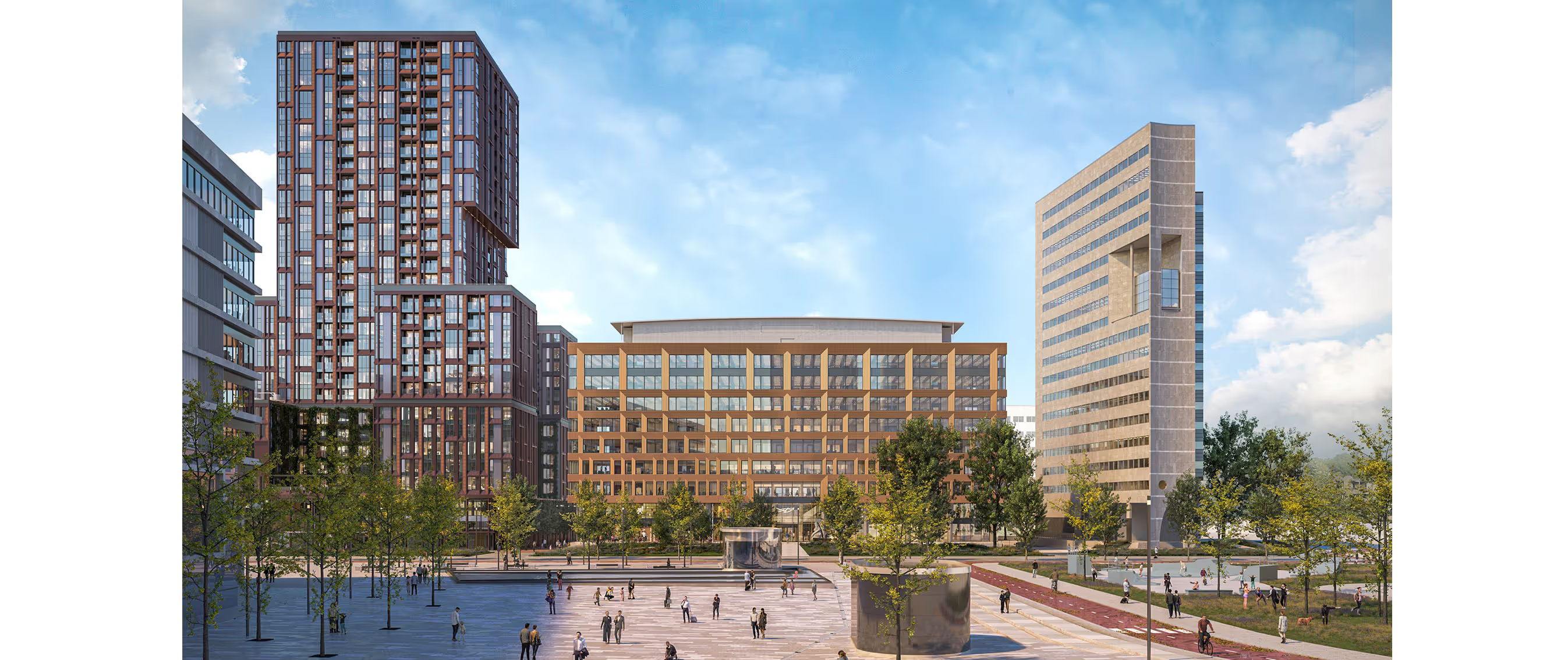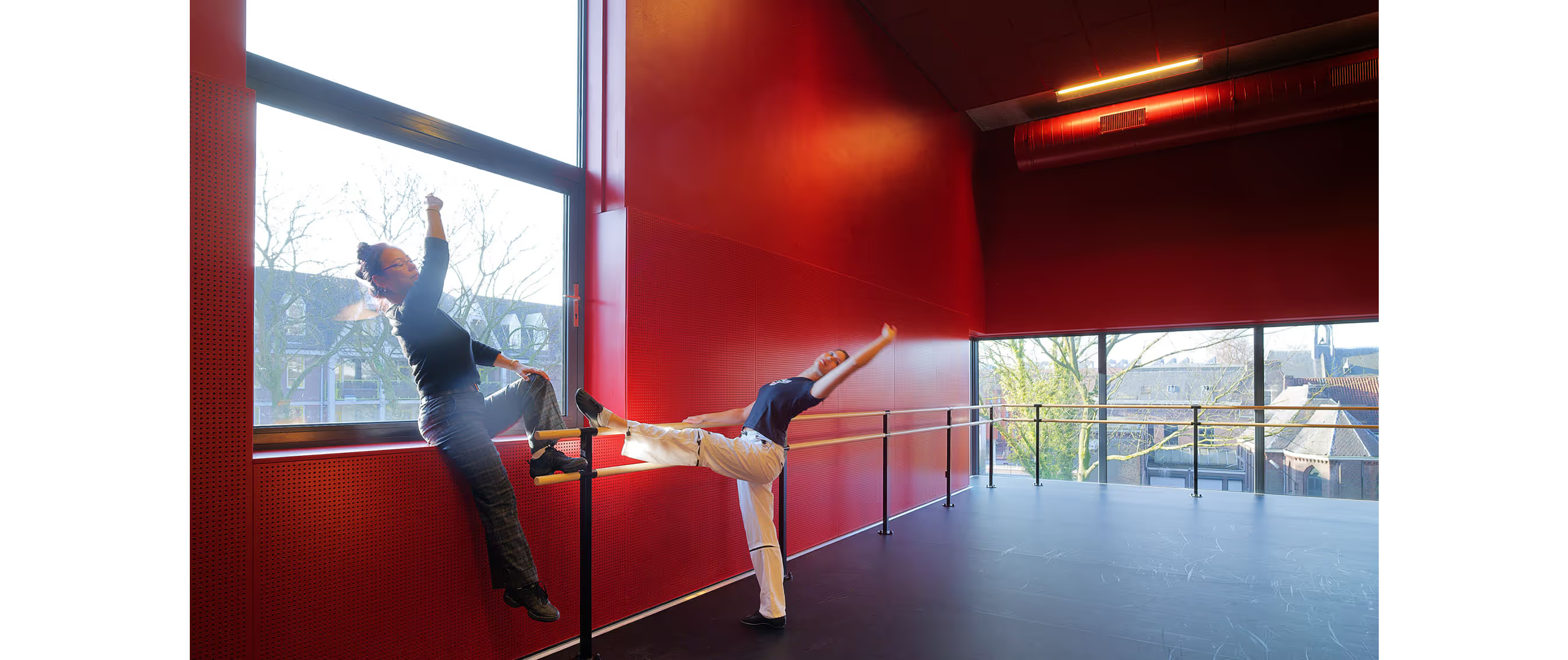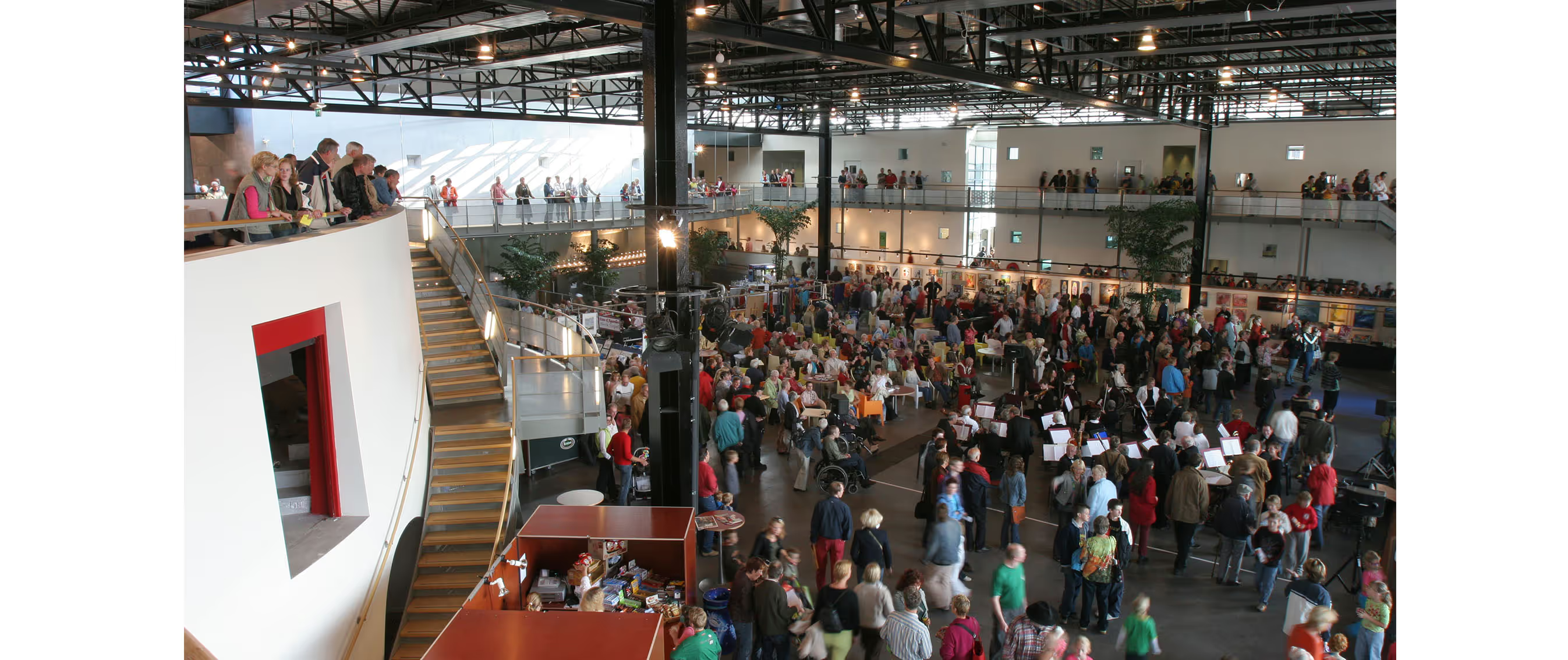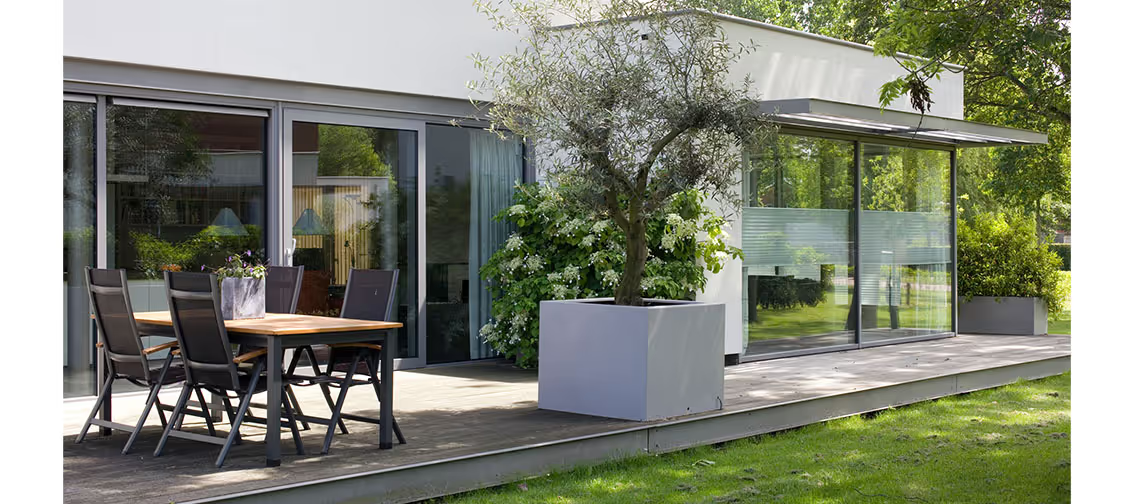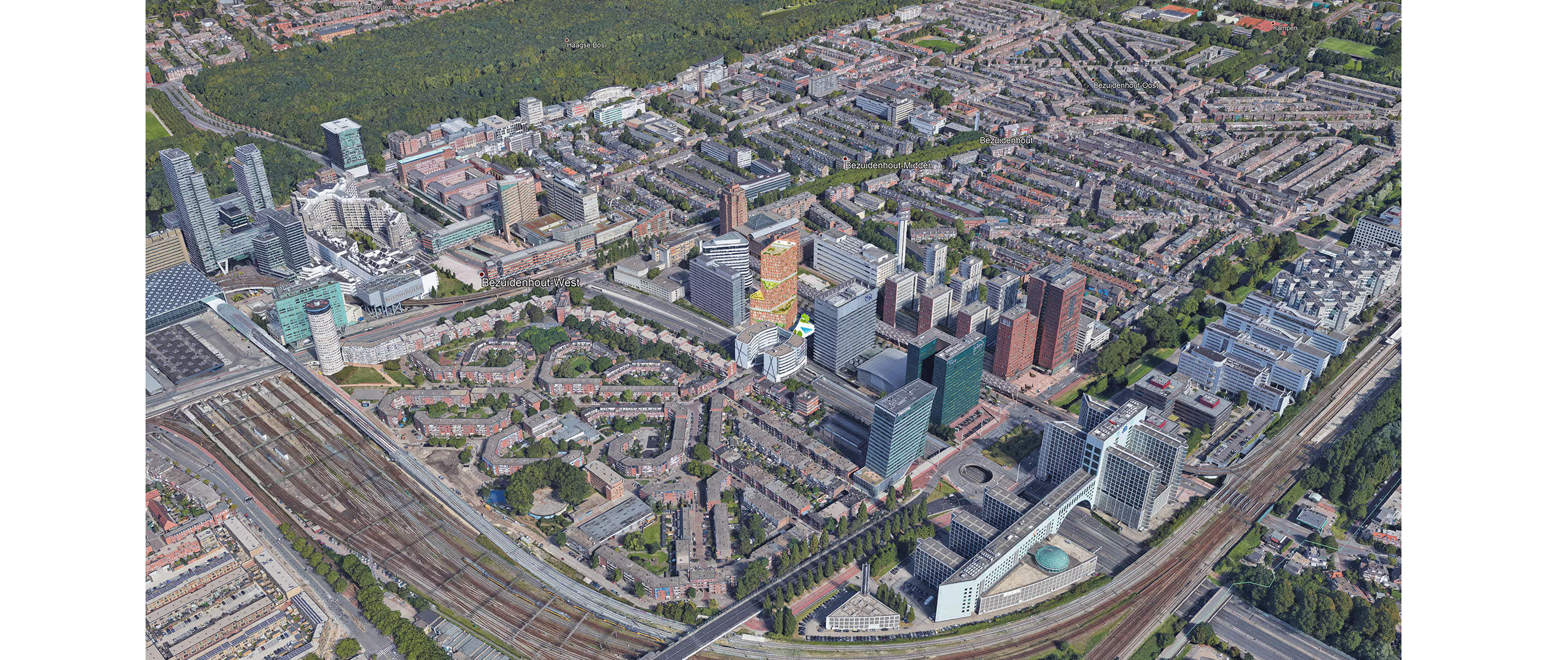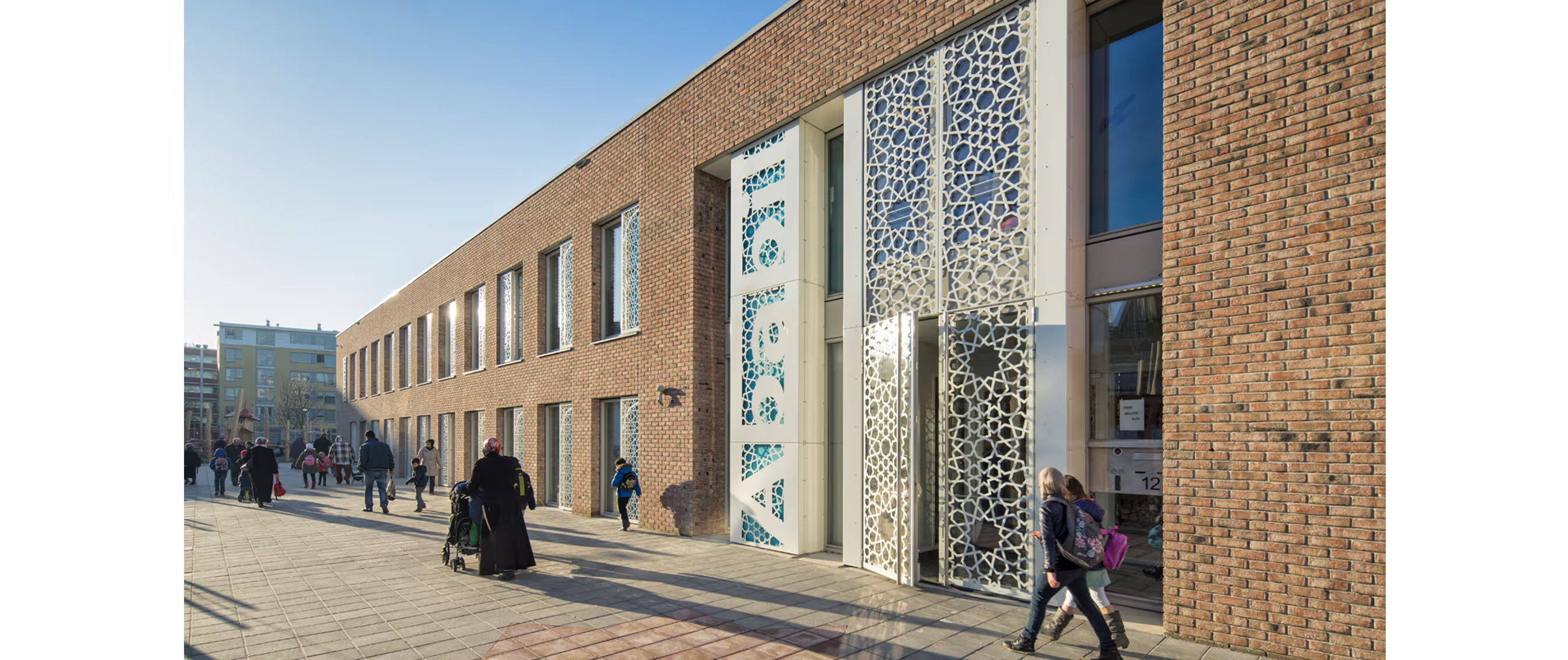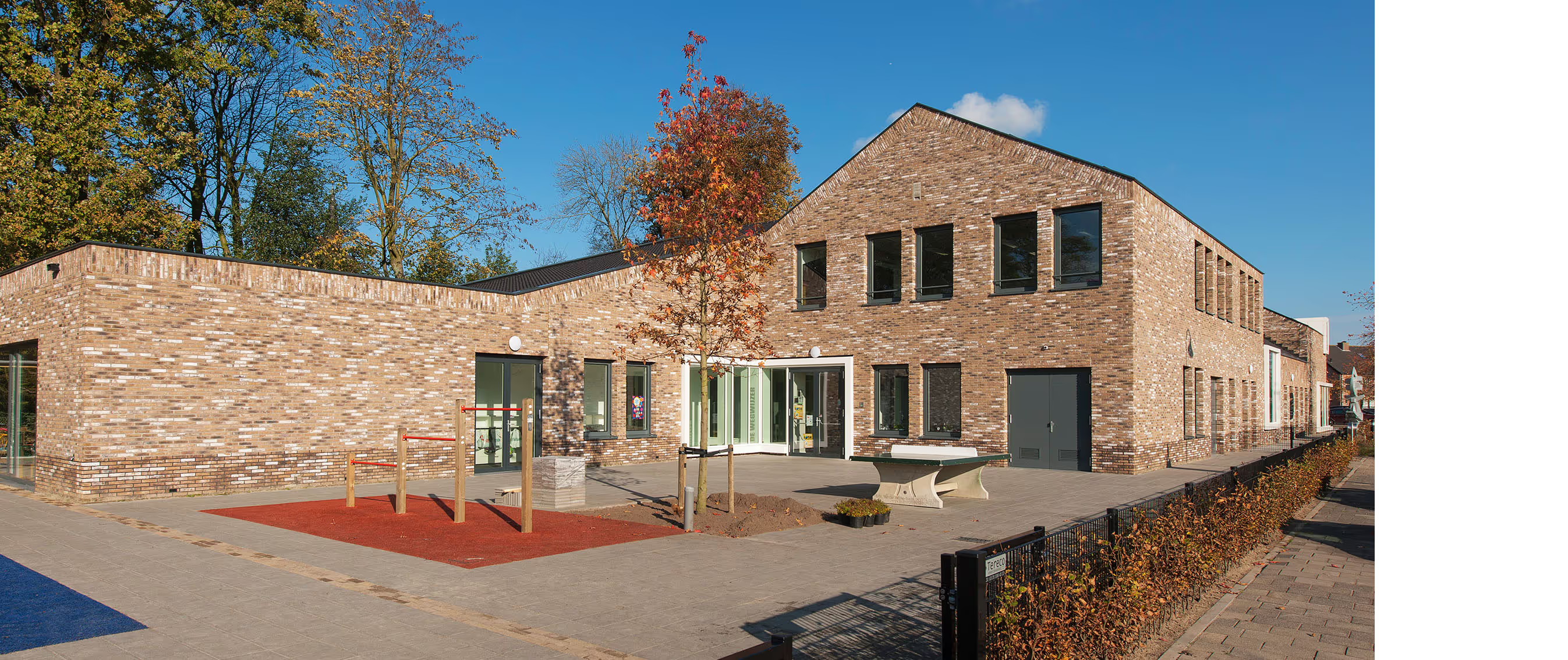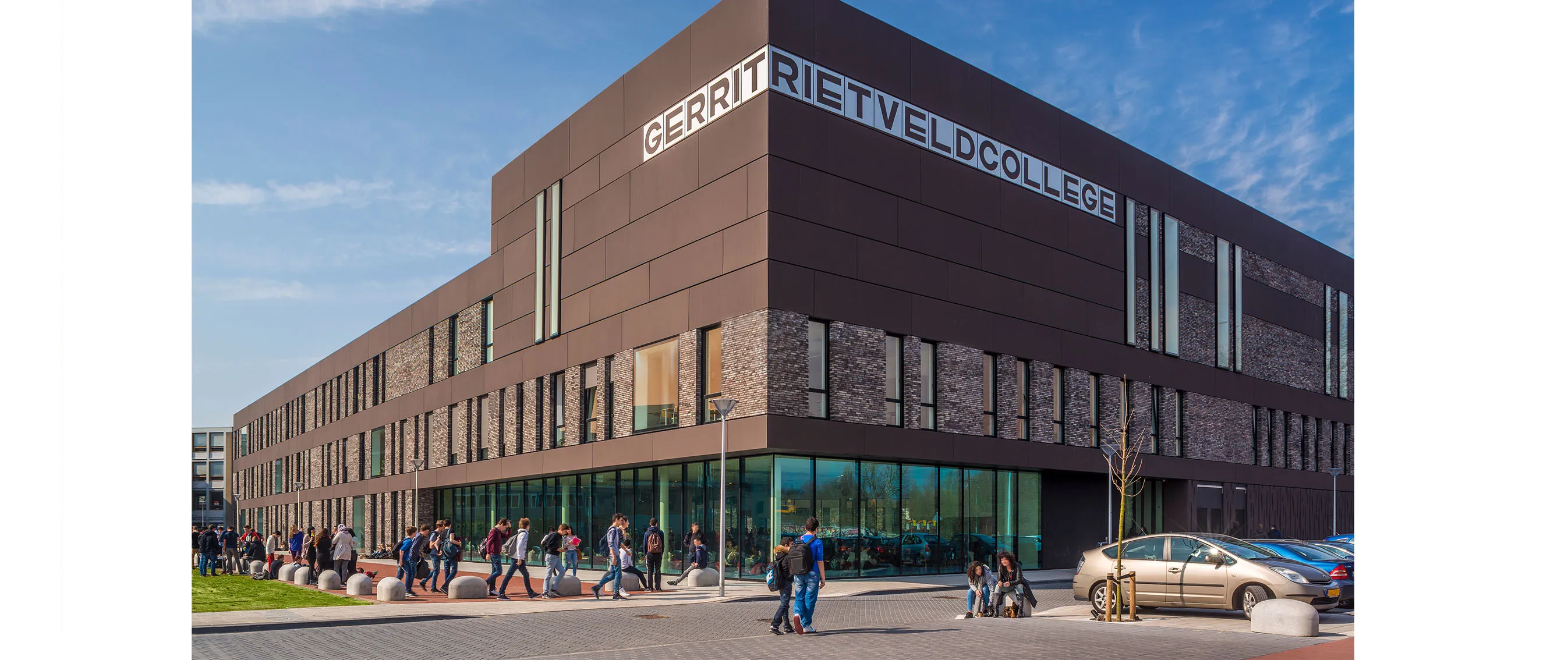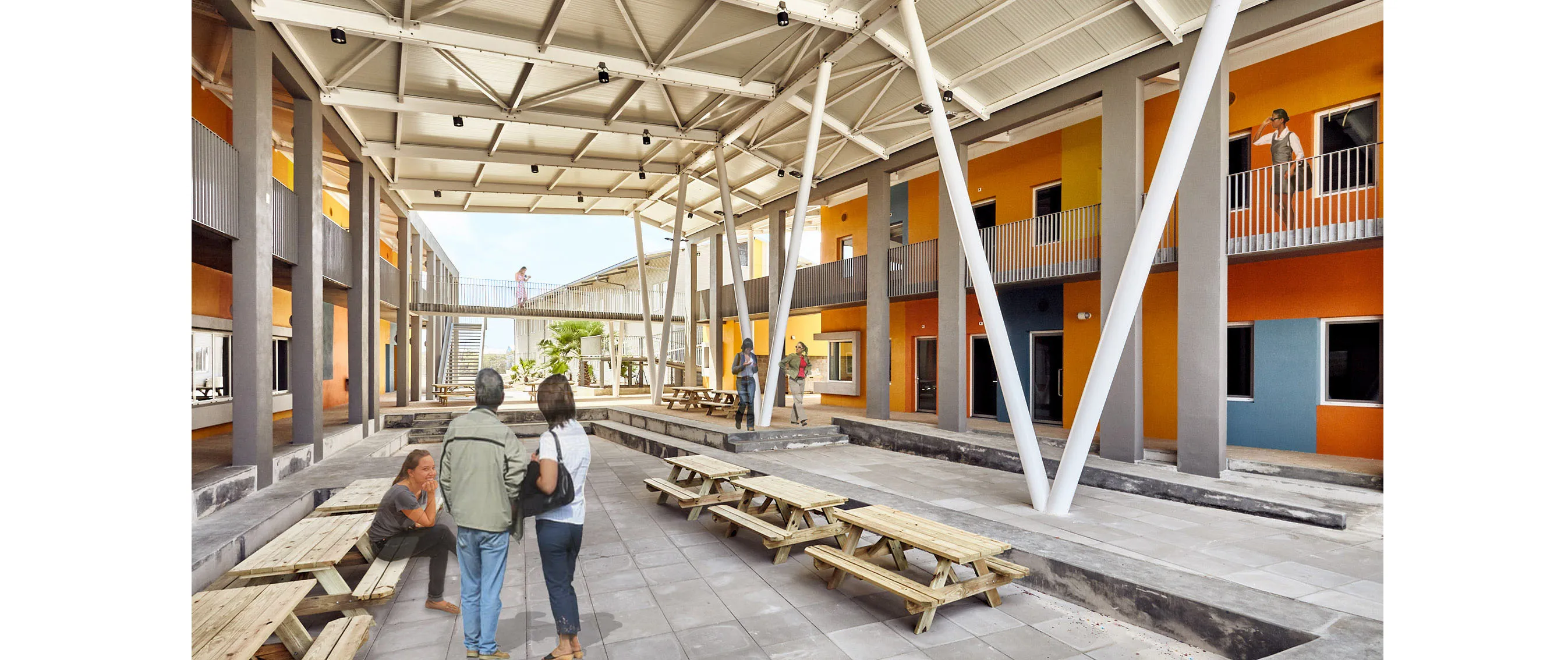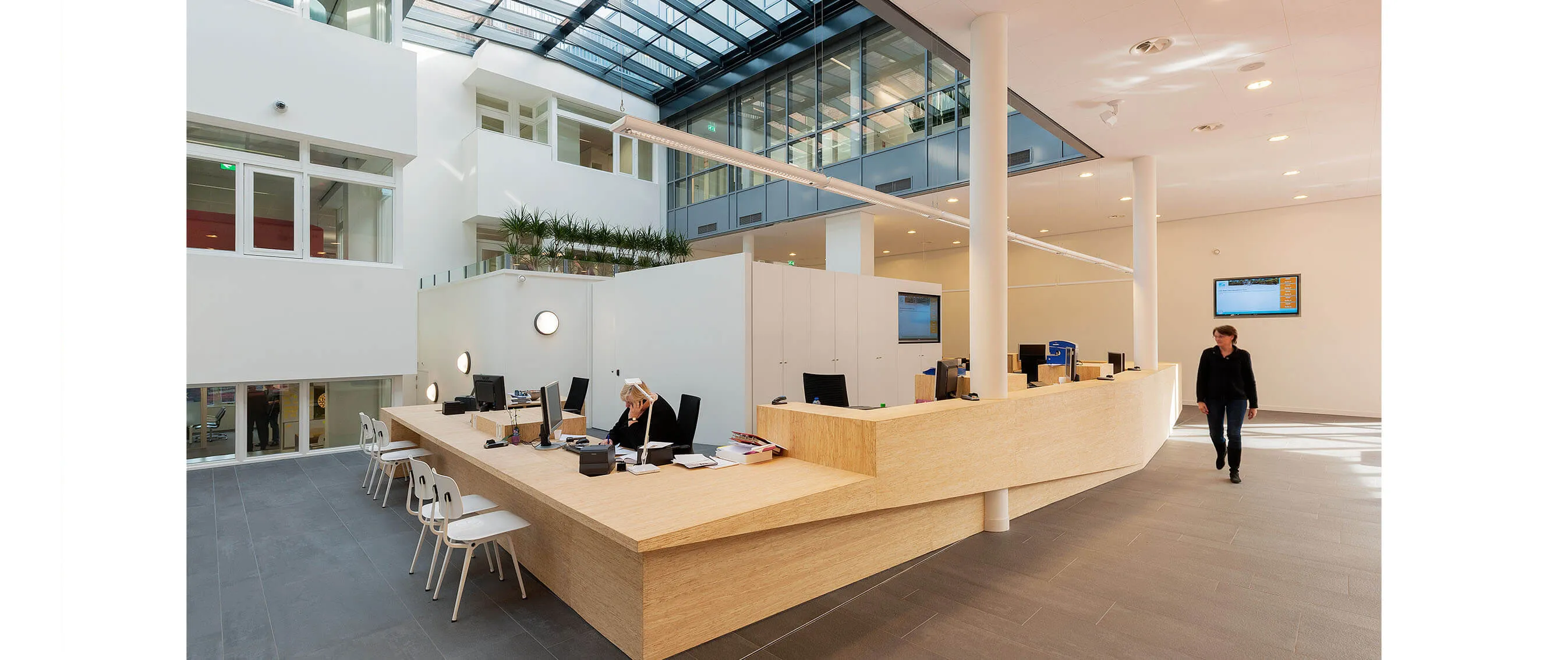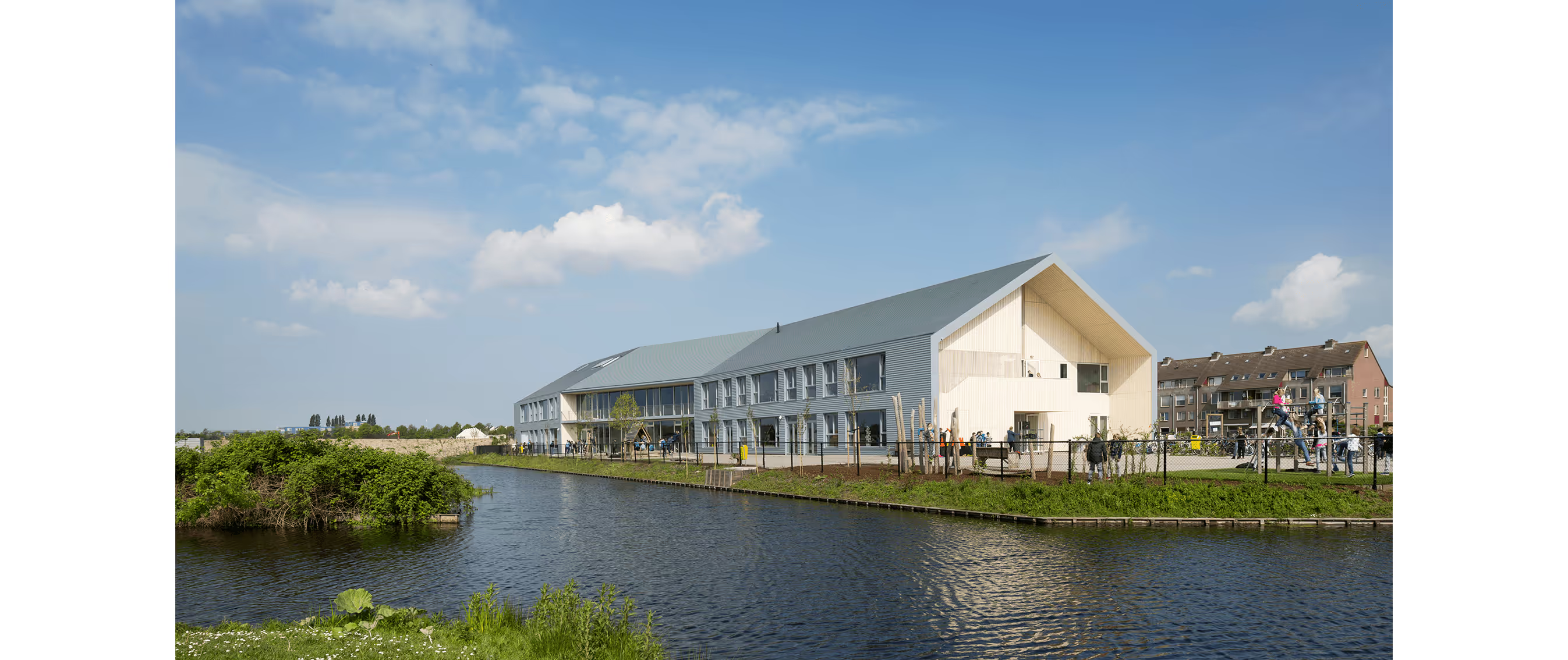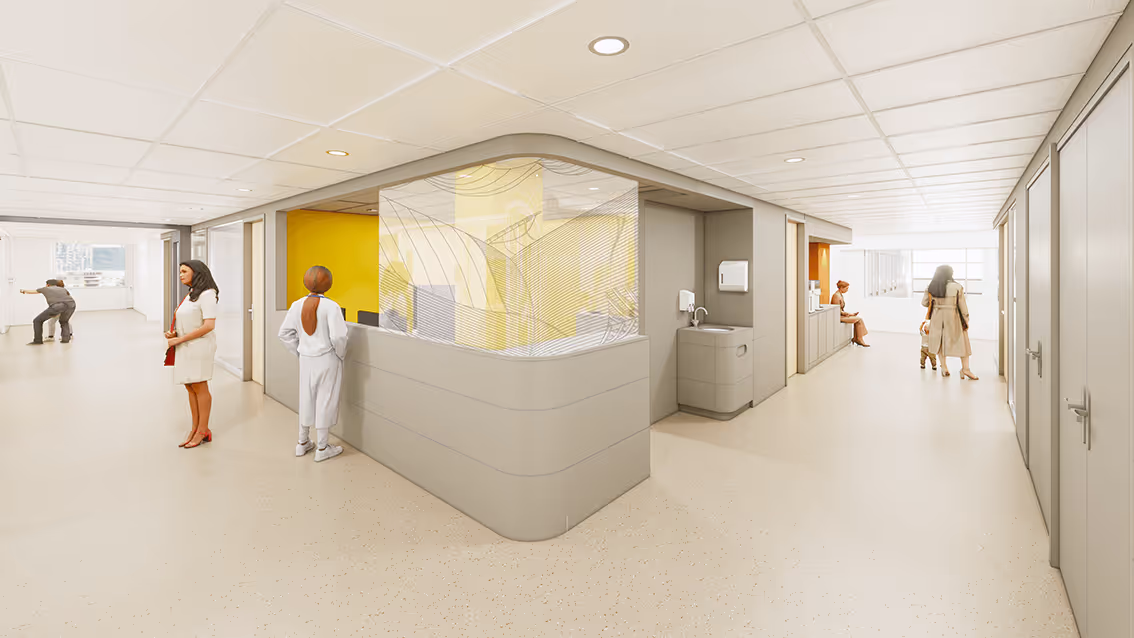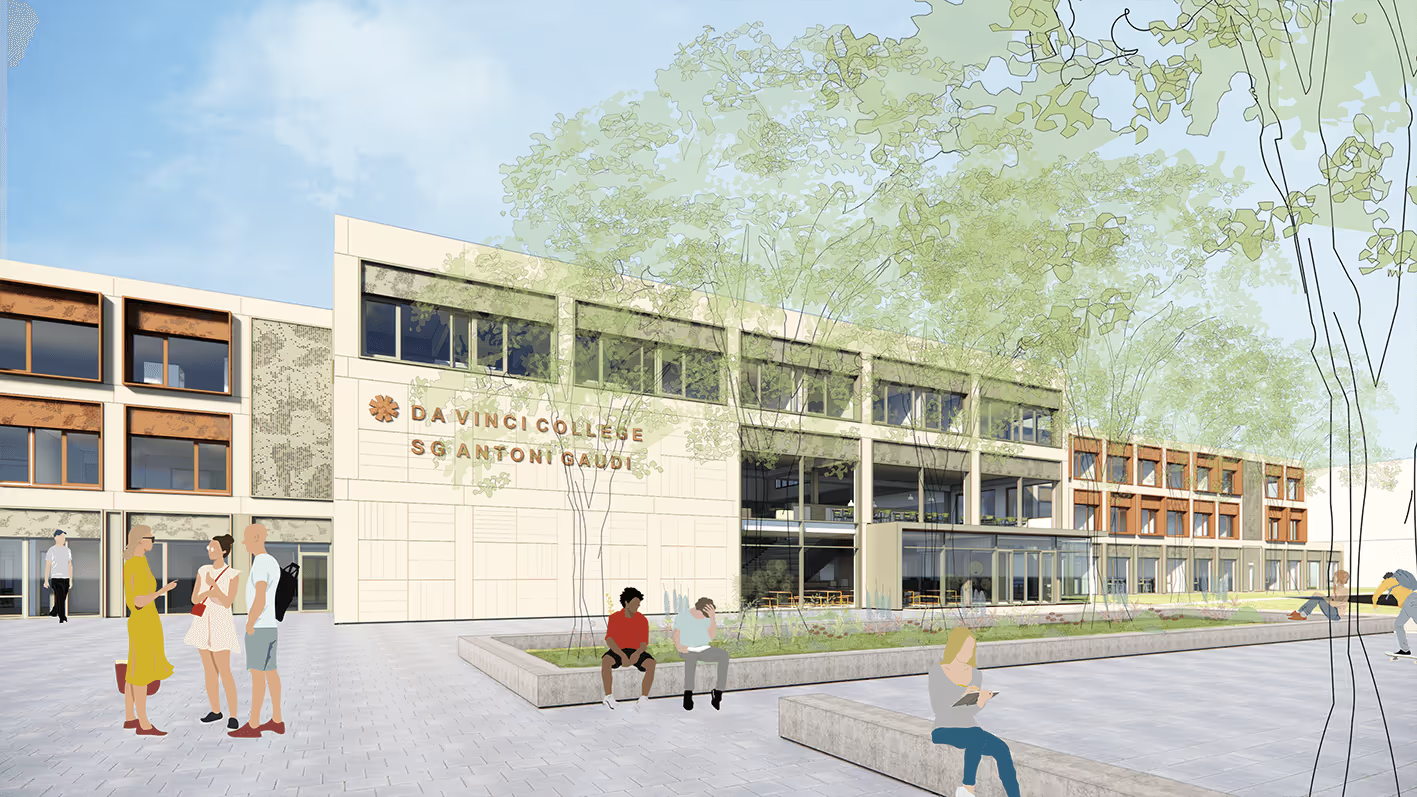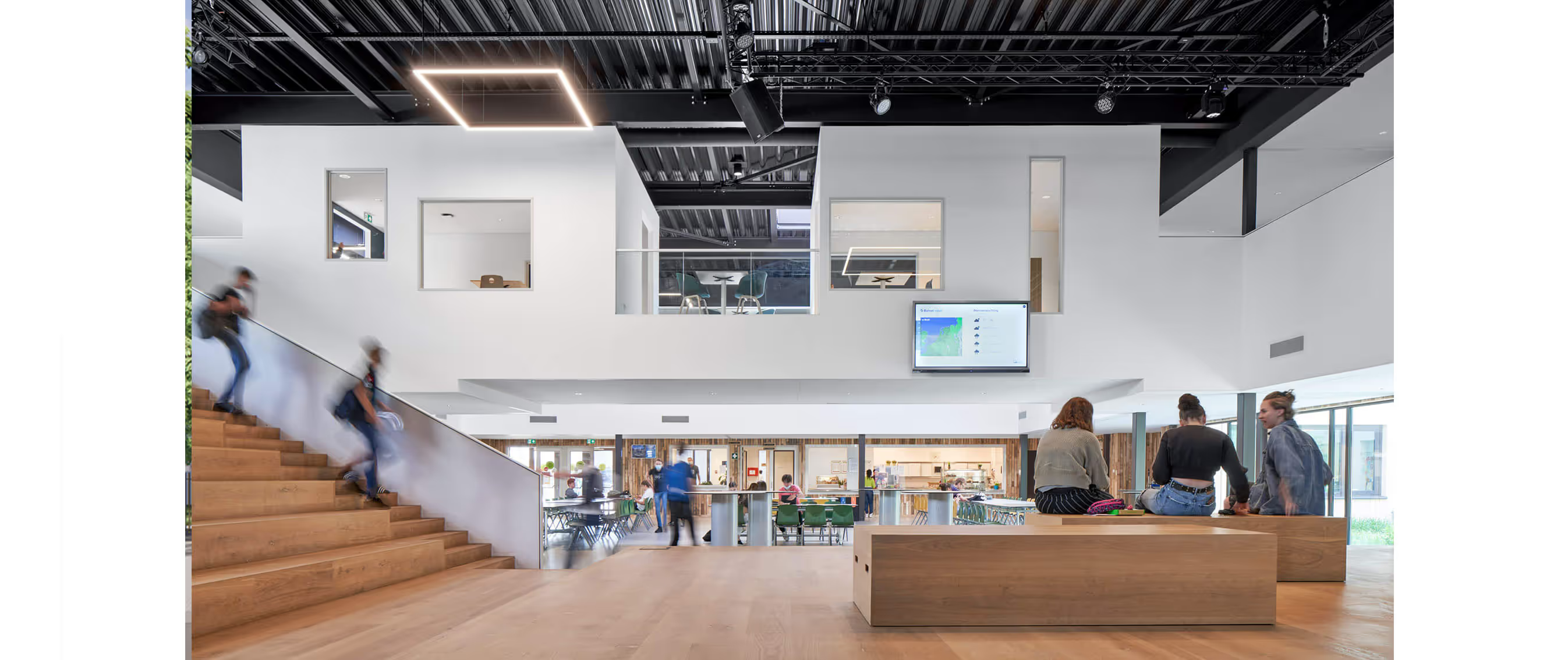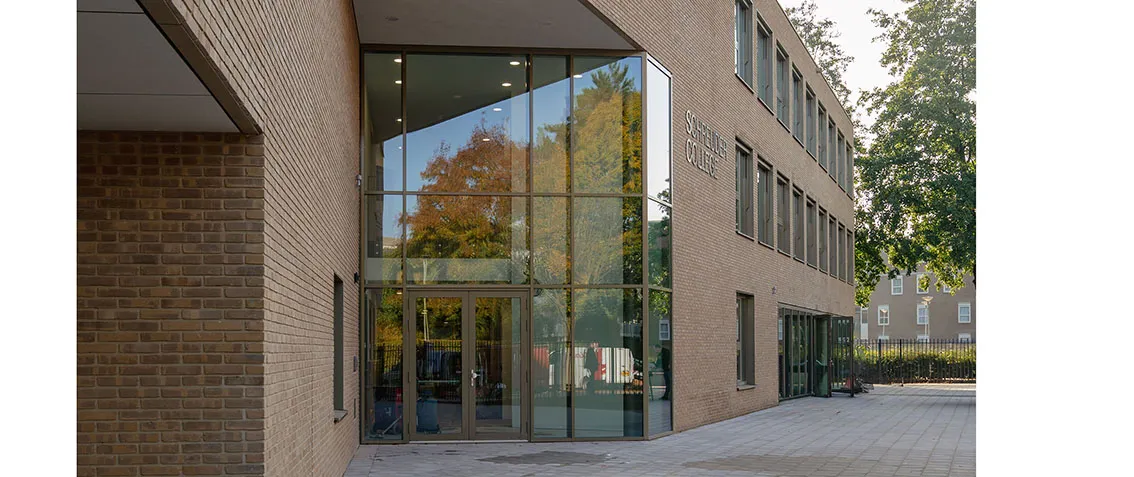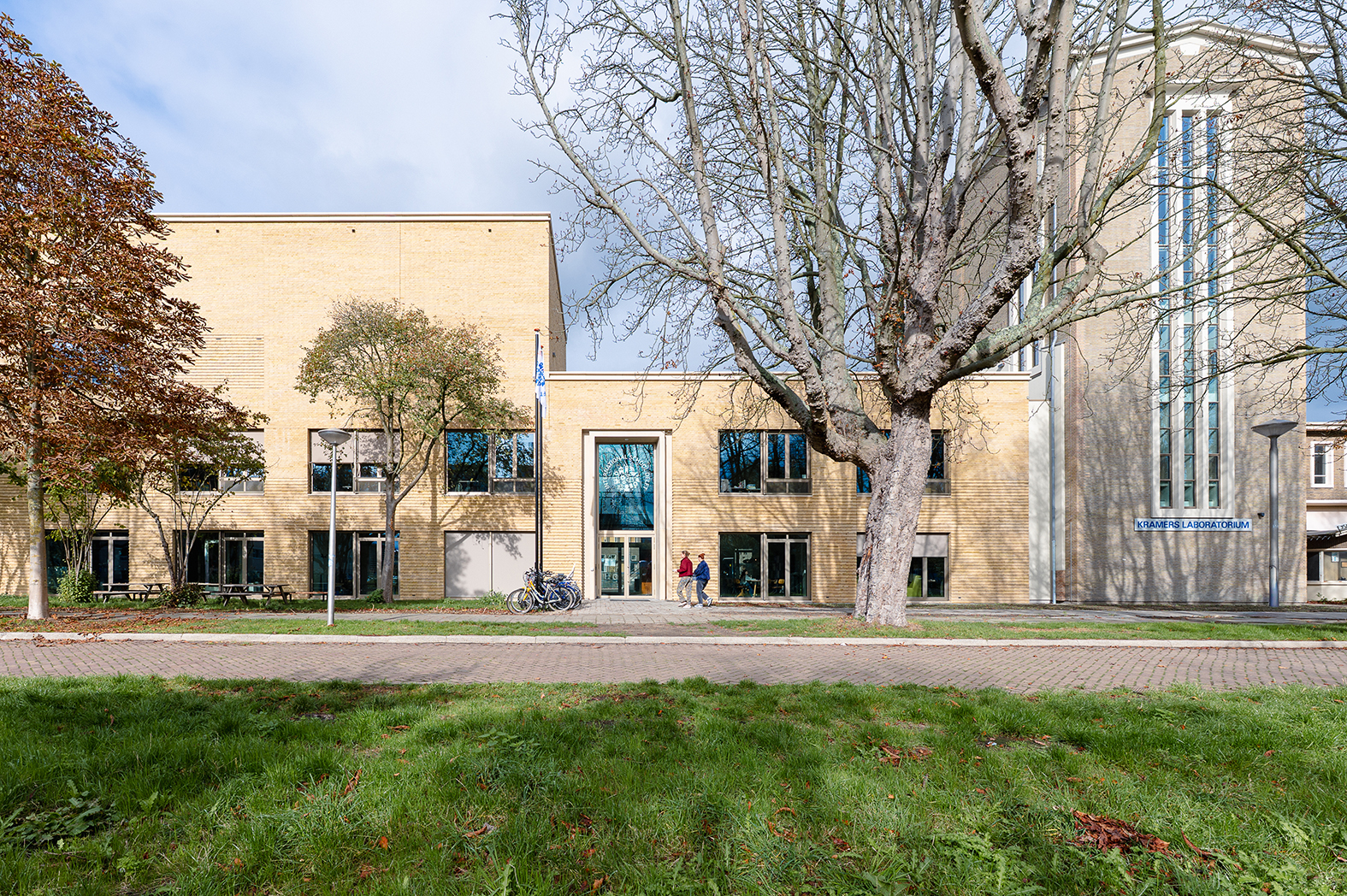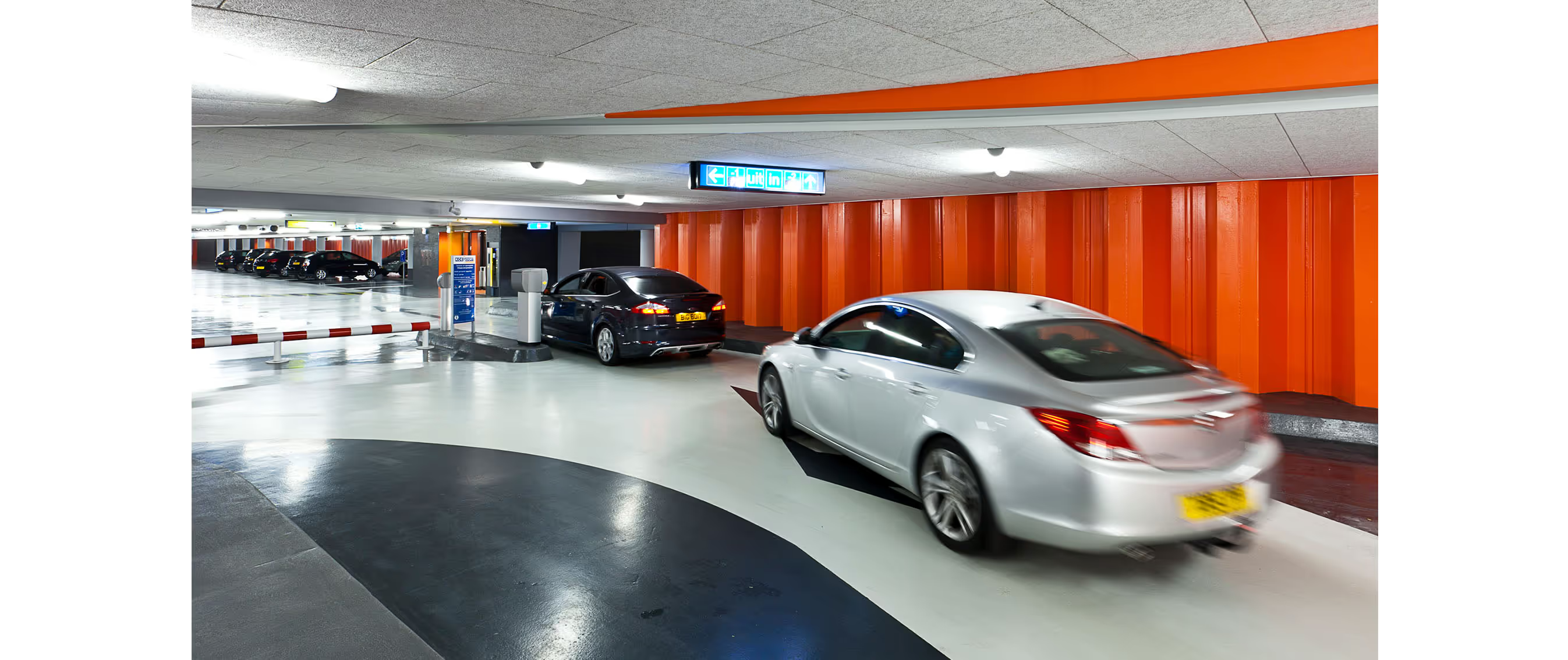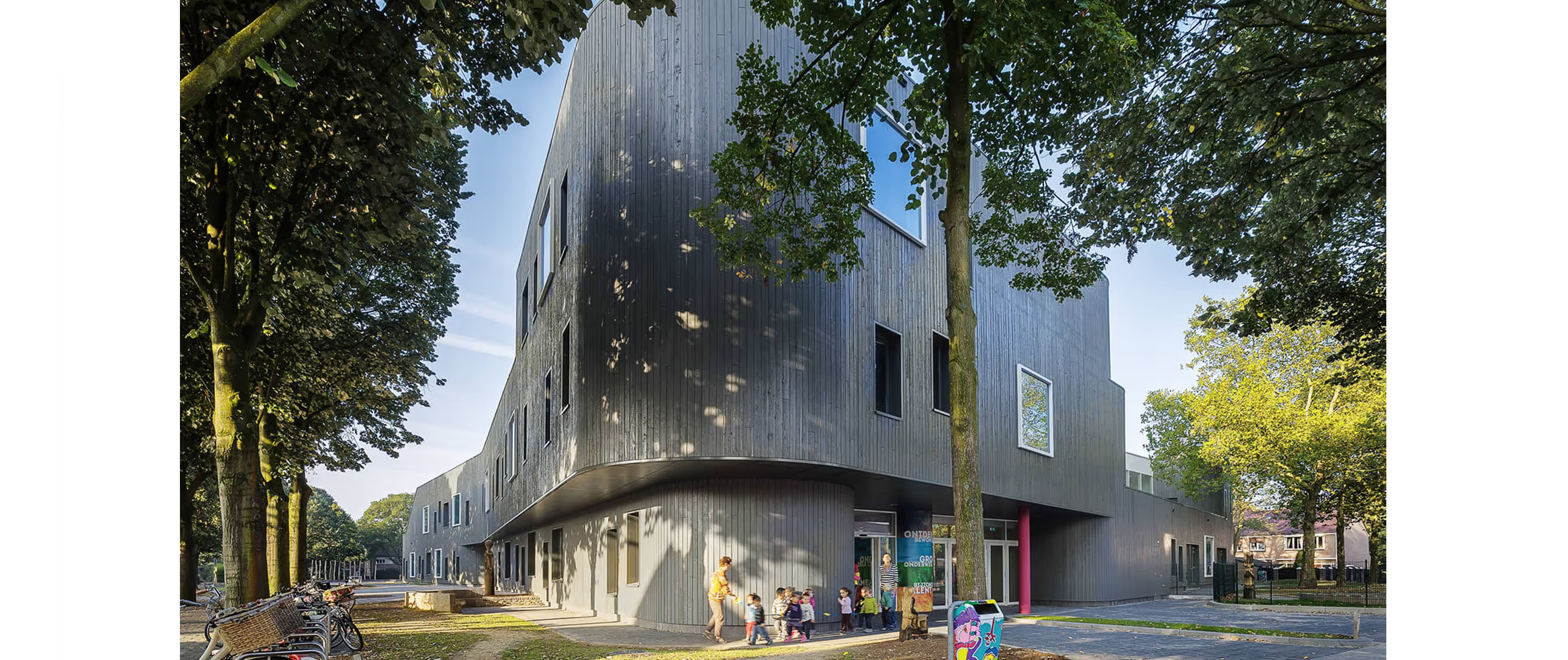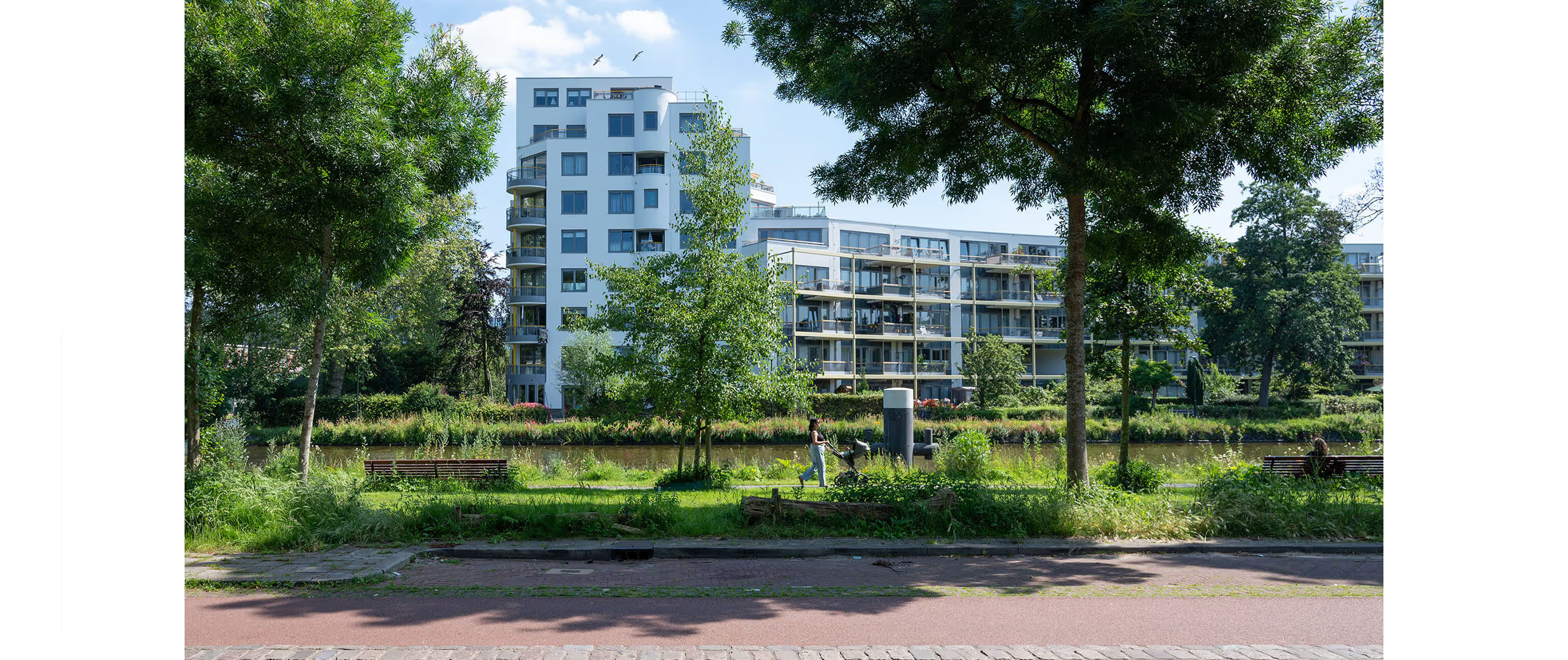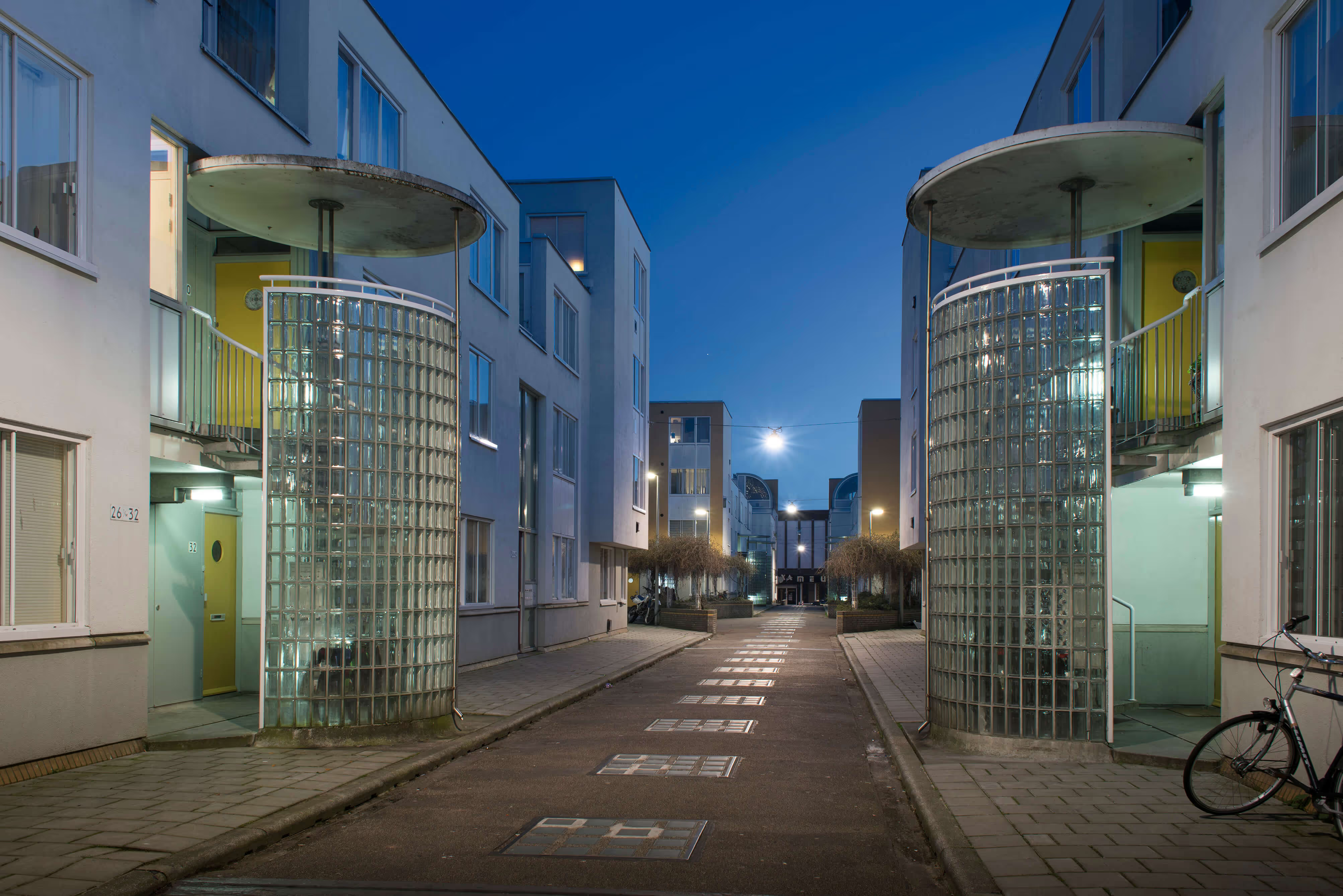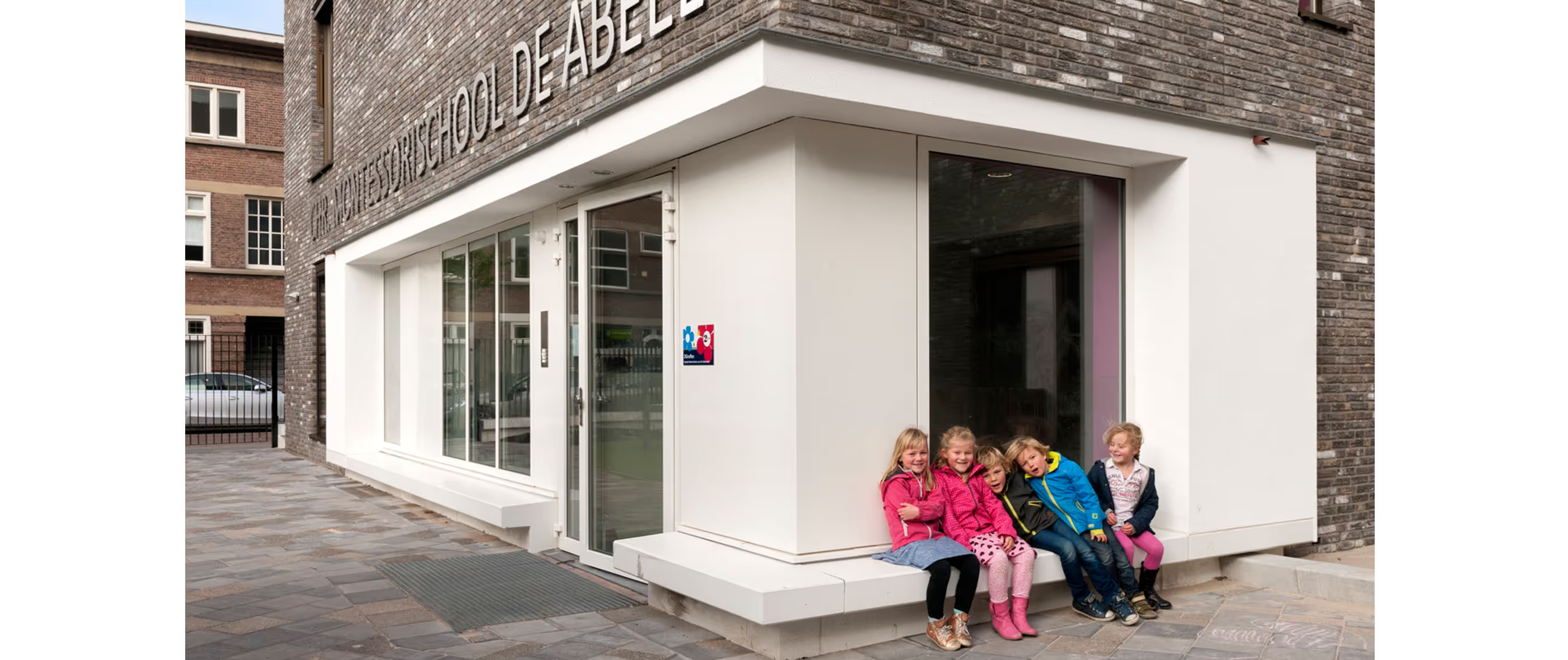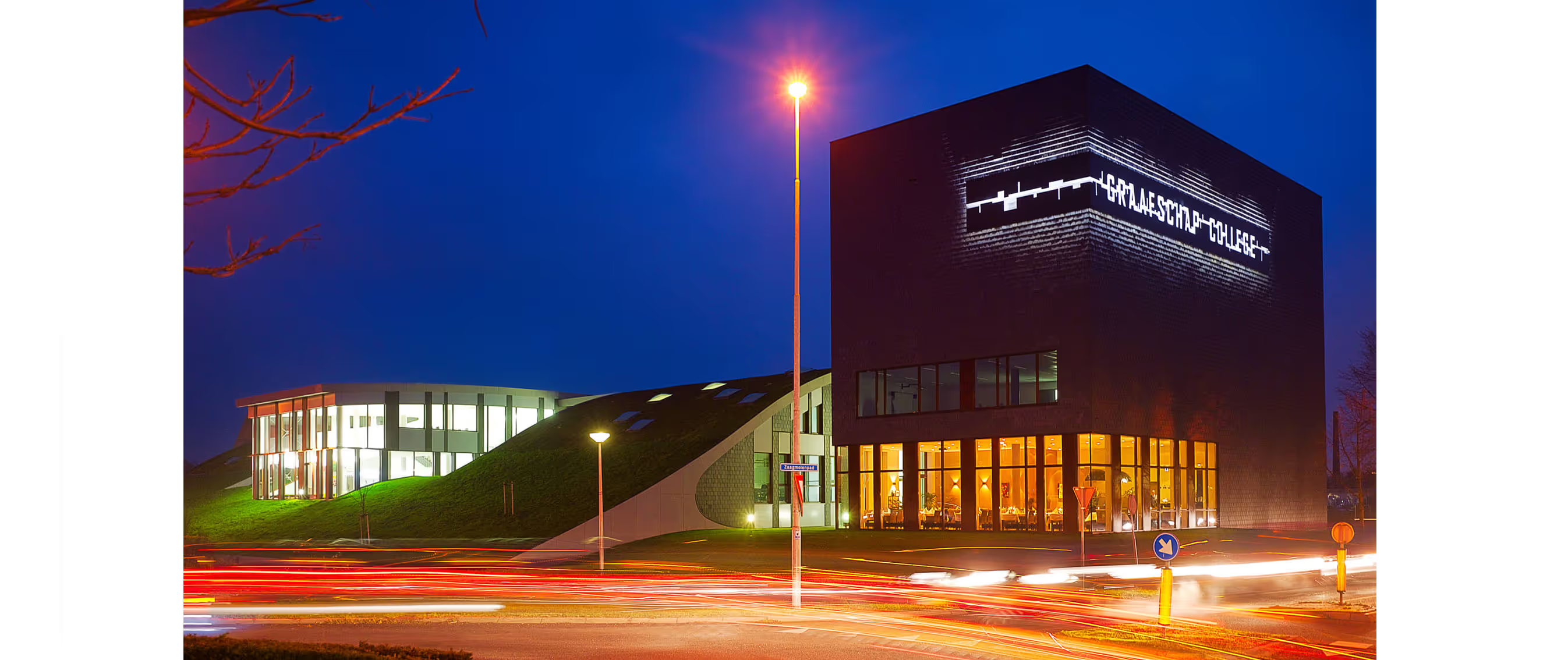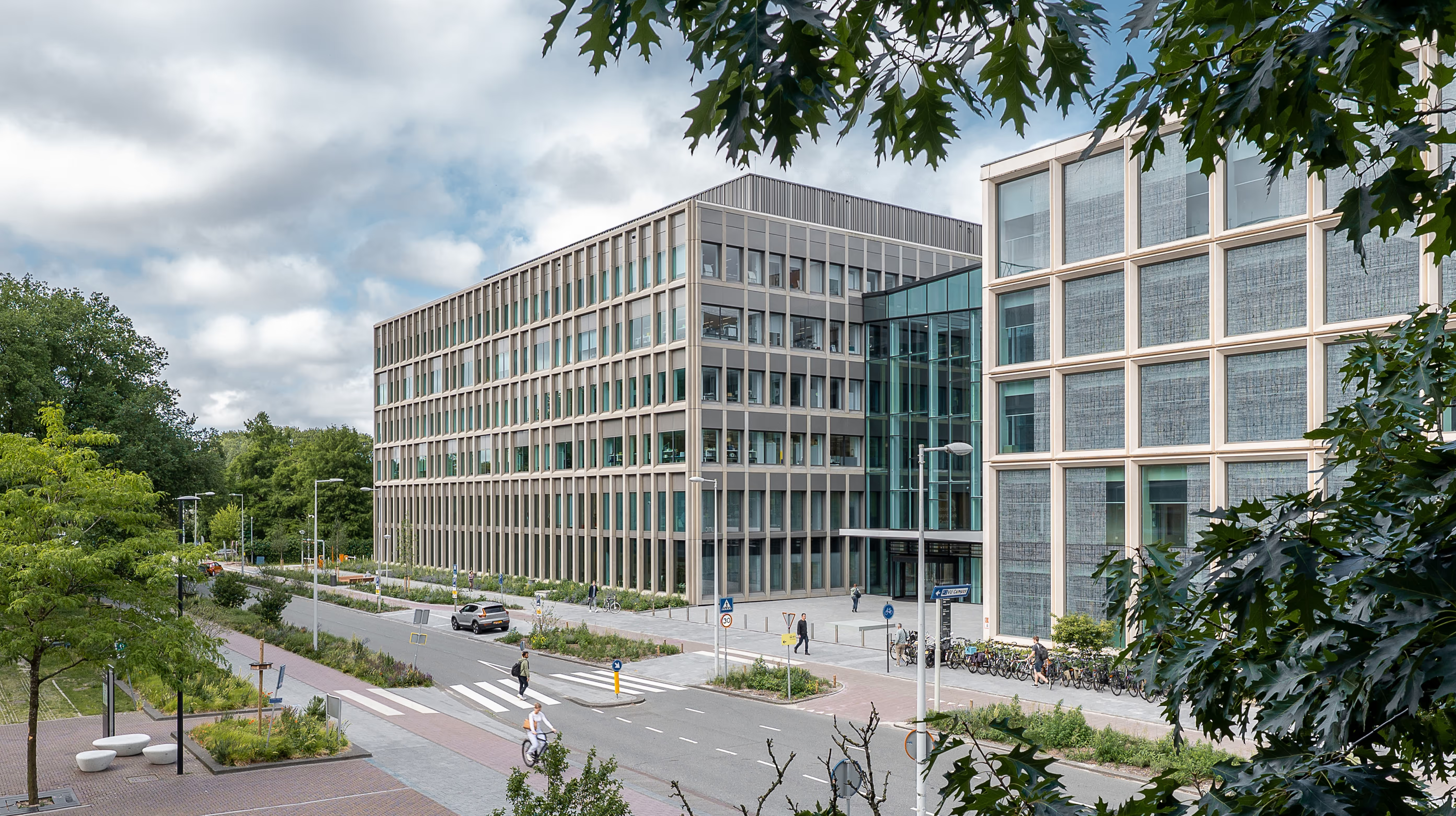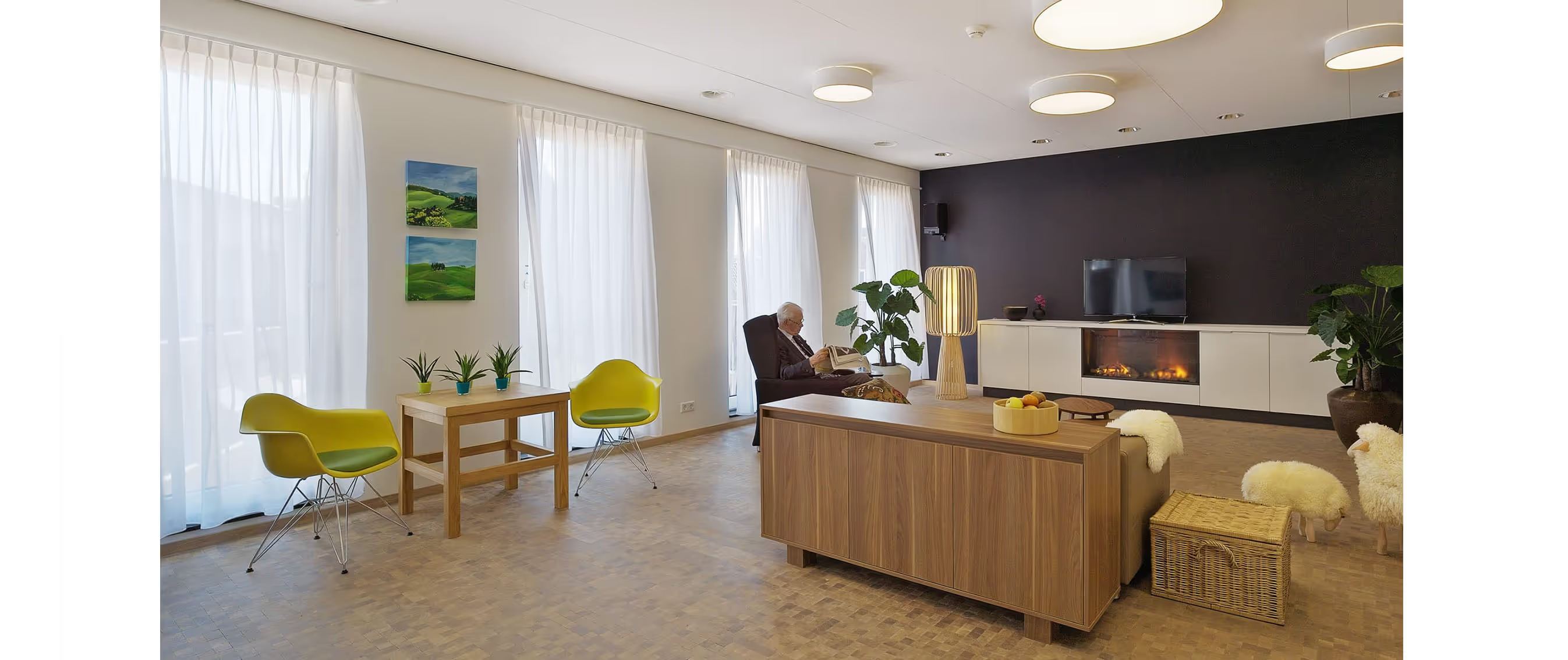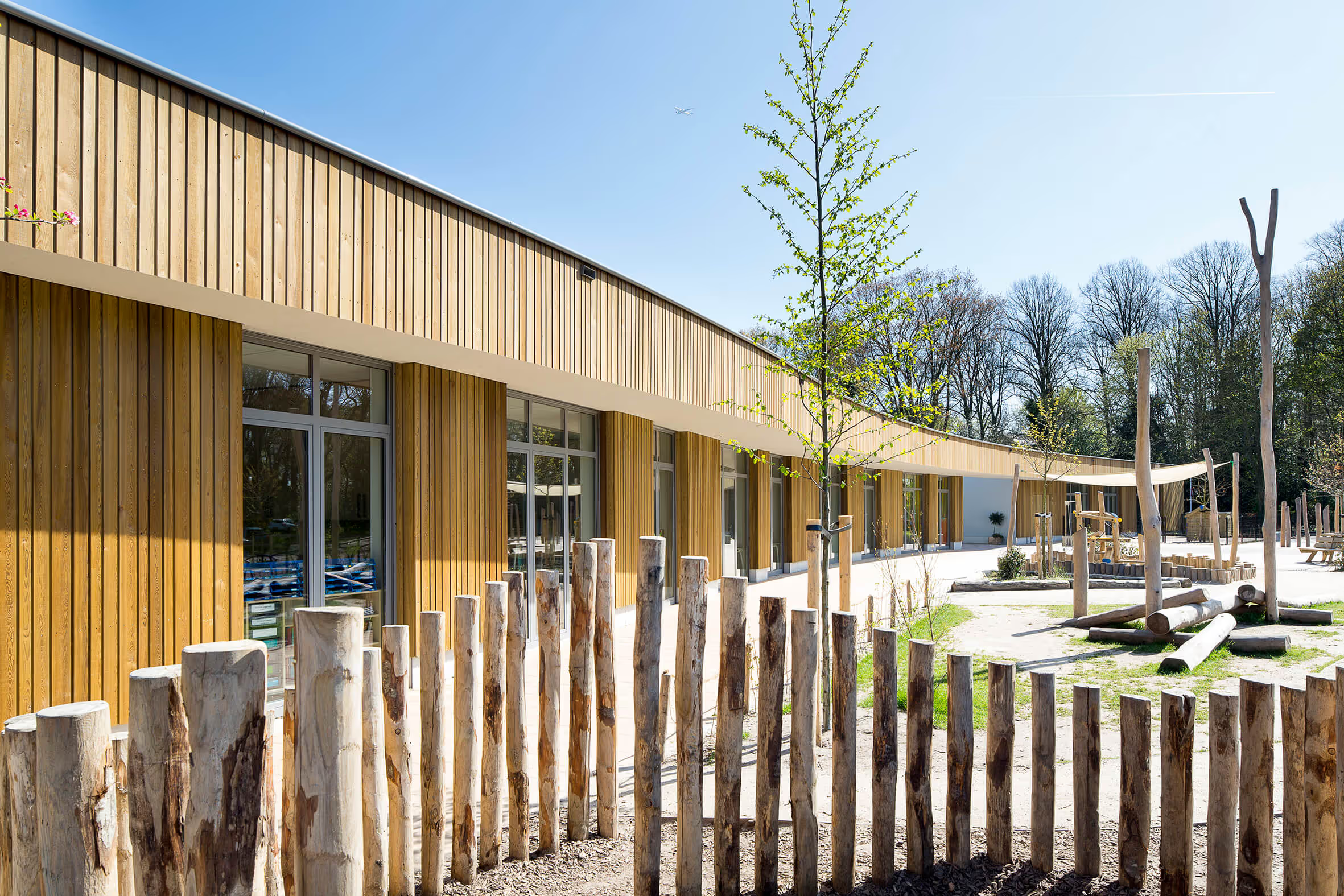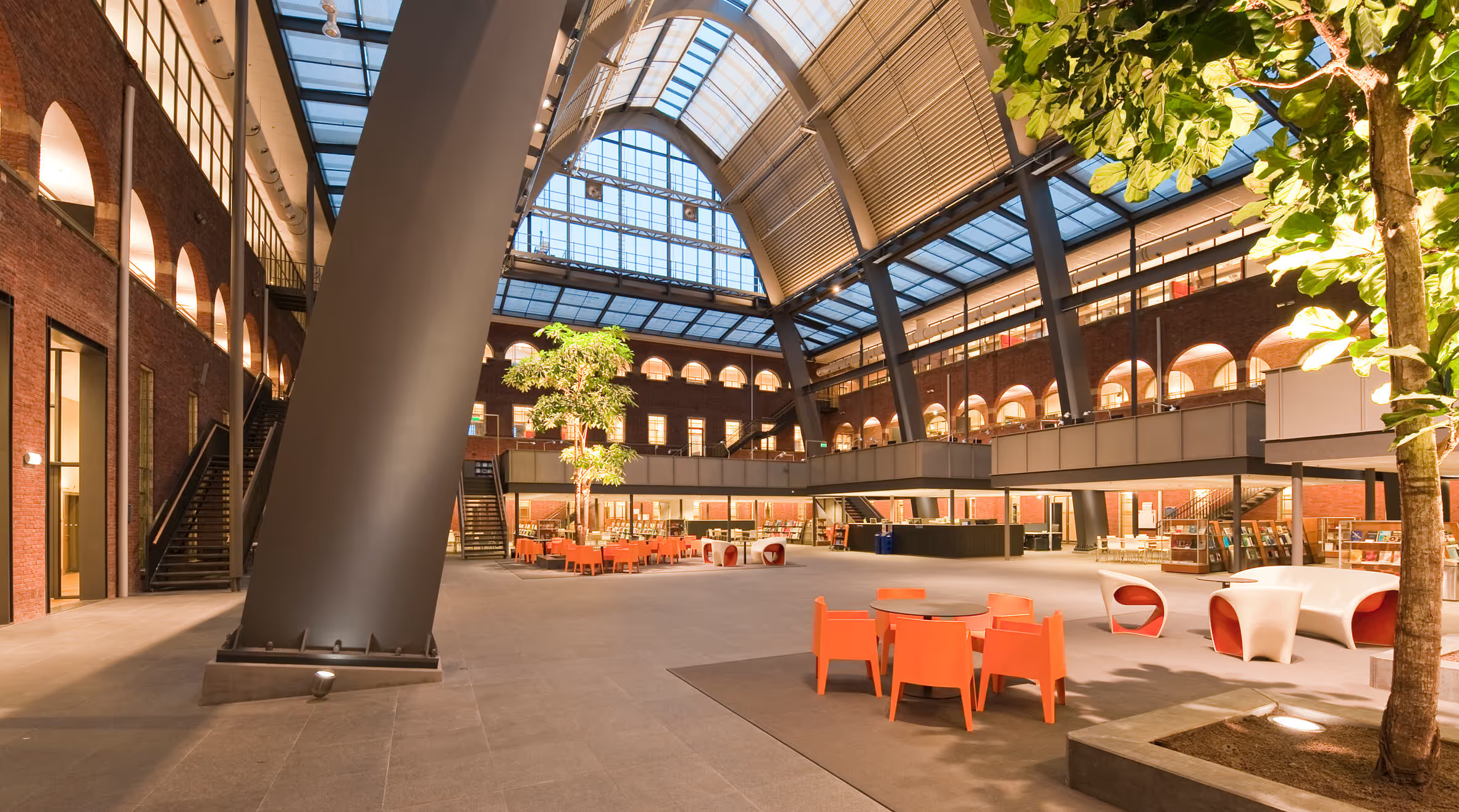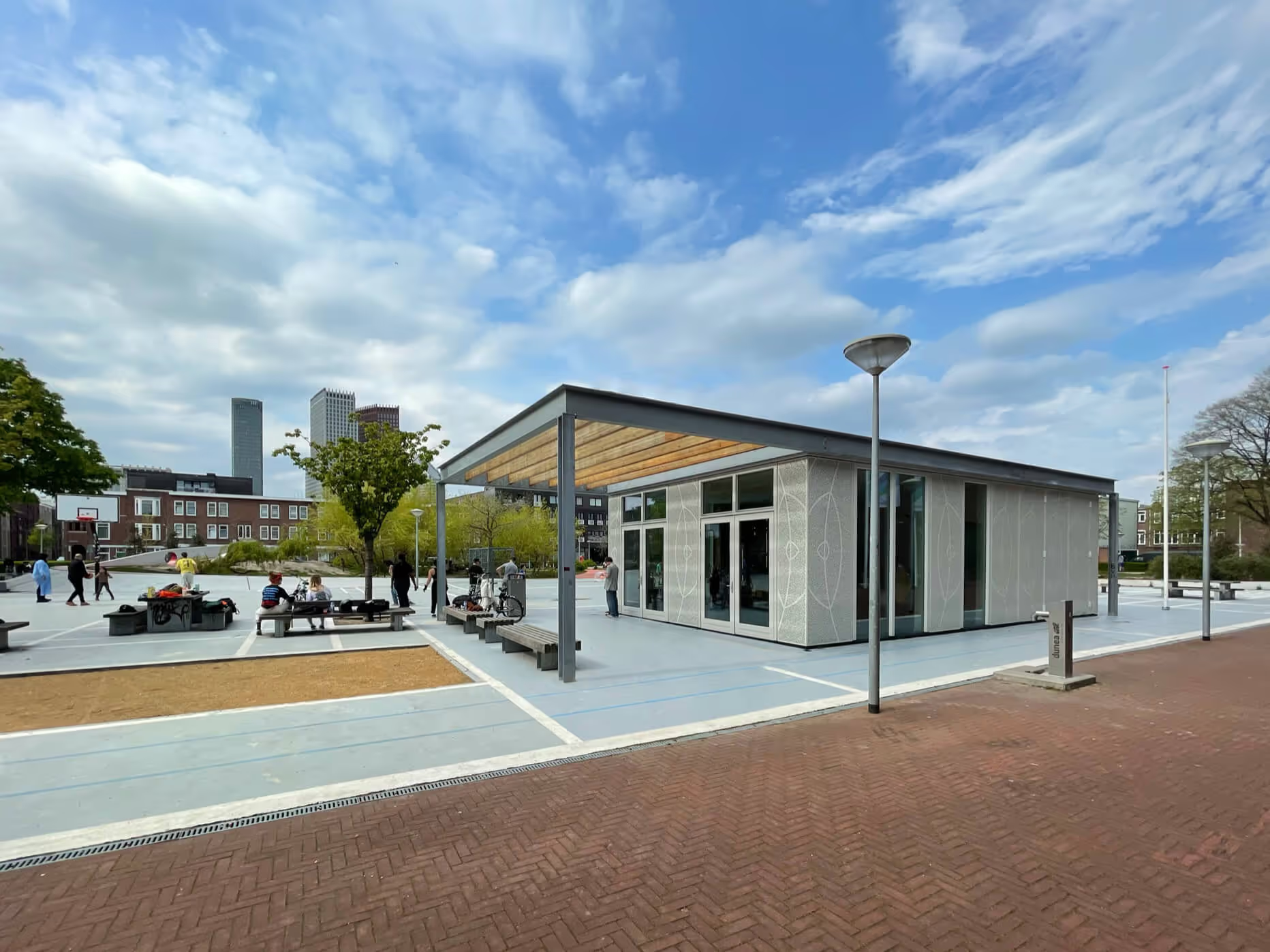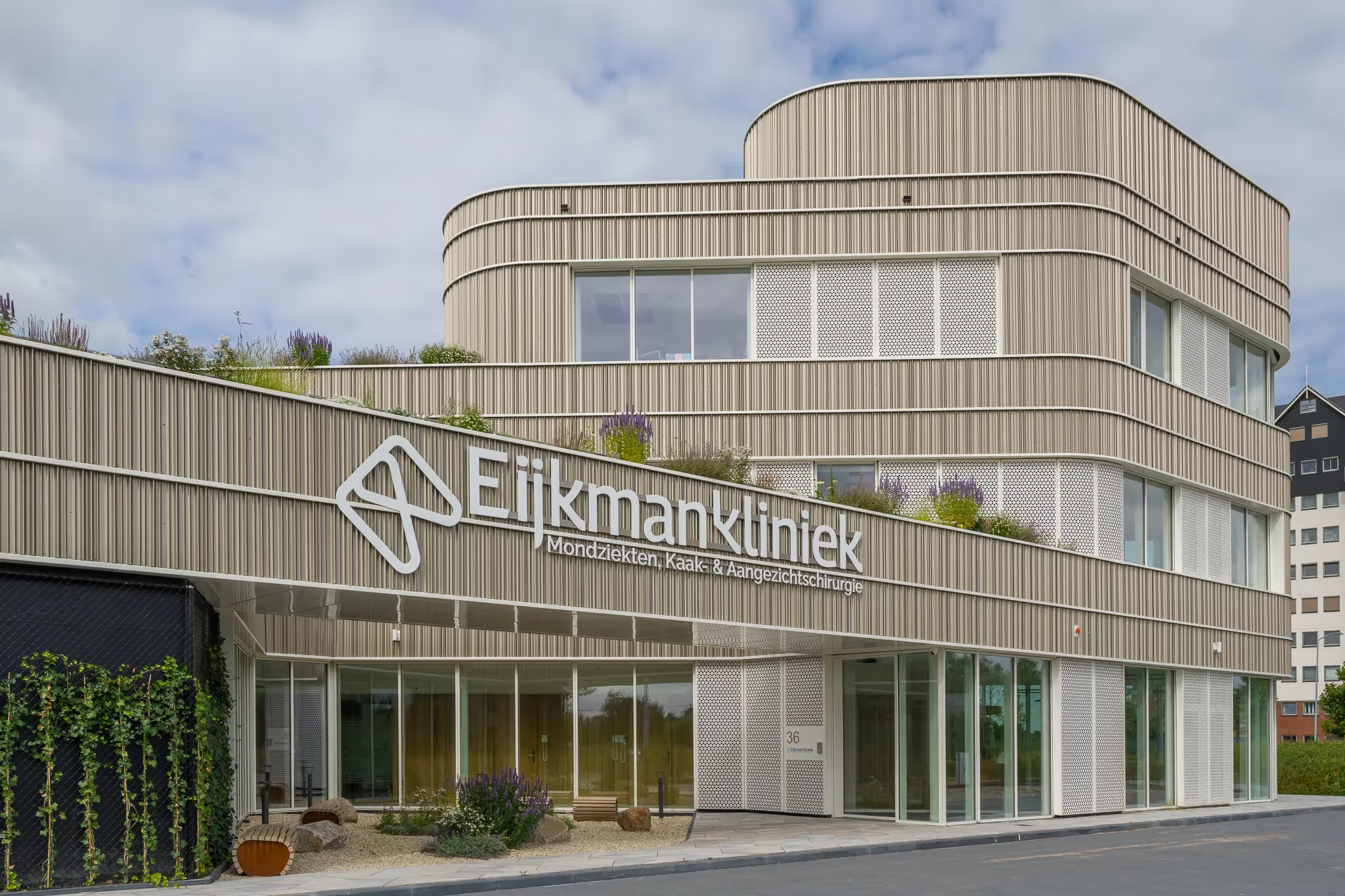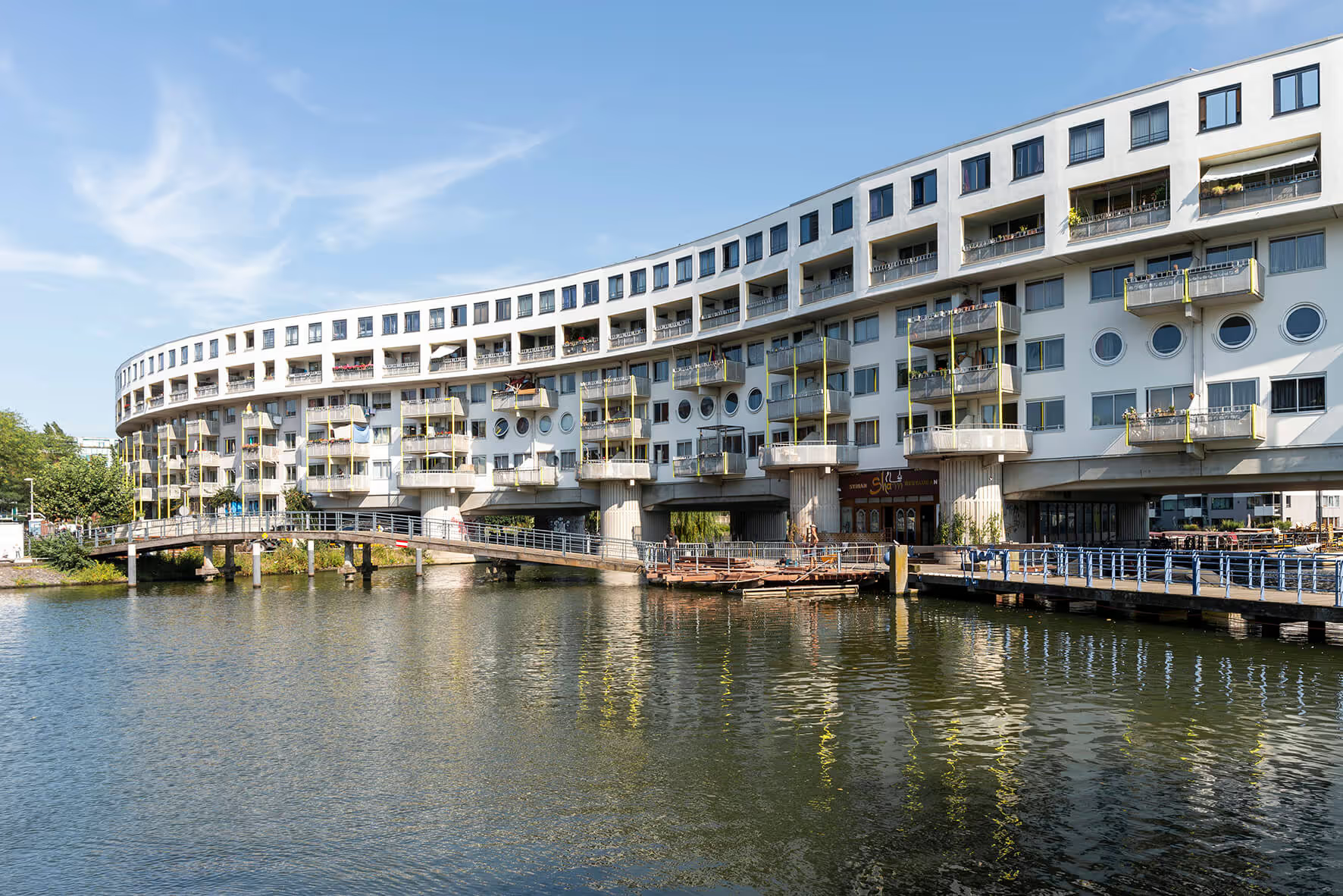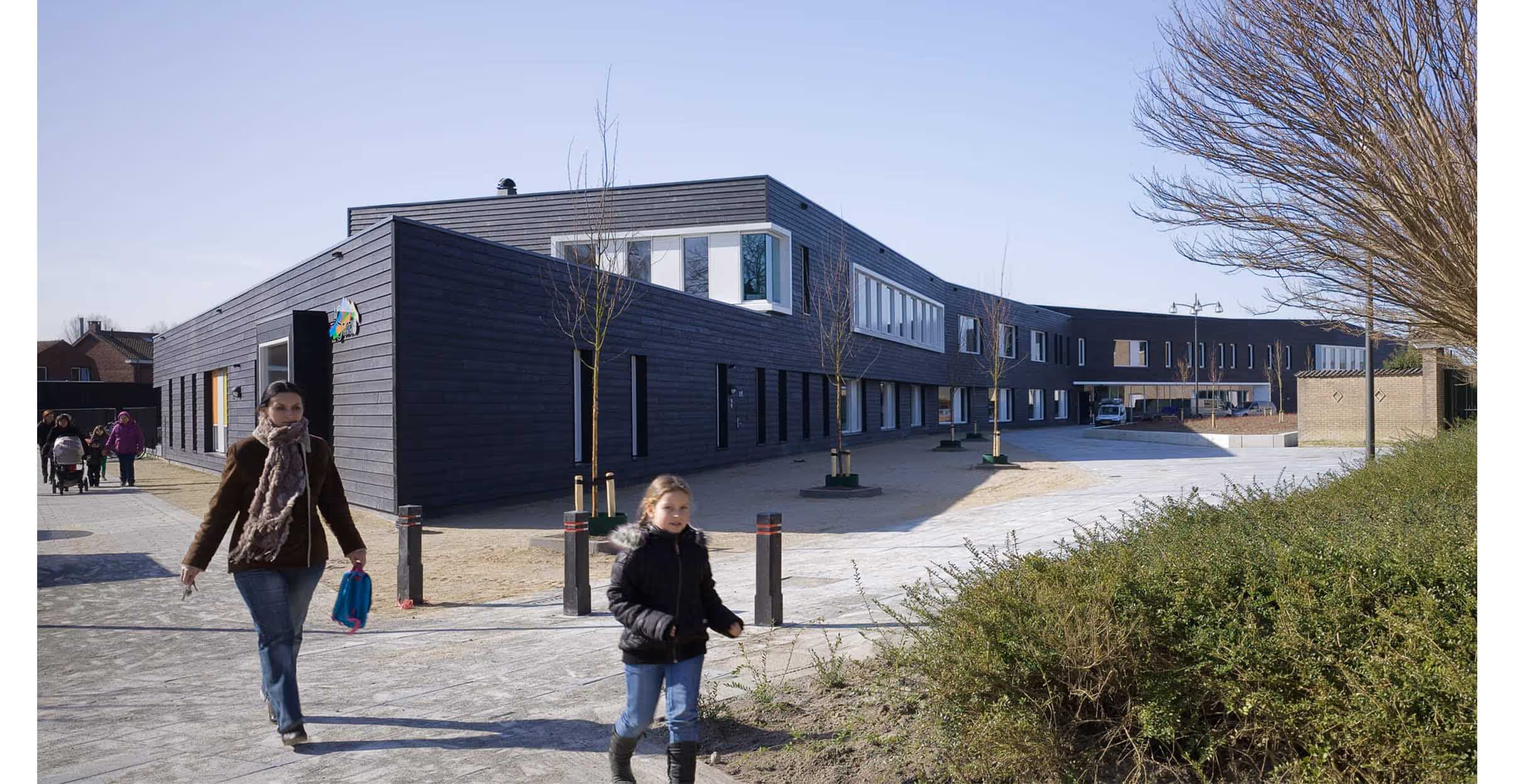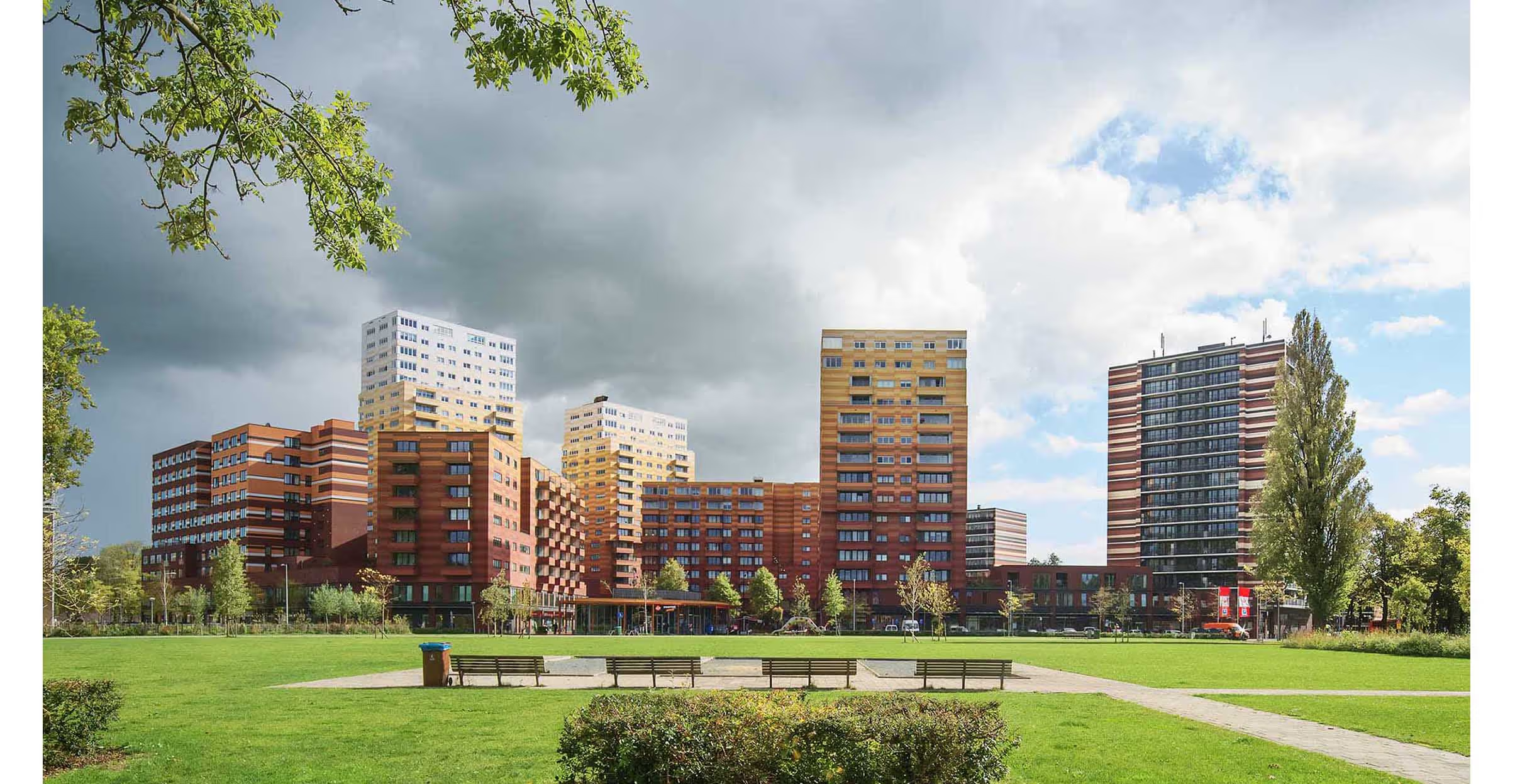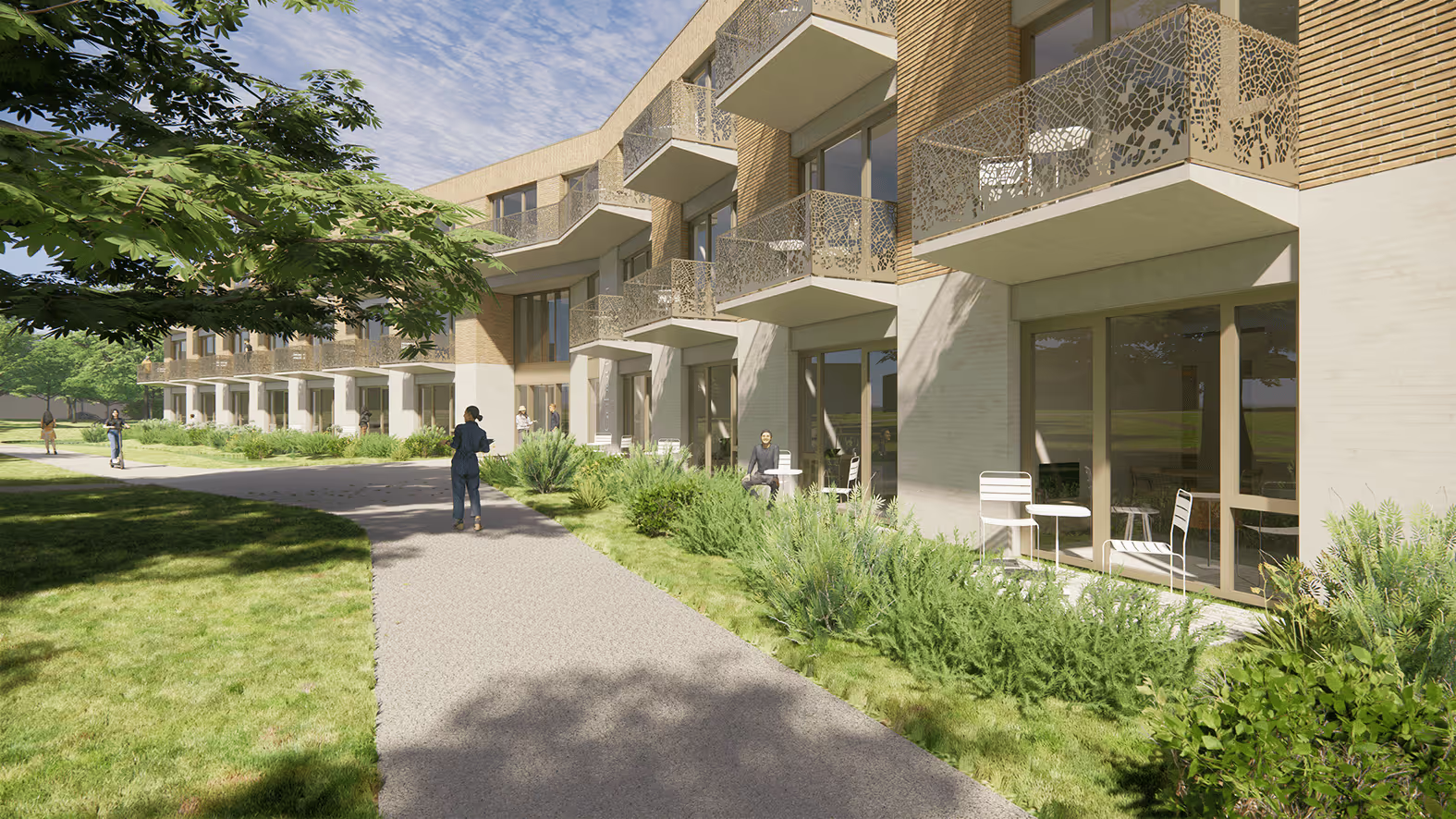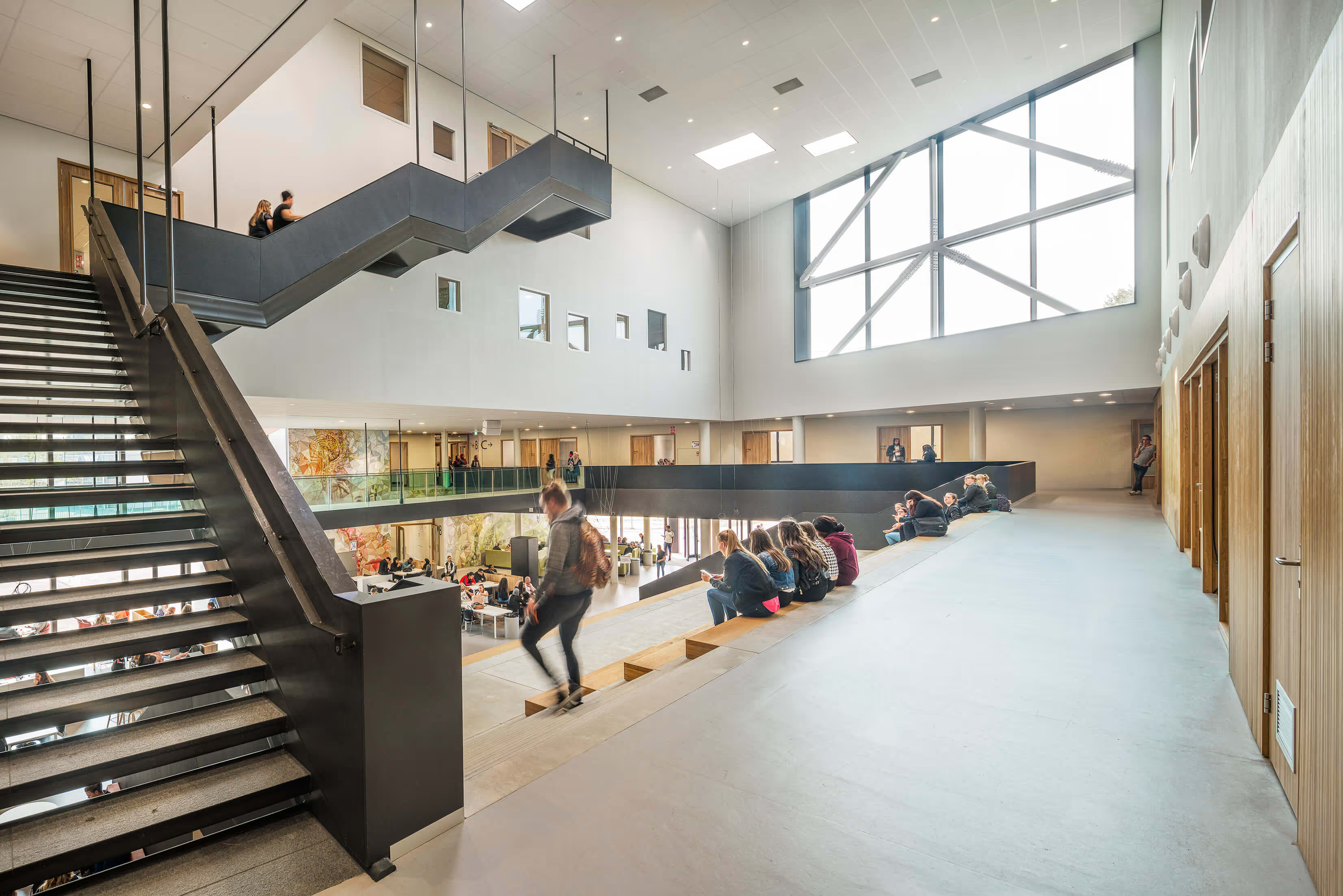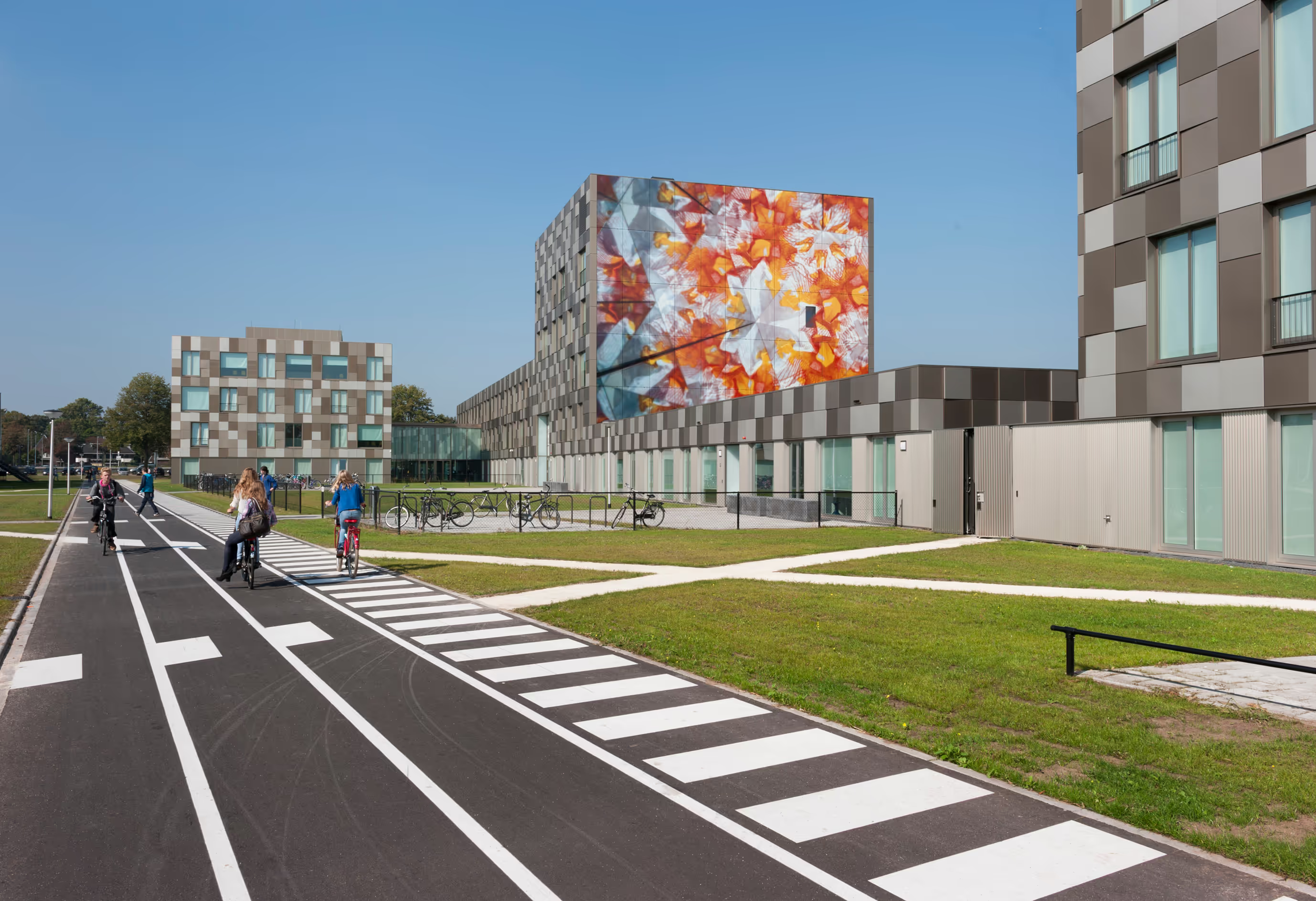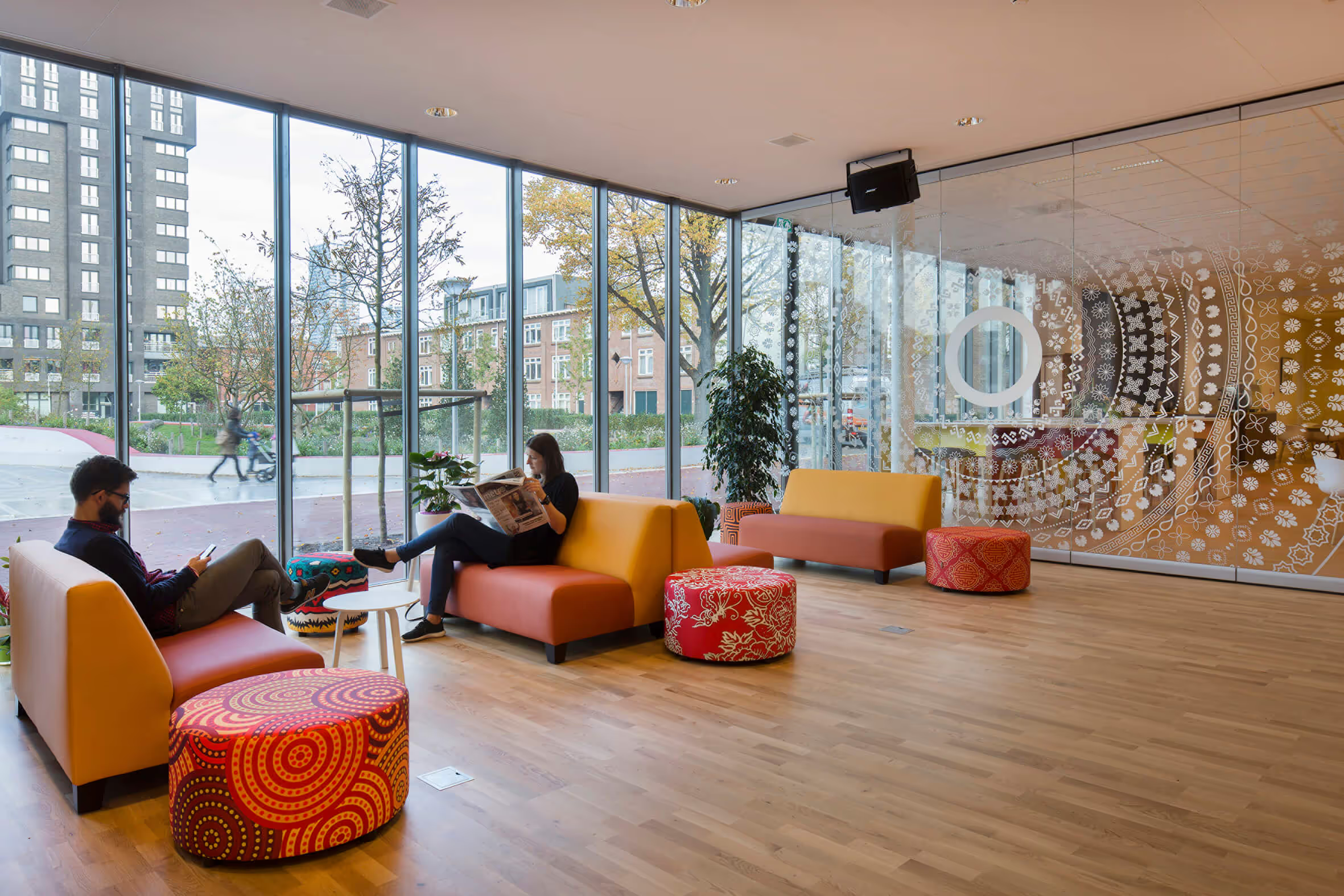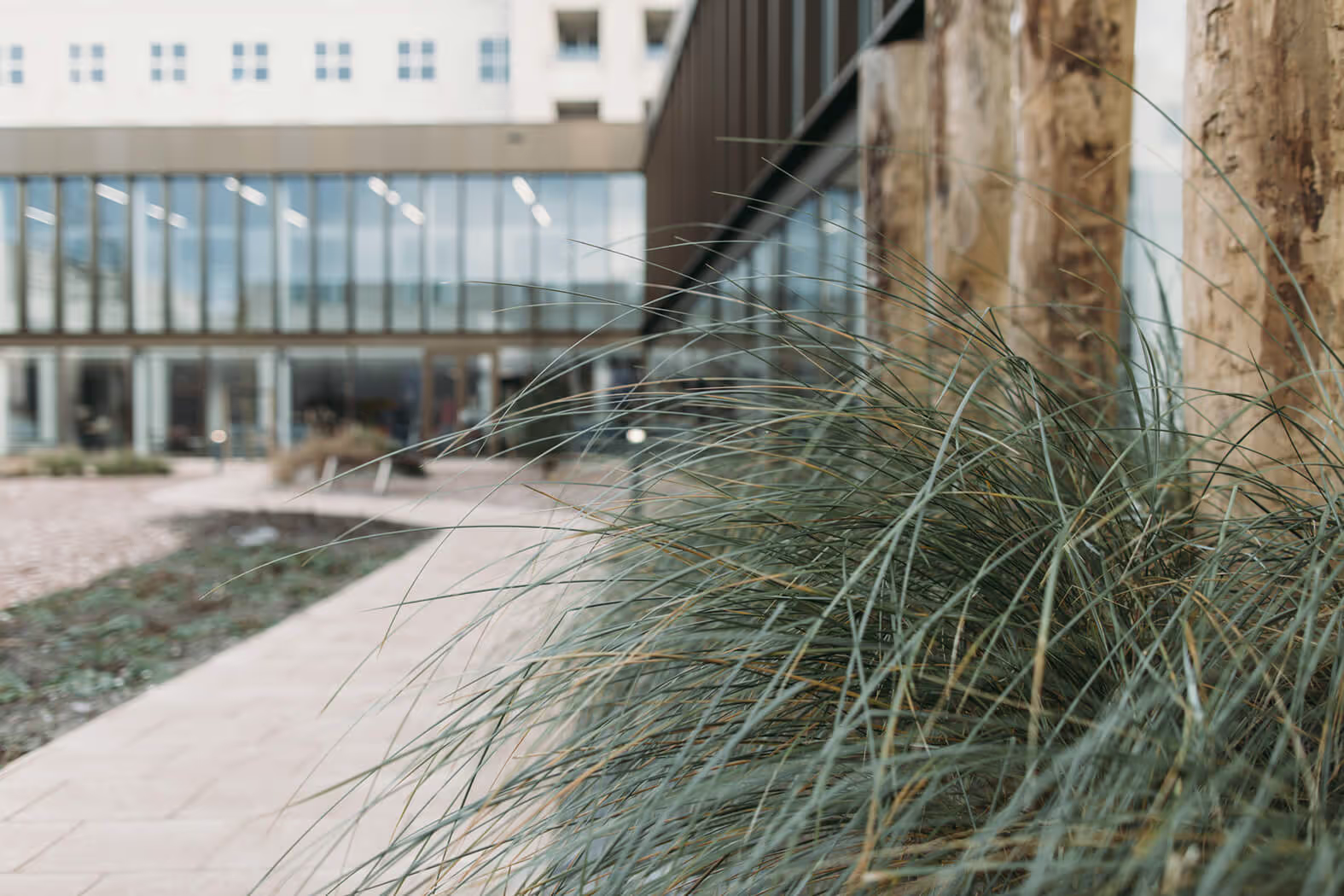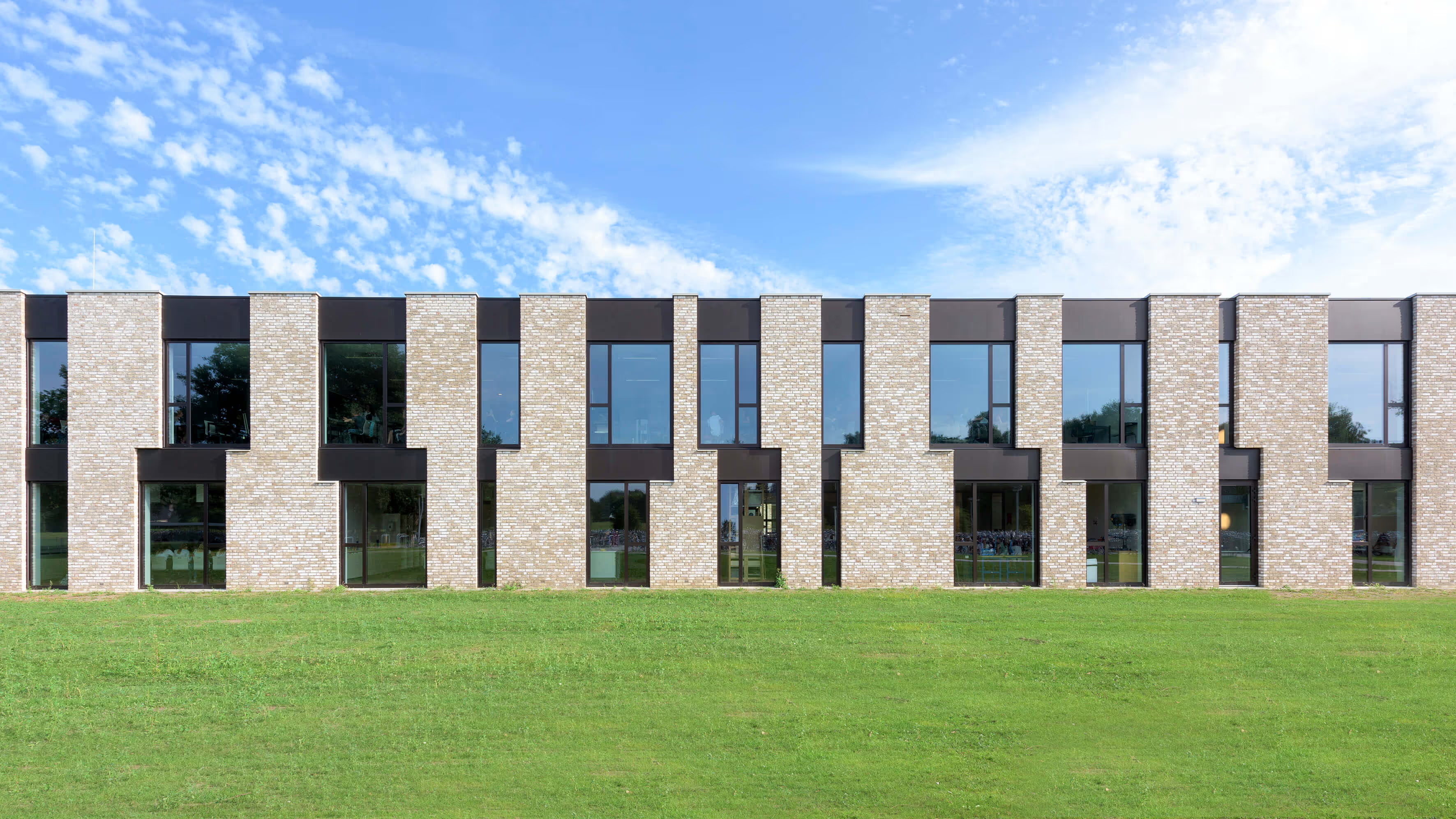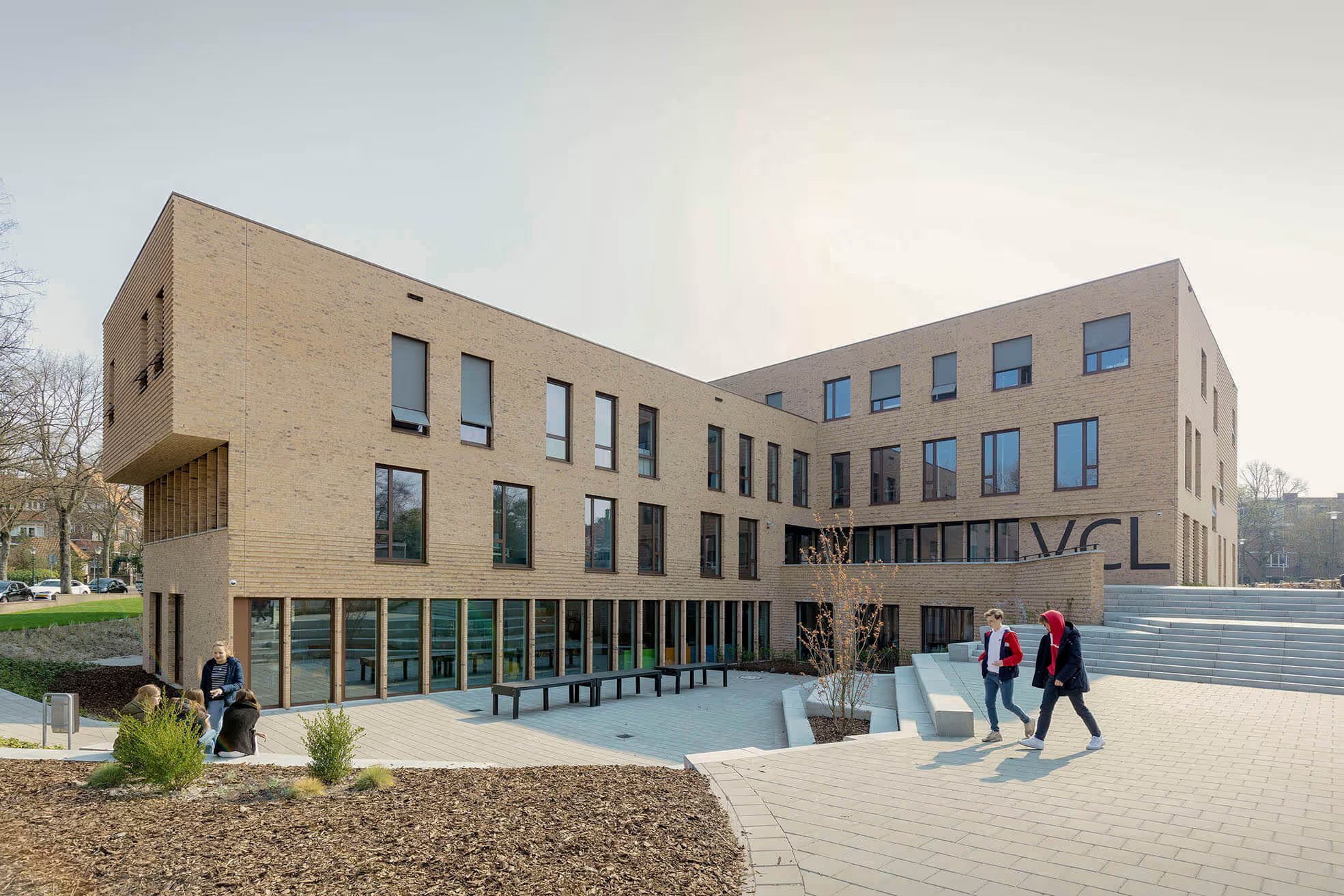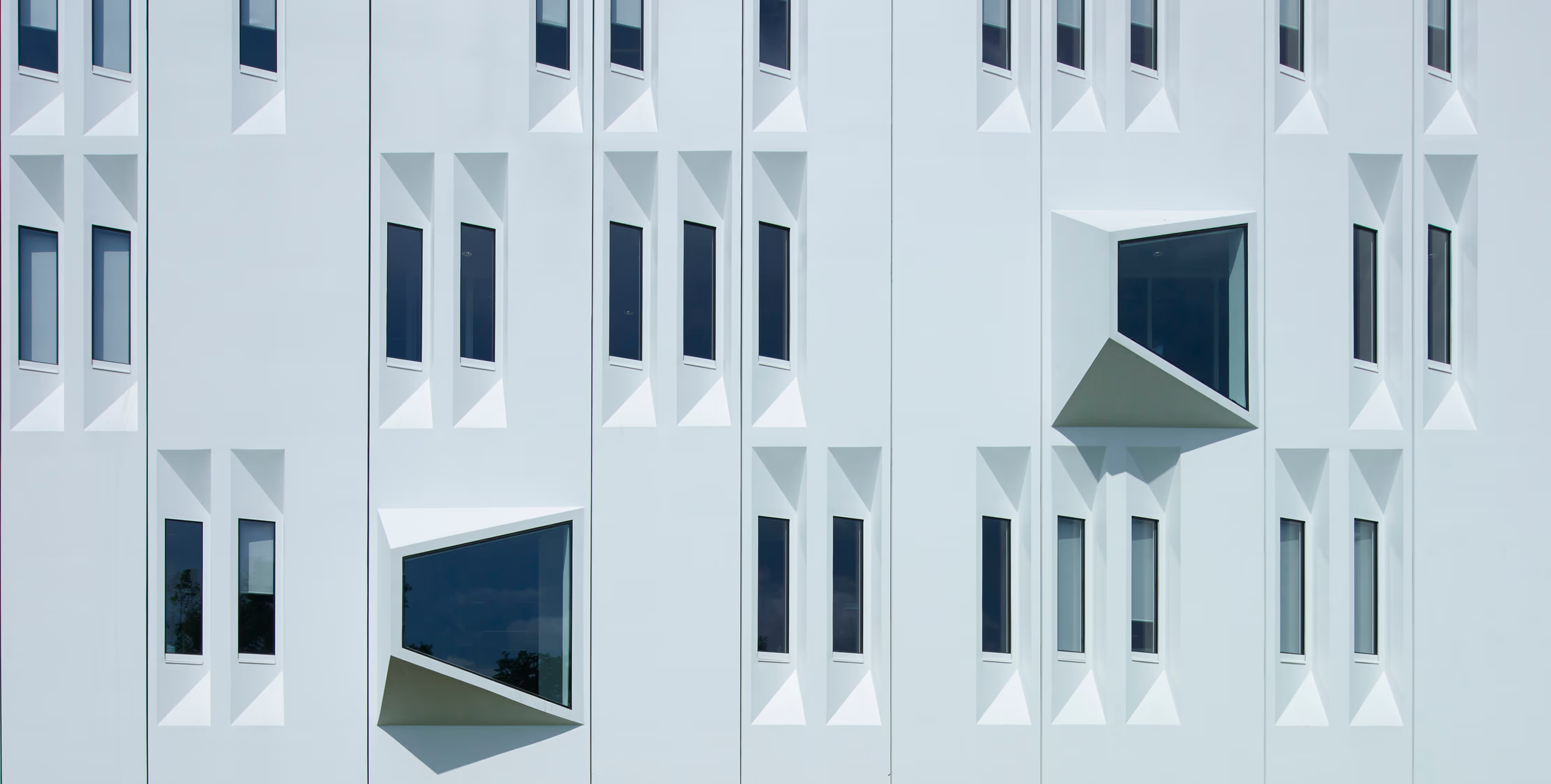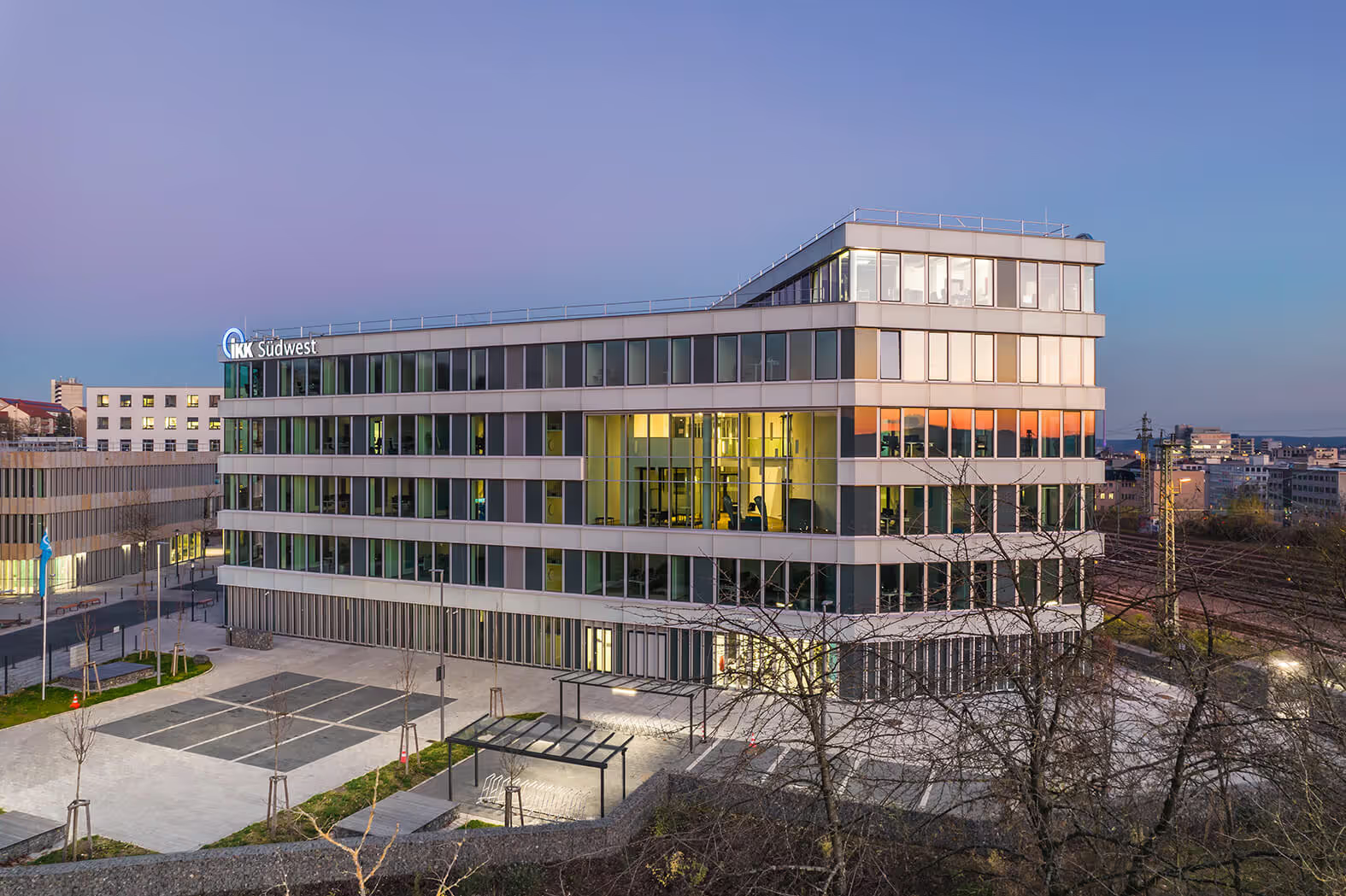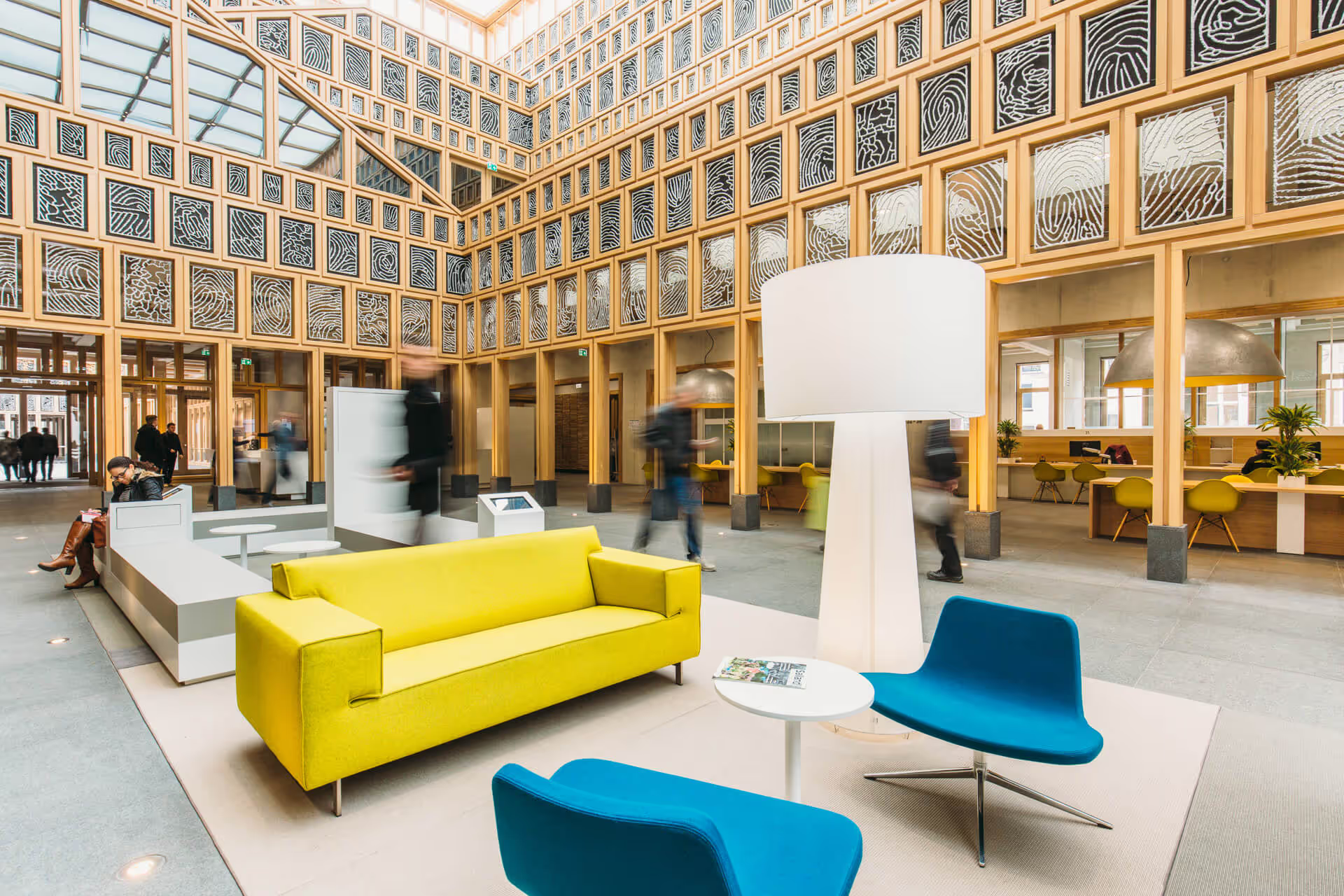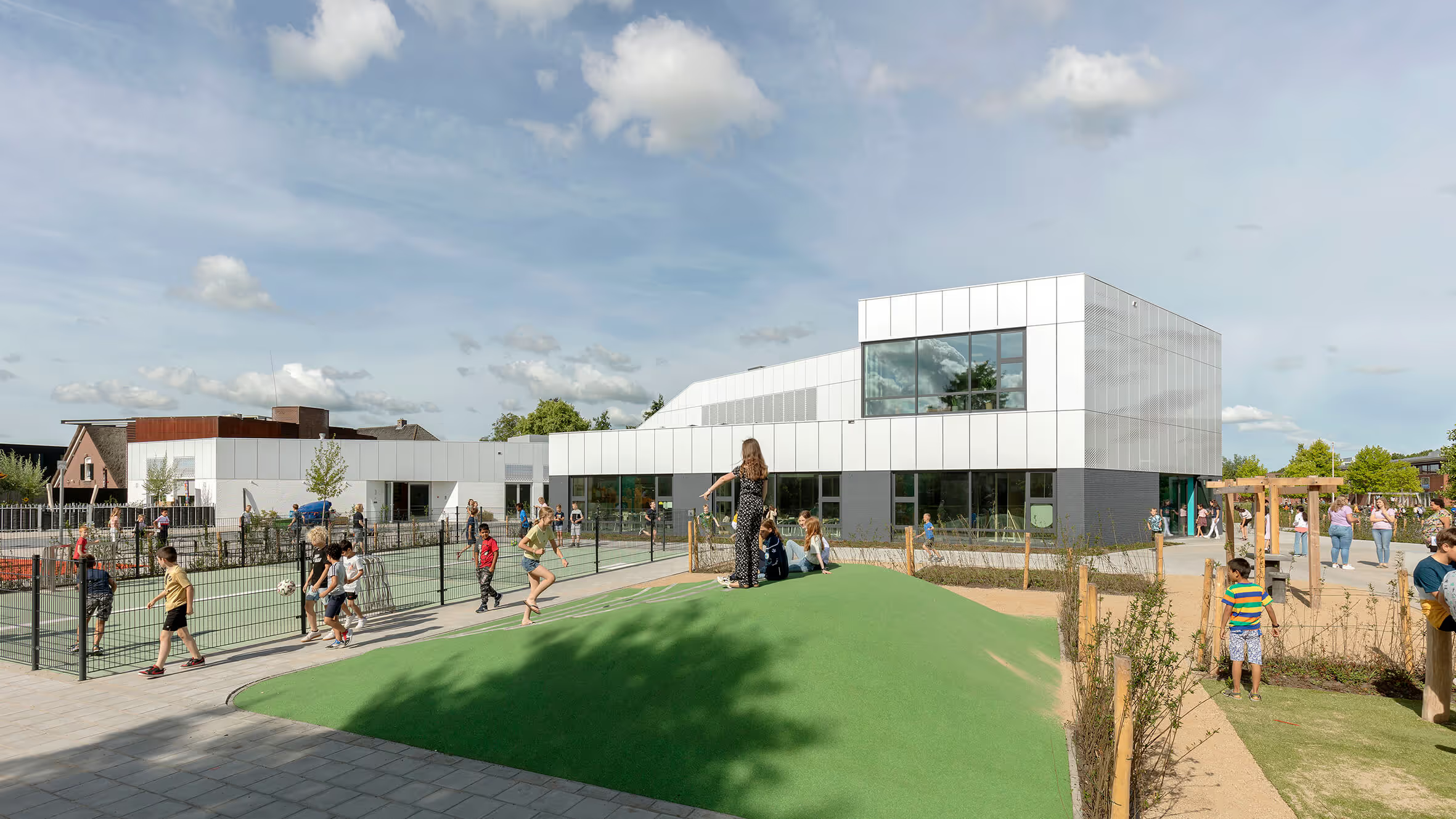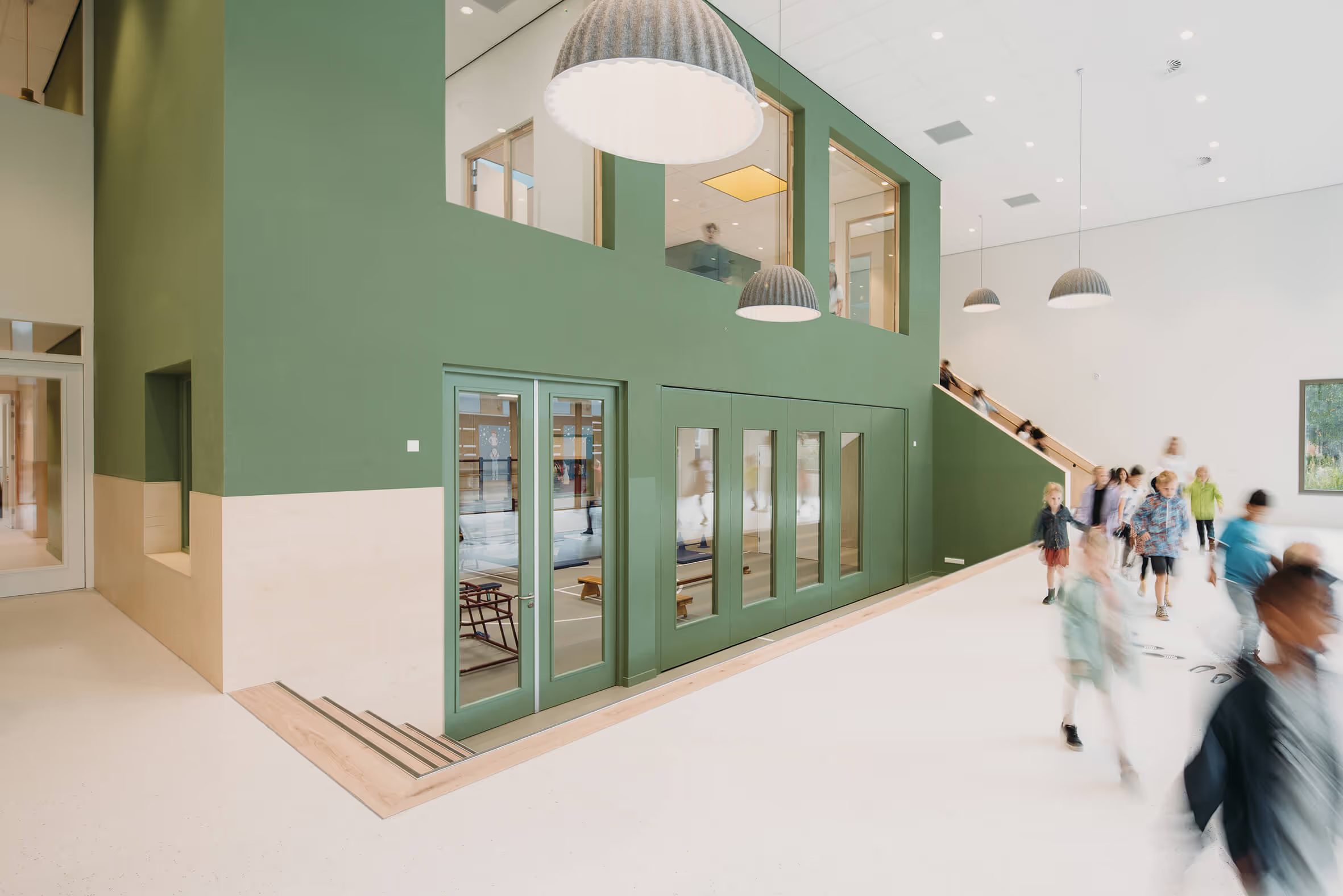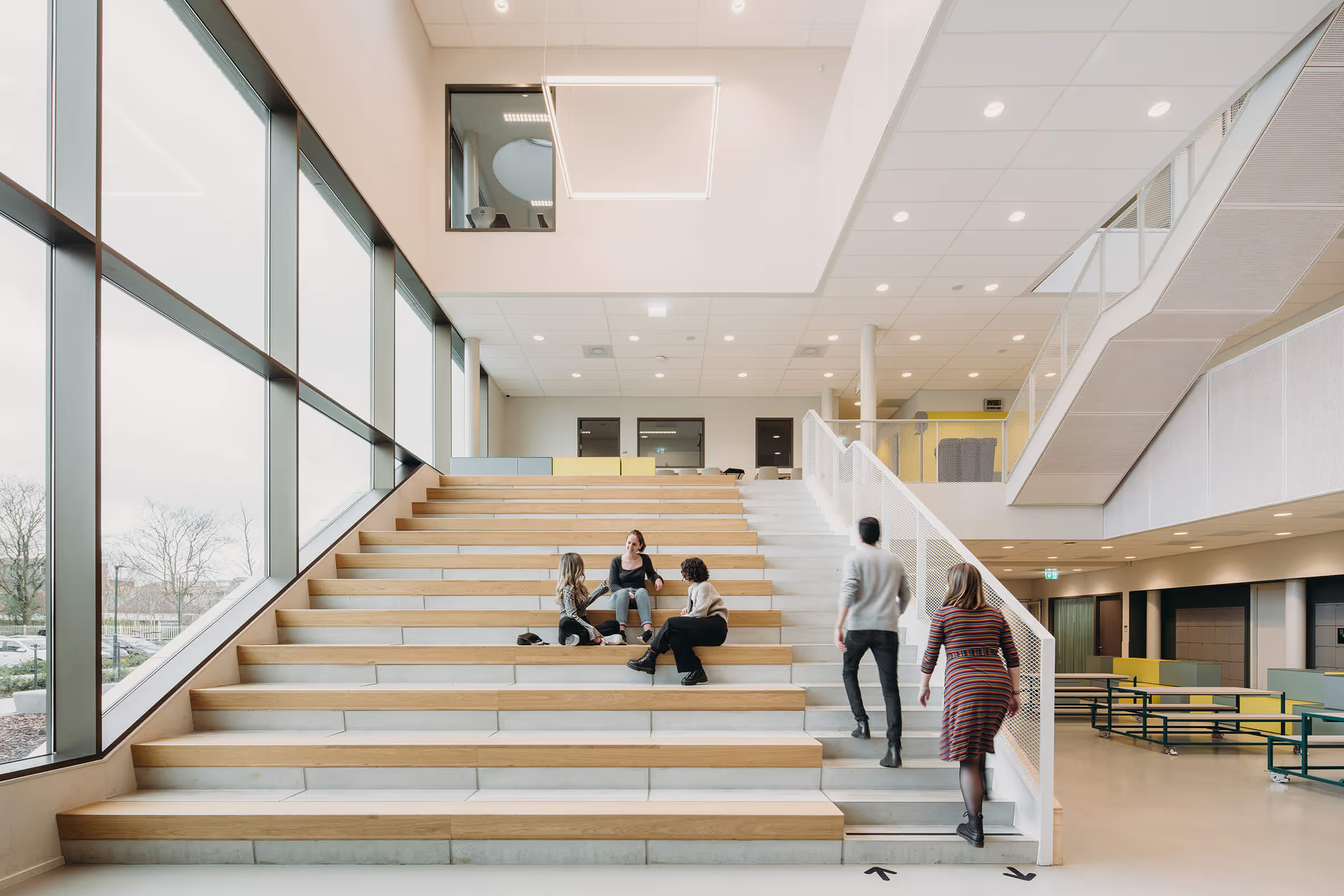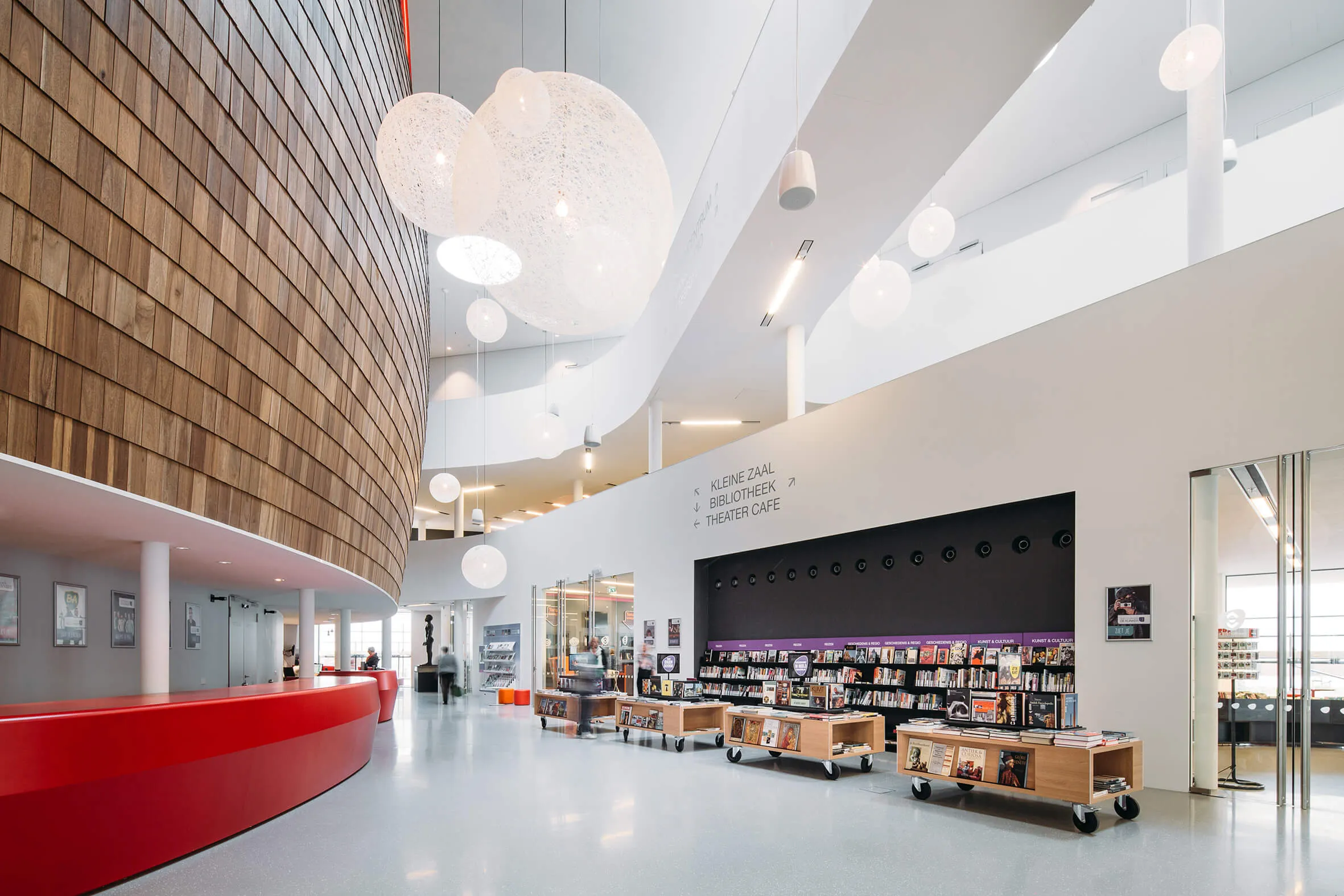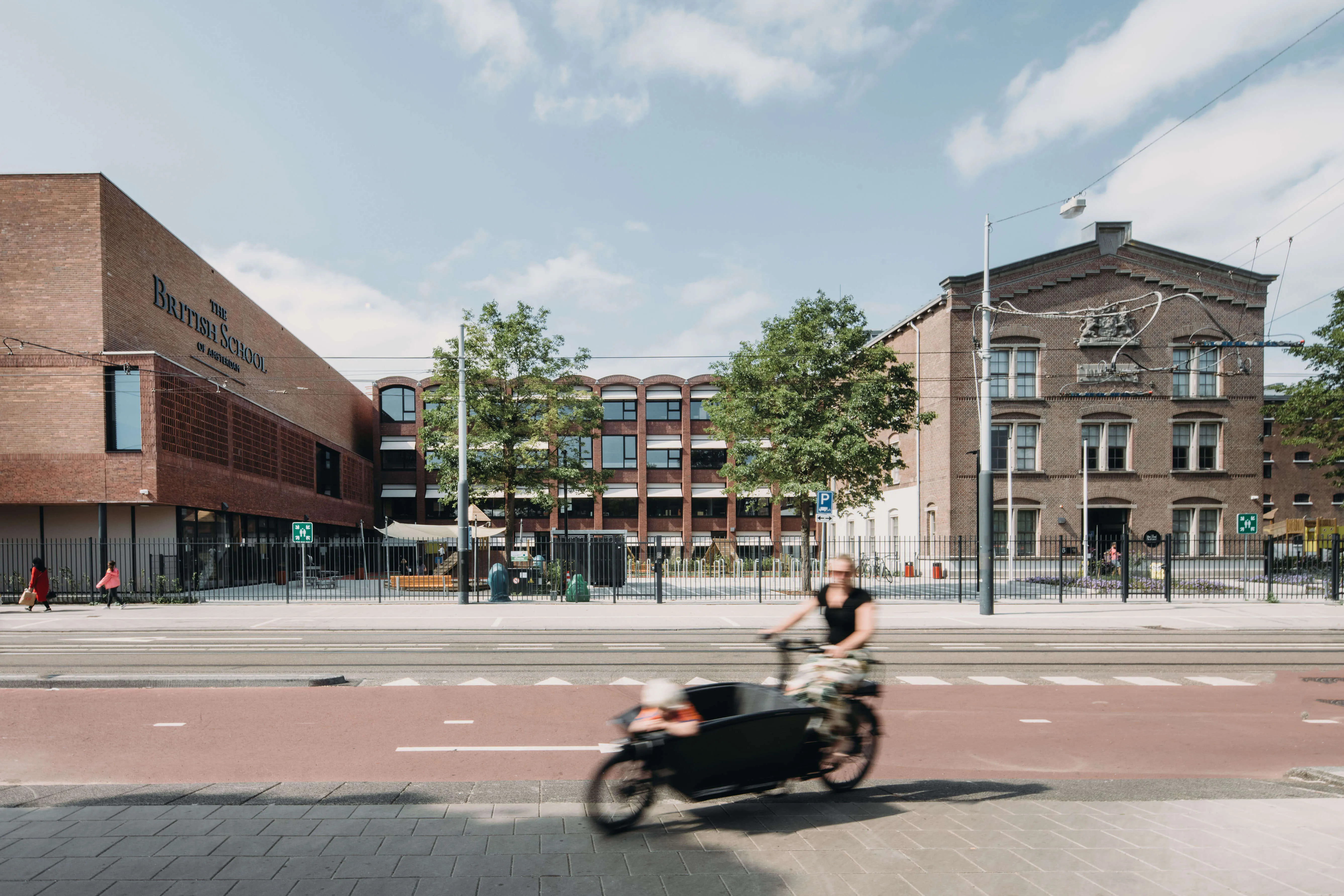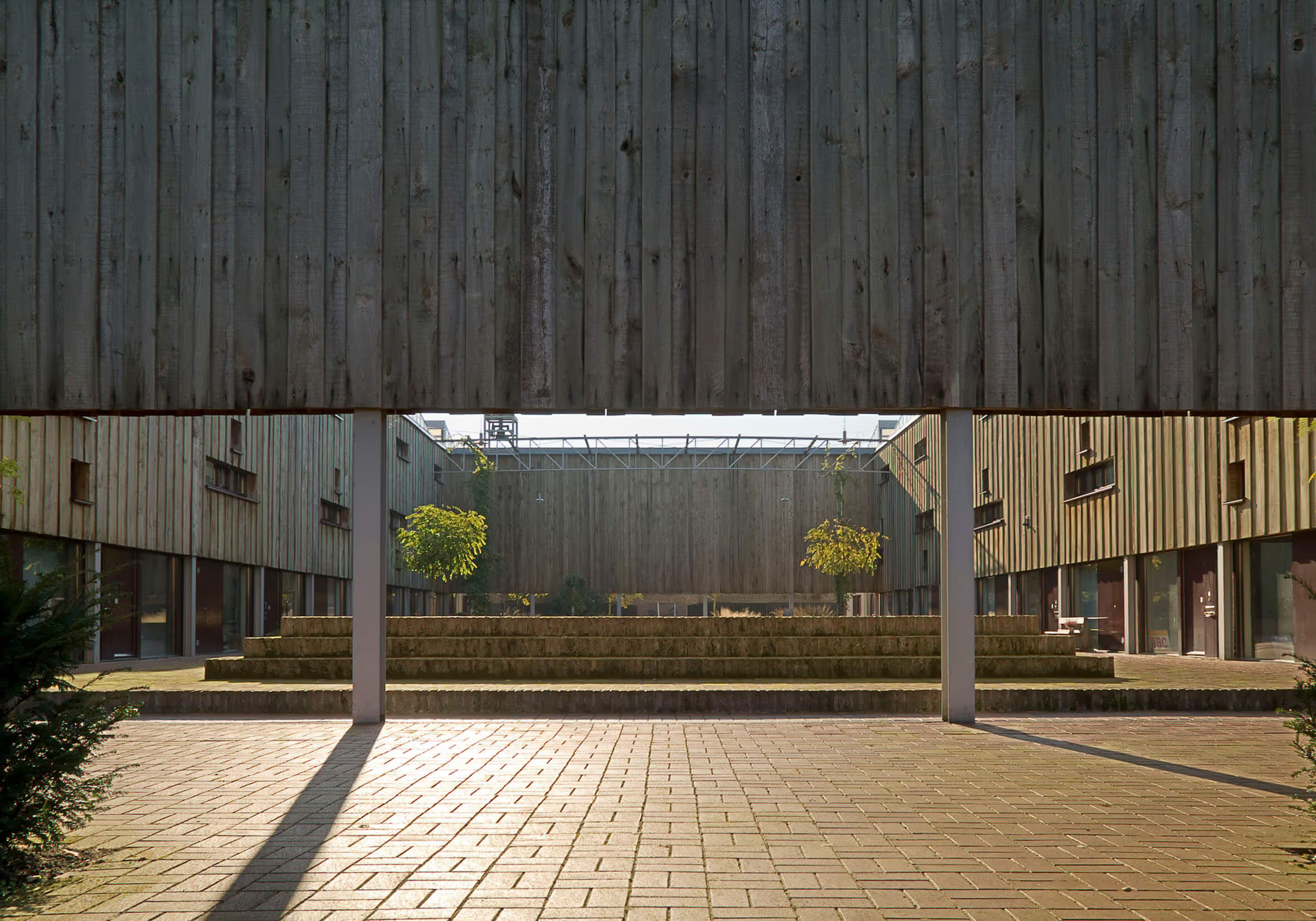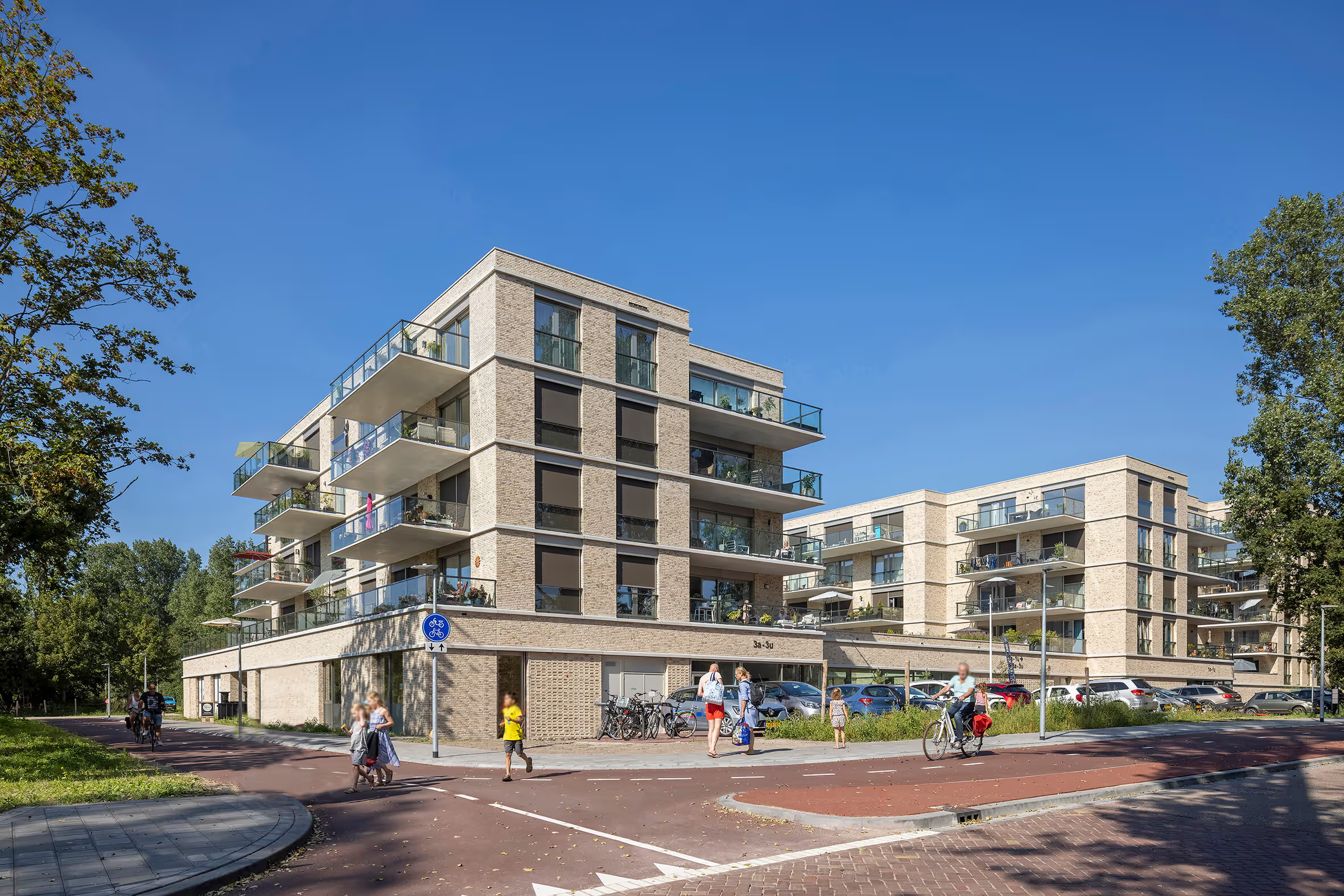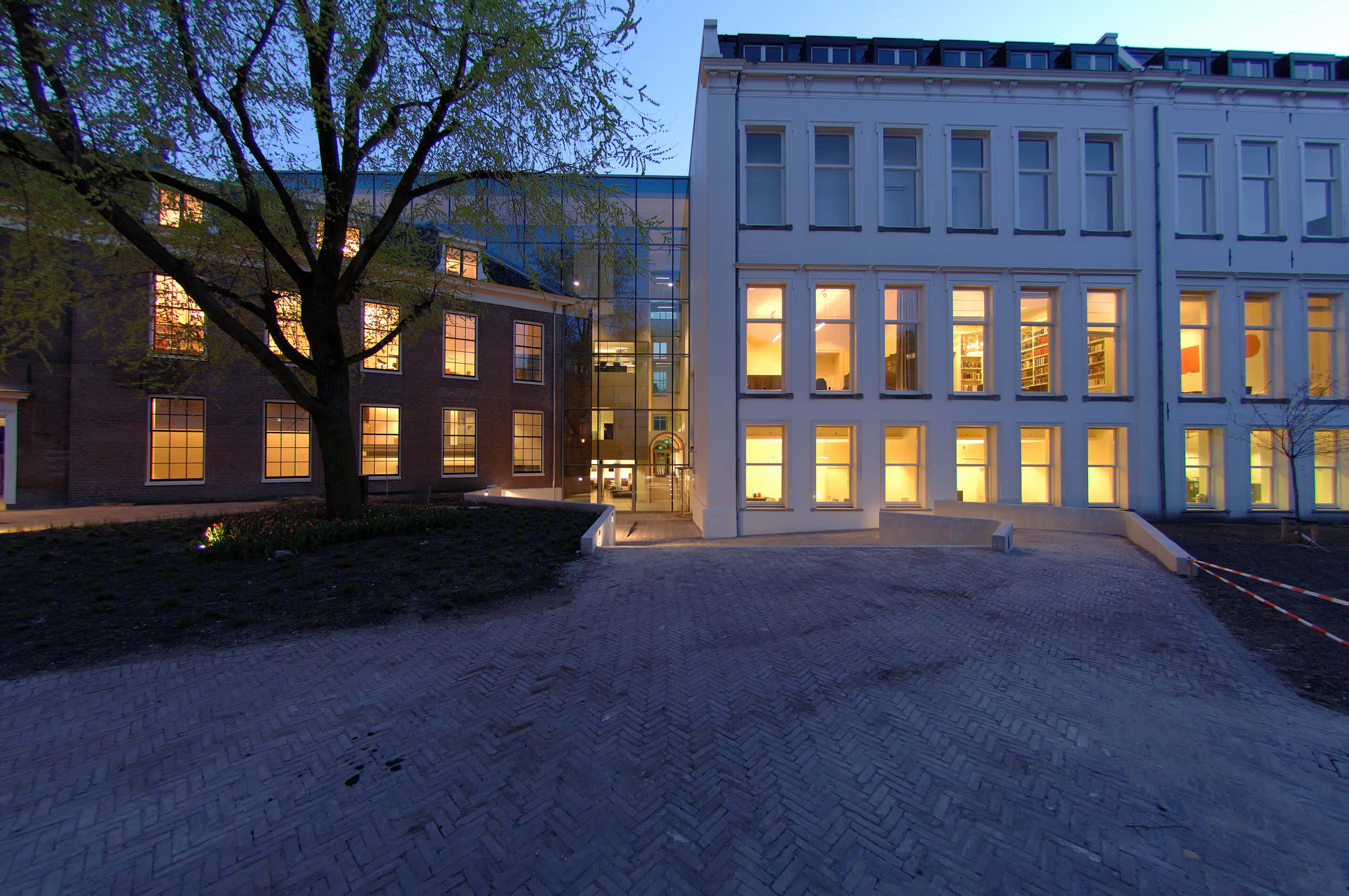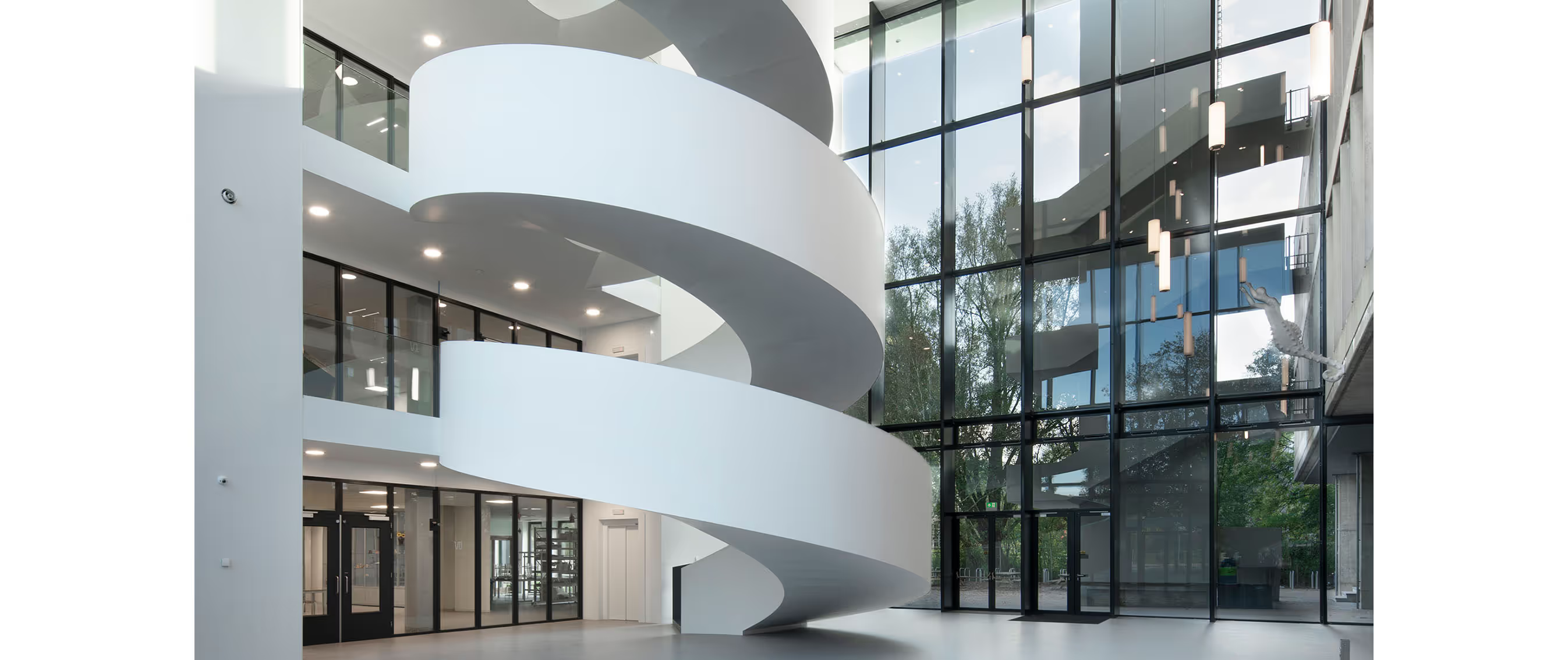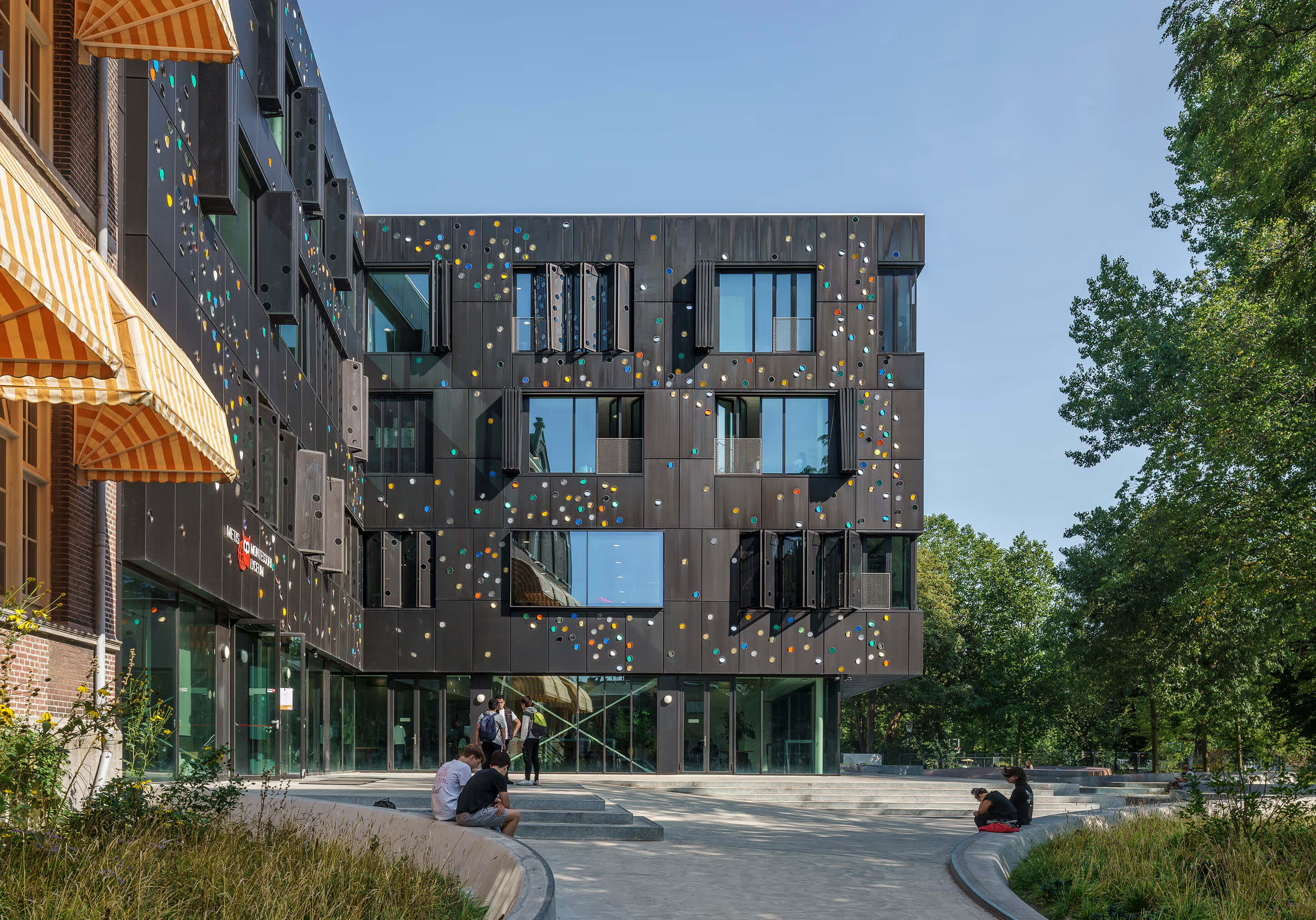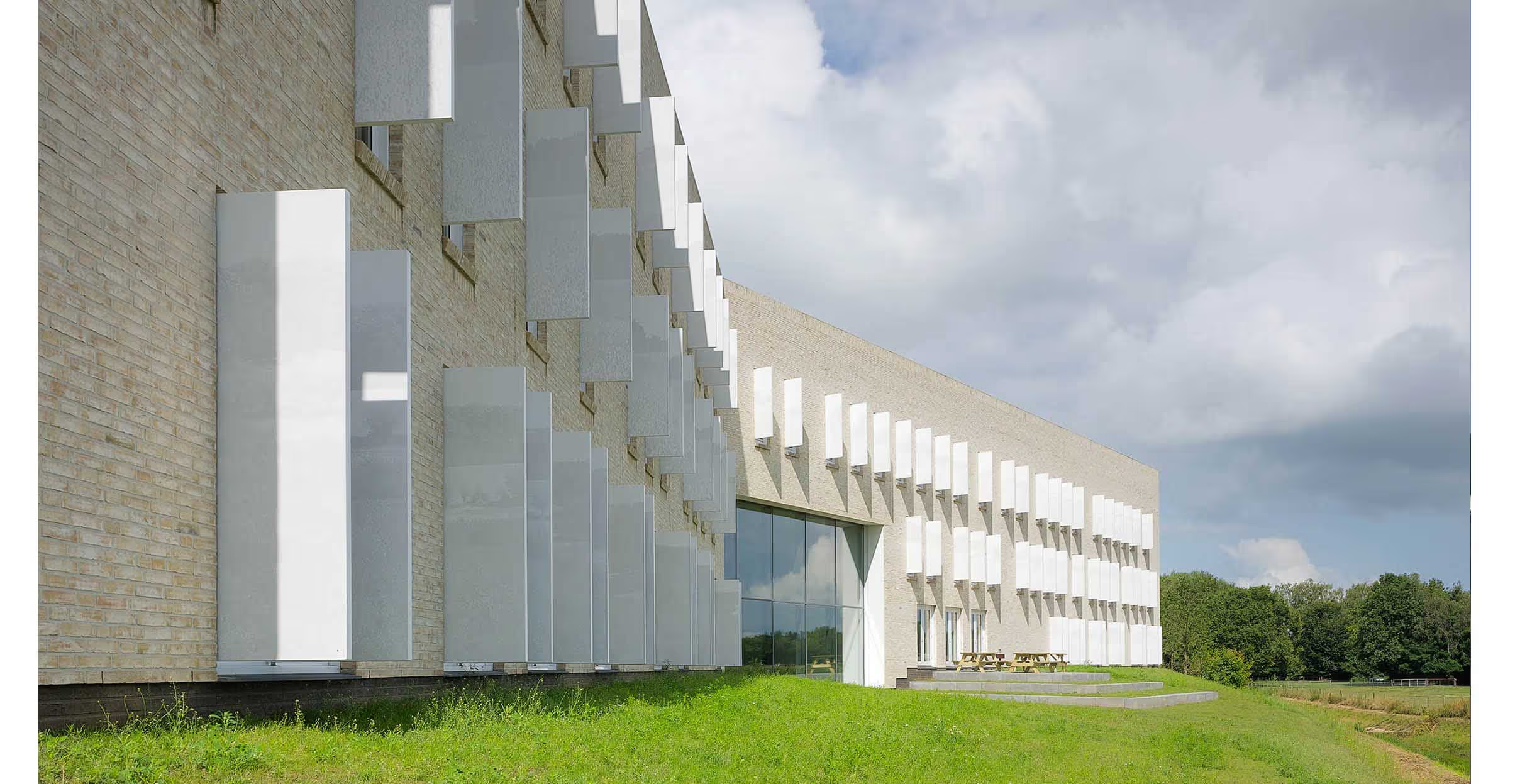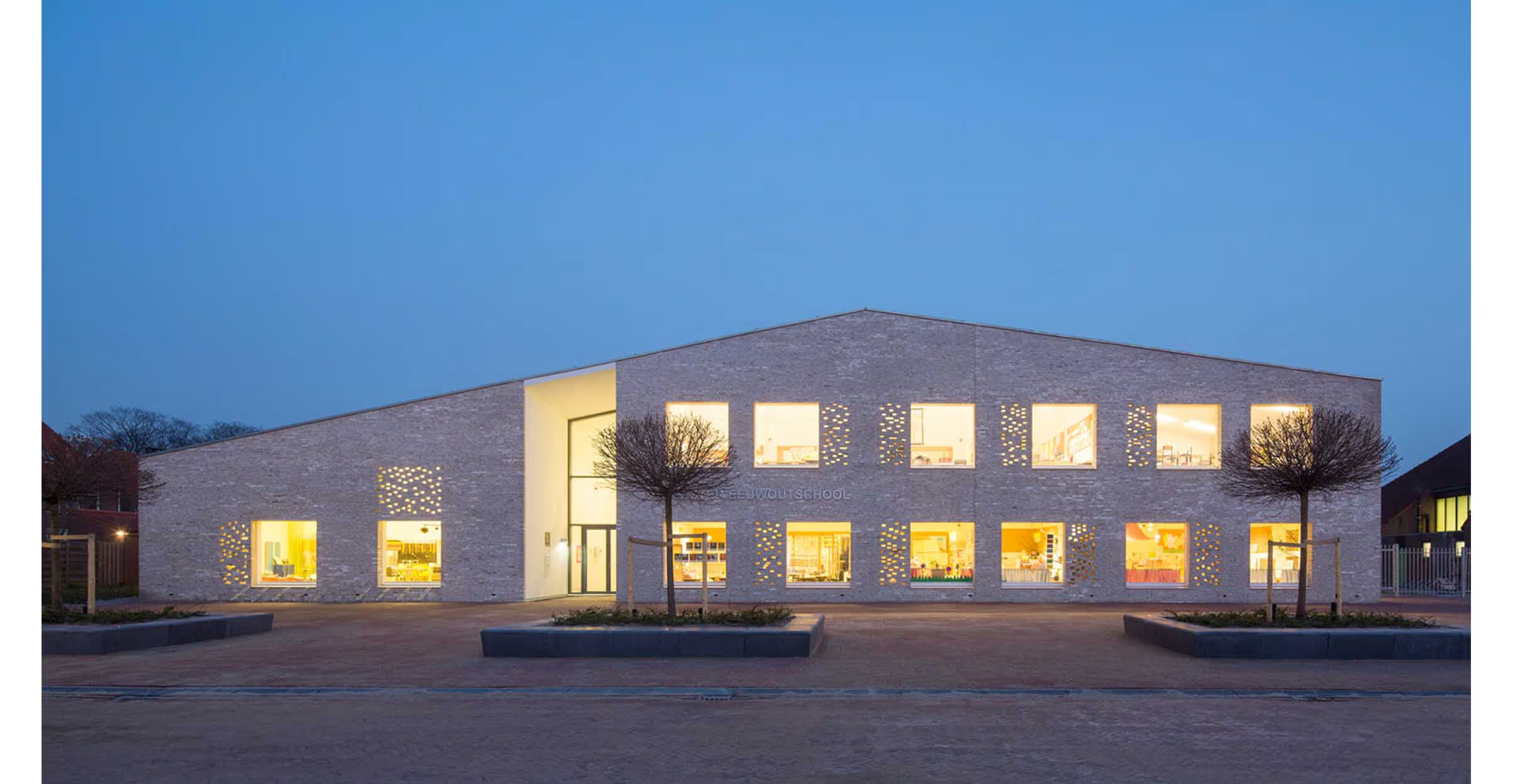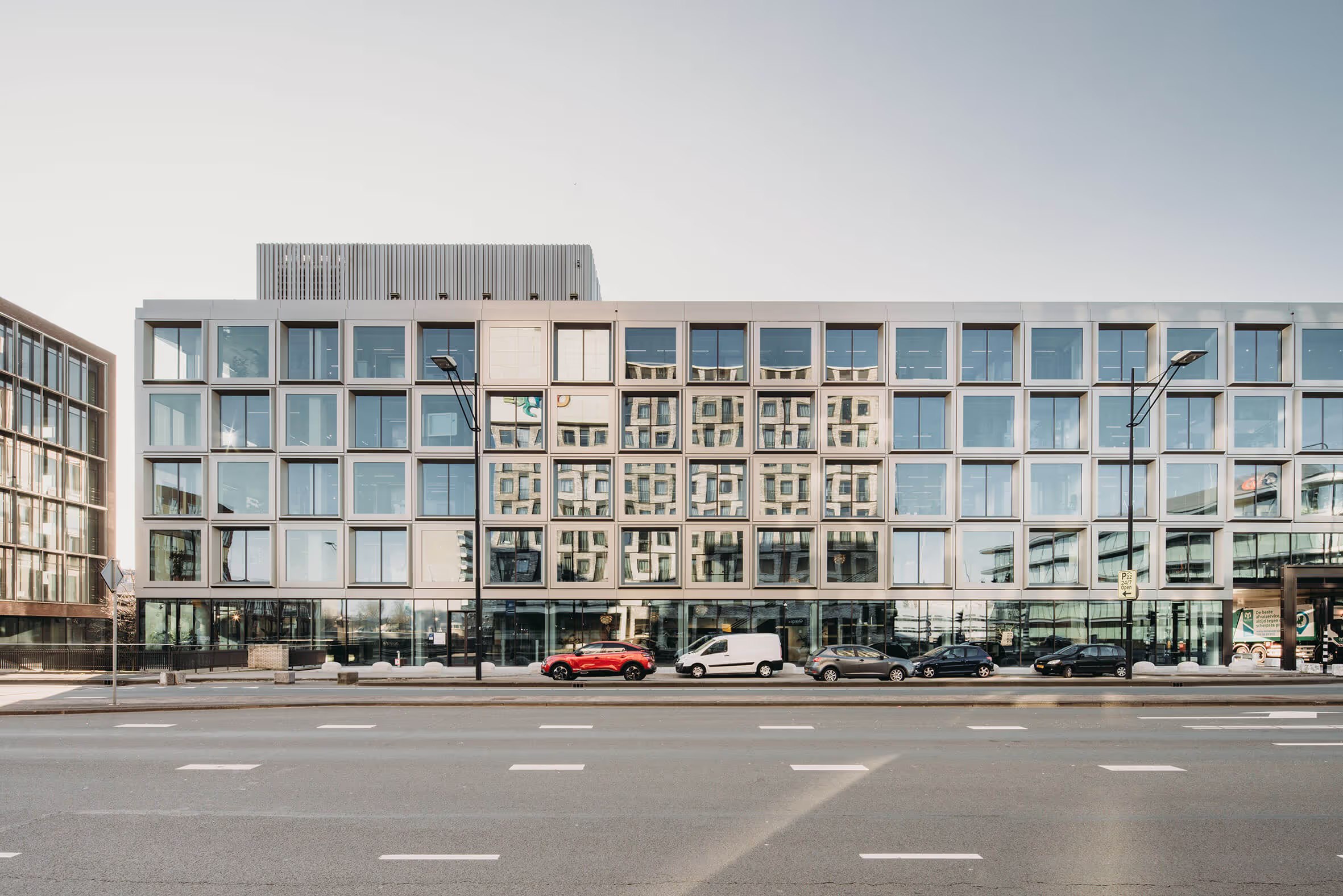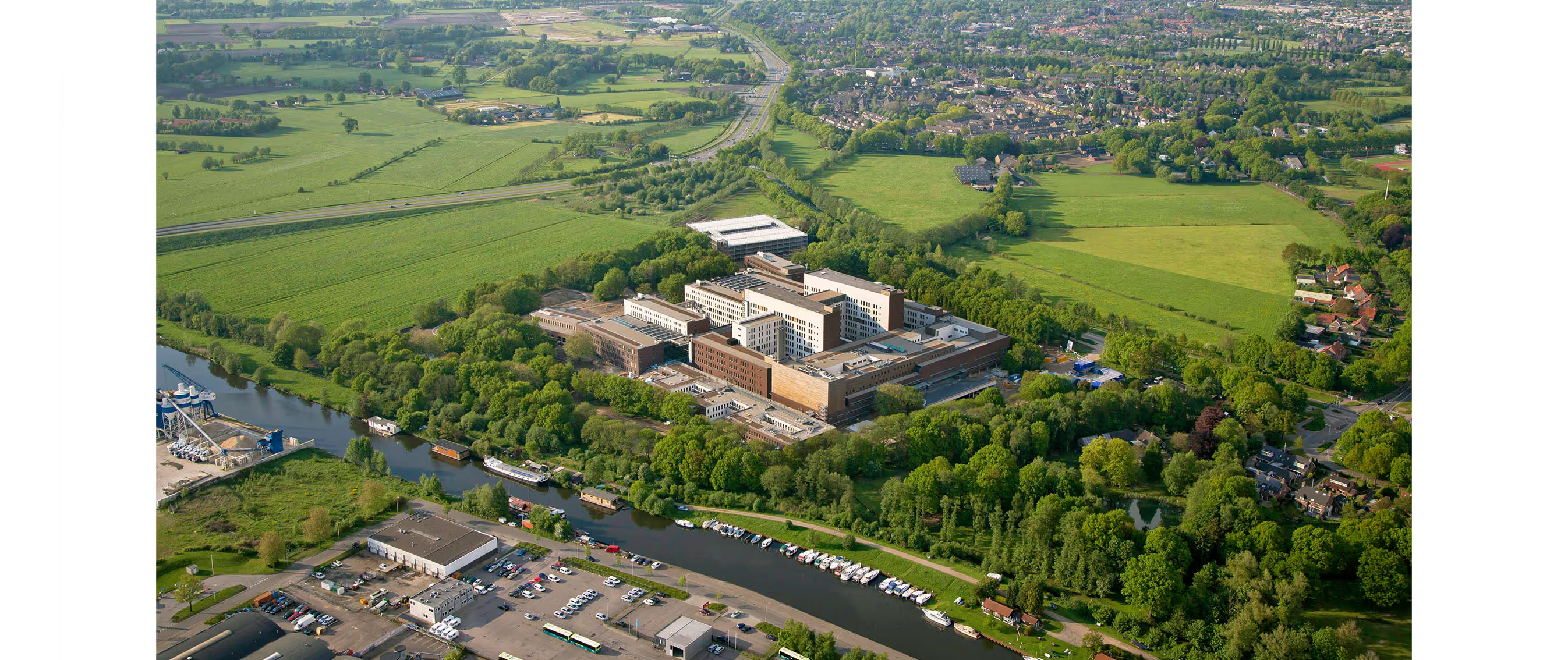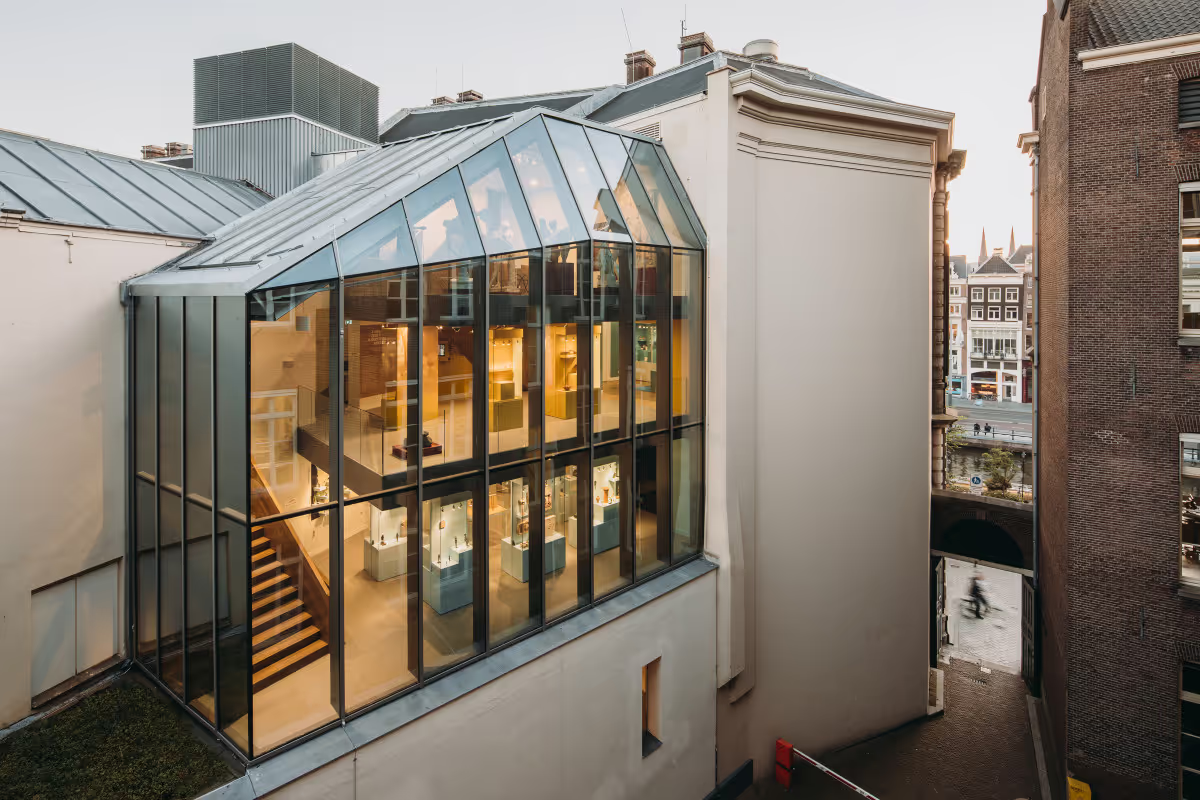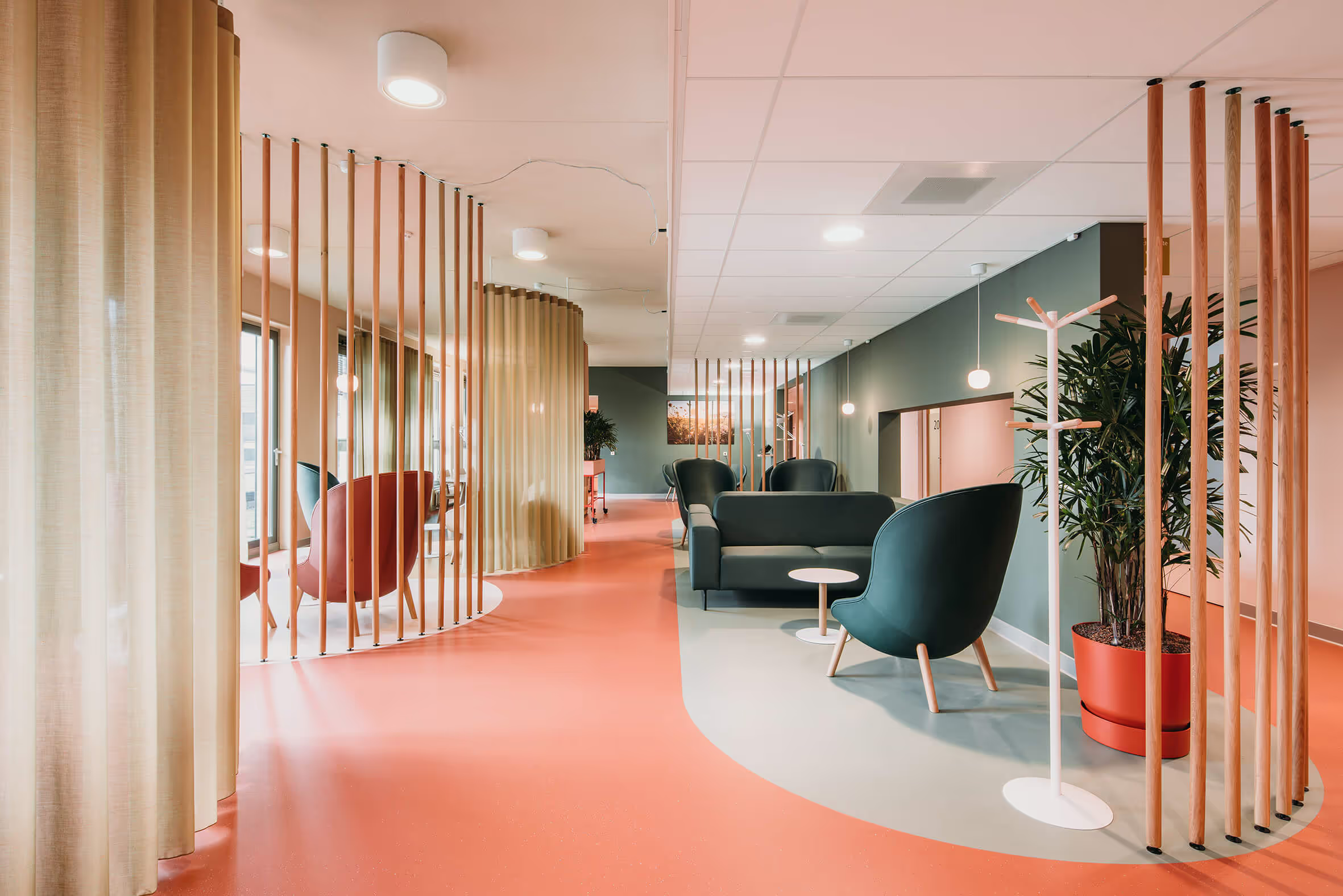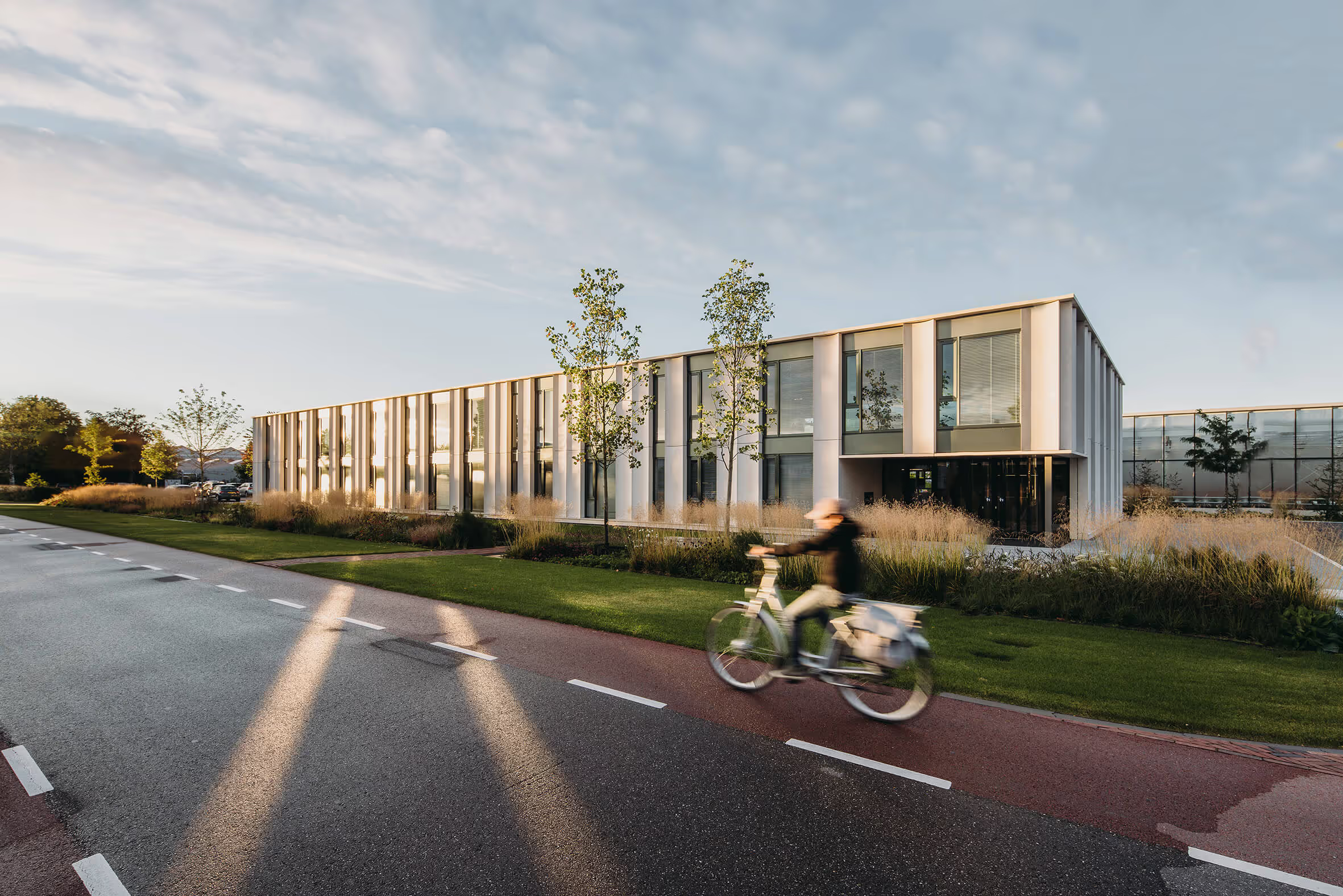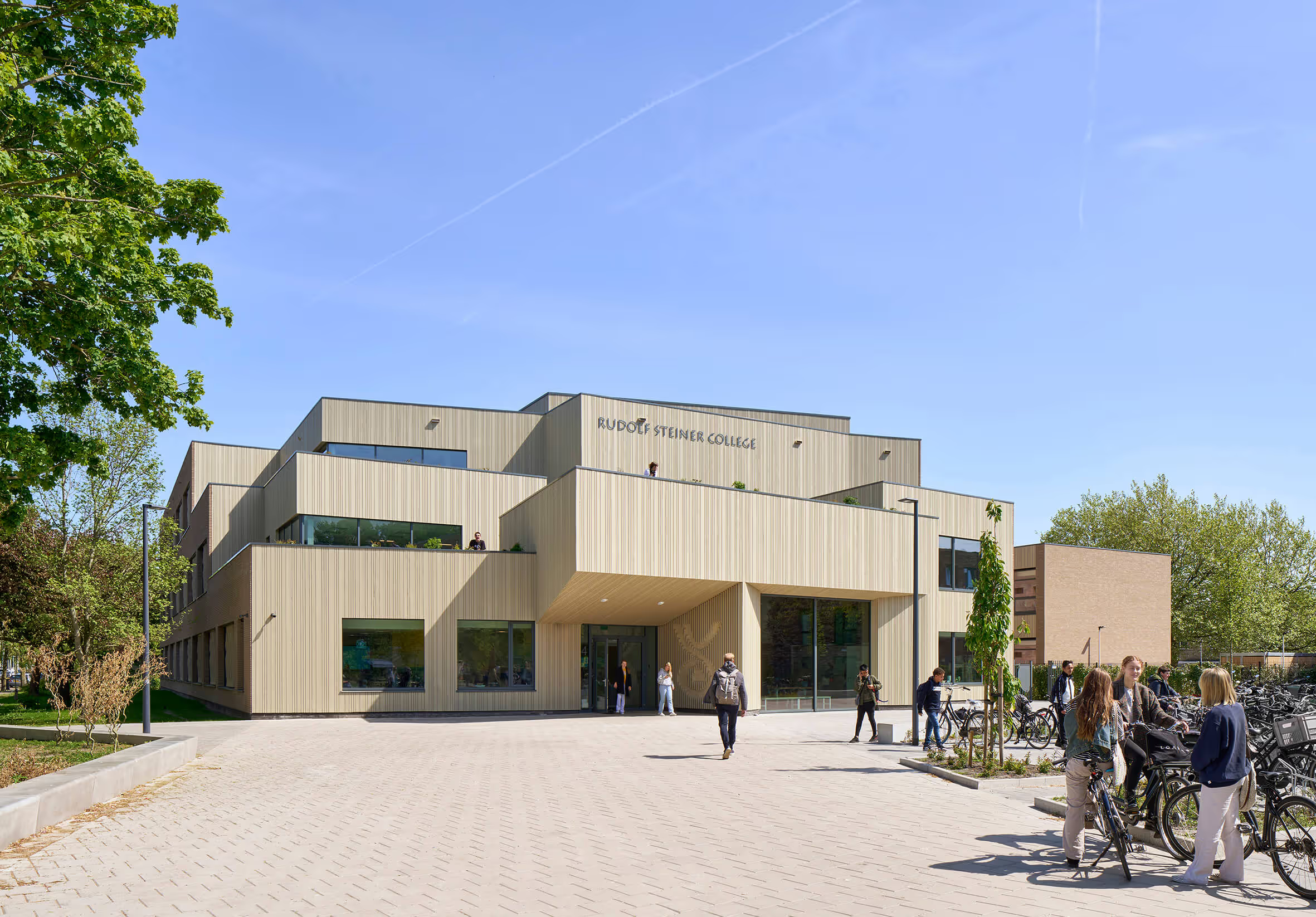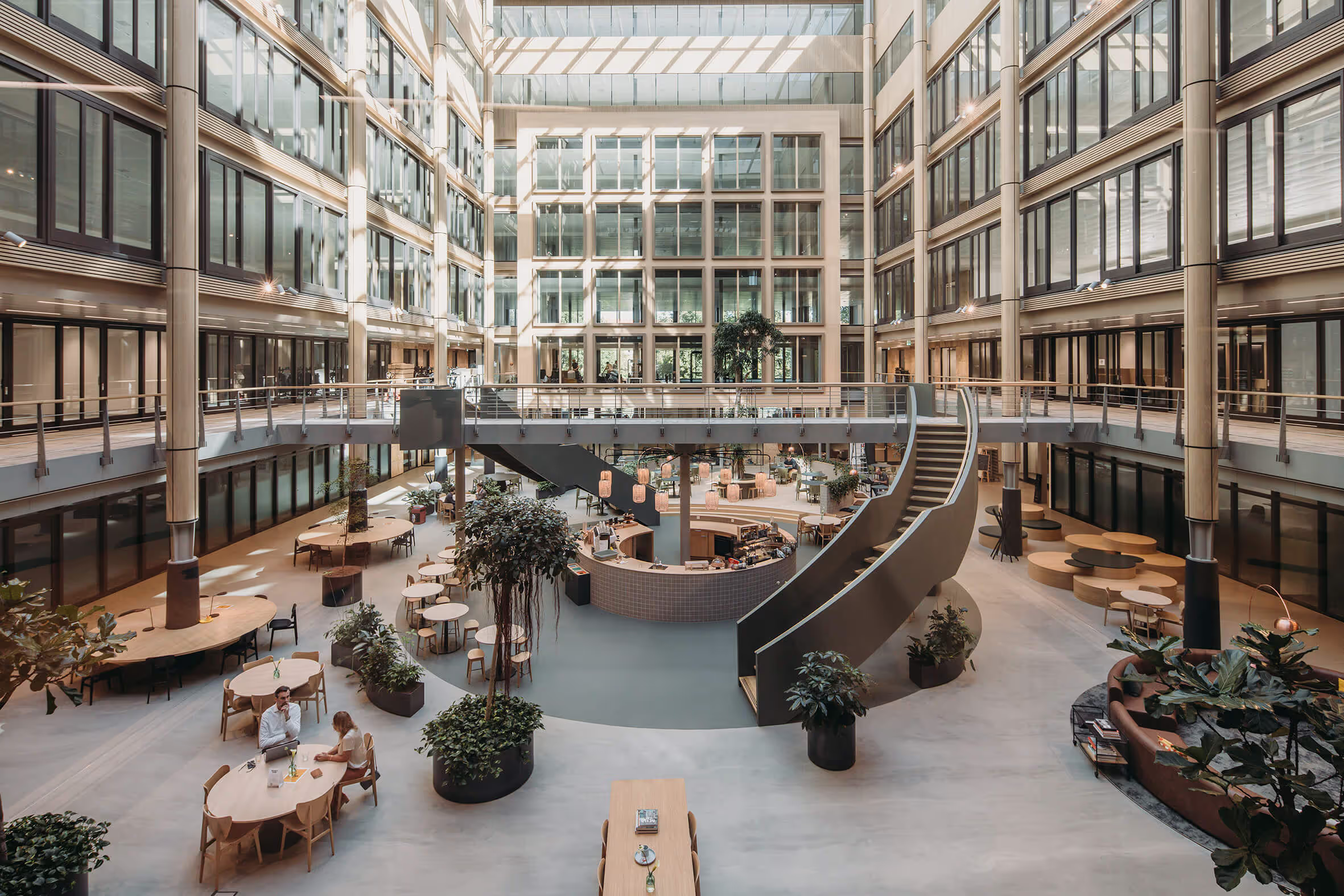Berlage Lyceum
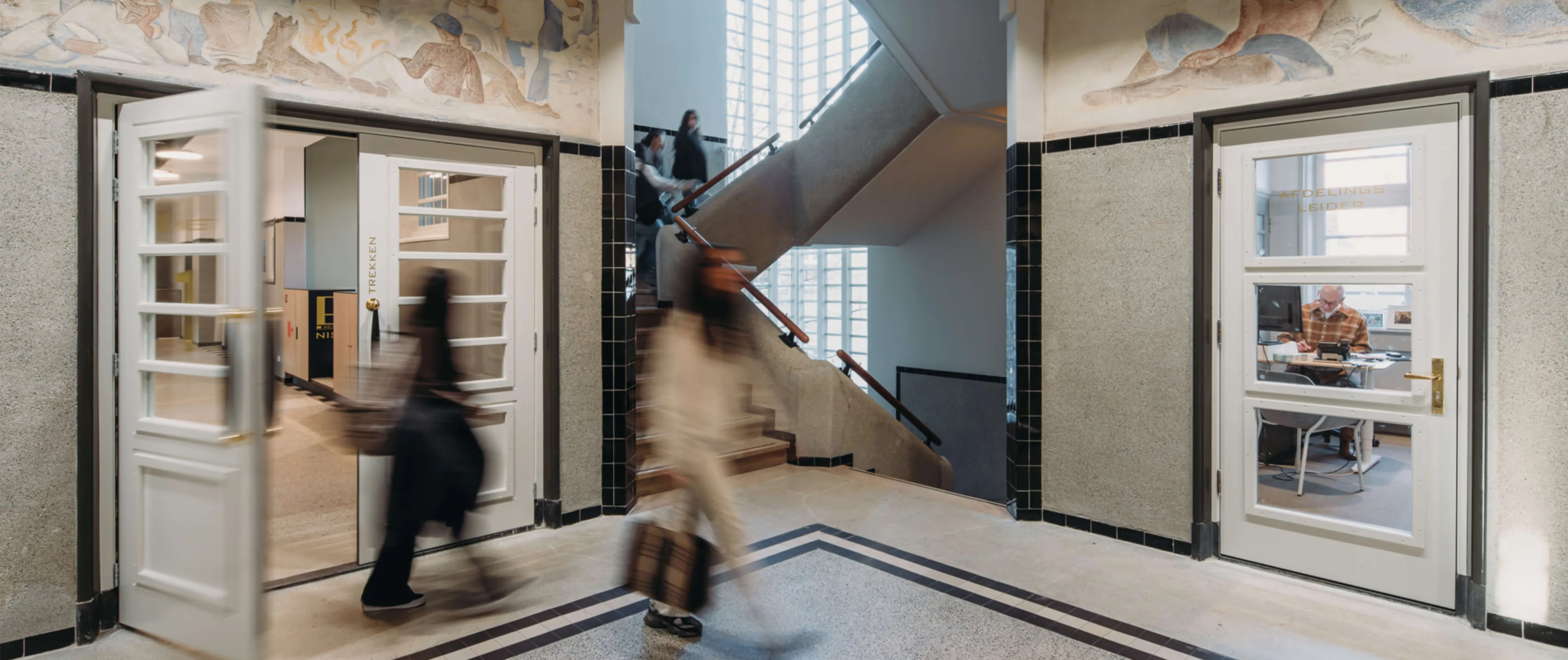
Berlage Lyceum
Berlage Lyceum

Renovation and refurbishment of an 'Amsterdam school' school
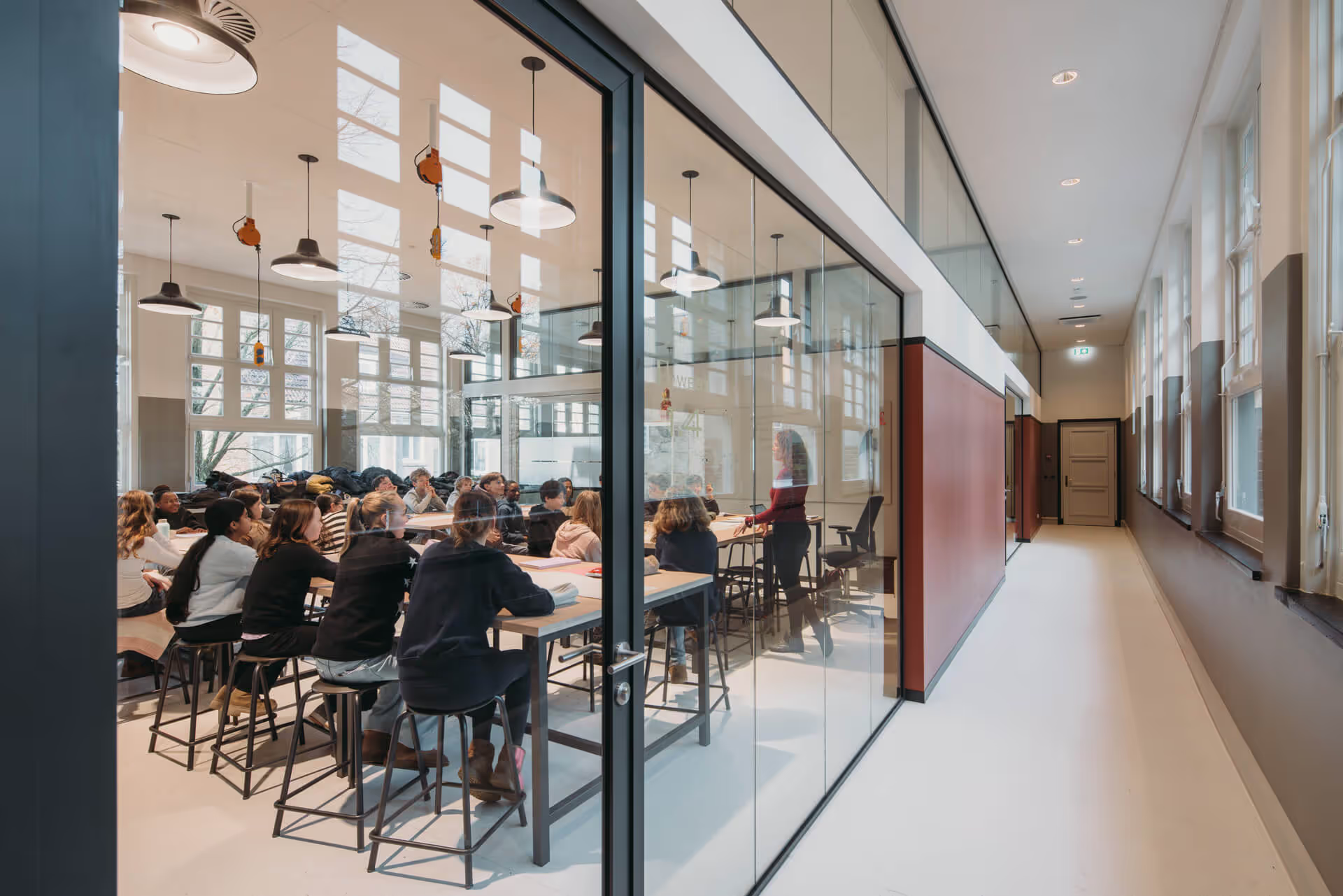
A national monument as part of Plan Zuid
The Berlage Lyceum is located in a national monument from 1924 that consists of two mirror-symmetrical buildings in the style of the Amsterdam School, which together form a gateway to the P.L. Tak neighborhood. The buildings, designed by municipal architect A.J. Westerman, have been used for education from the start — originally as the First Higher Civic School and the Second Public Trade School.
The Berlage Lyceum now
In 1967, both schools merged to form the Berlage Lyceum, named after architect and urban planner H.P. Berlage. The current Berlage is a UNESCO school with bilingual education for MAVO, HAVO and VWO. Freedom, tolerance and global citizenship are paramount, as are valuing, challenging and stimulating each other — and it was the express wish that the renovated school building would accommodate these ambitions.
Innovation with respect for the monumental complex
“When we arrived here, we found a neglected old lady, but a beauty was hidden behind it,” Dorte Kristensen.
The interior of both buildings was in urgent need of renovation; for example, many spaces were closed, original details and colors were no longer visible, and the state of maintenance was worn out. There were also no places to shape the new educational vision. With our design, we restore the complex to all its former glory and with respect for the monument. For the renovation, we based ourselves on architectural and color historical studies; new interventions - in close consultation with the Preservation of Monuments - always remained in the spirit of the original design.
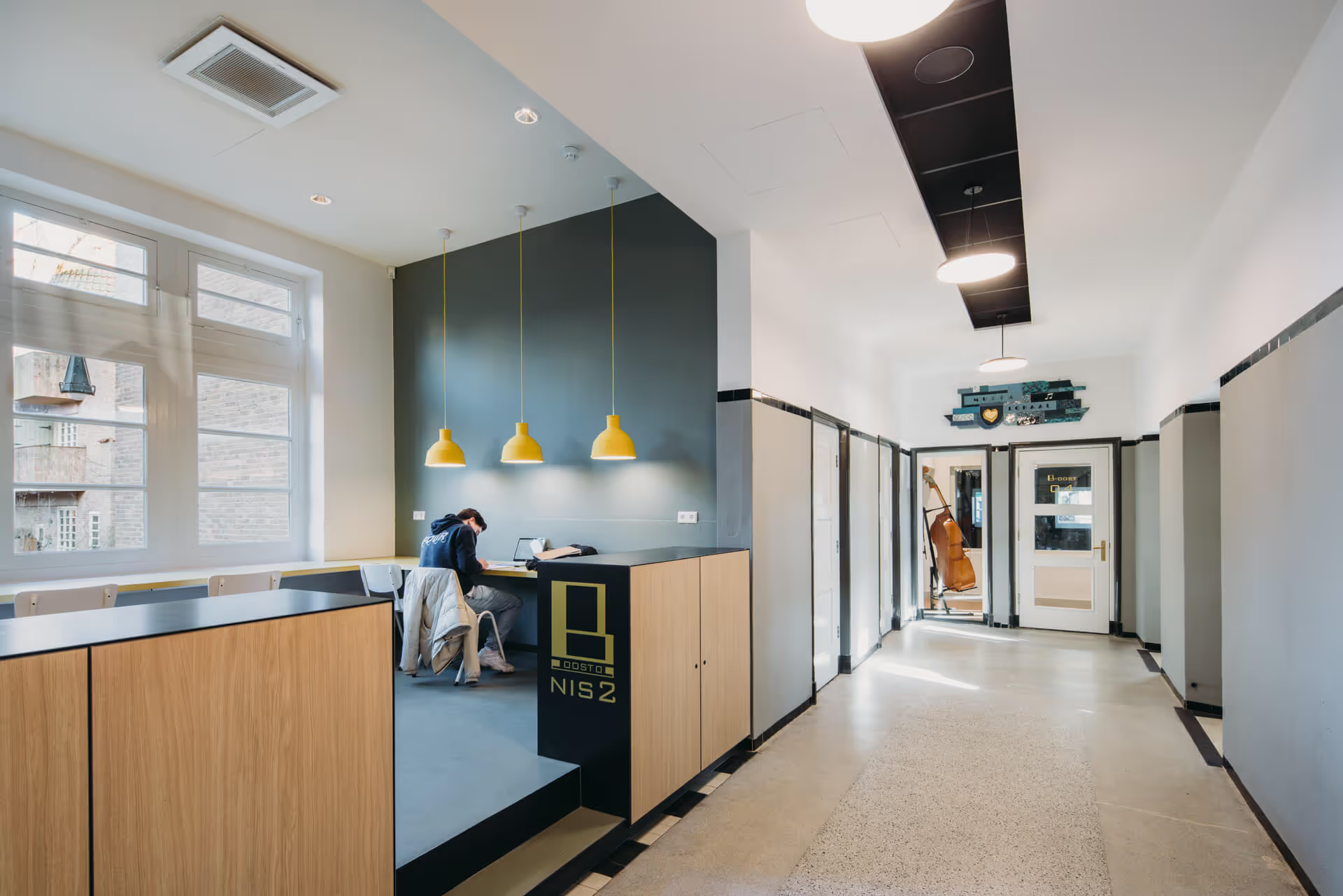
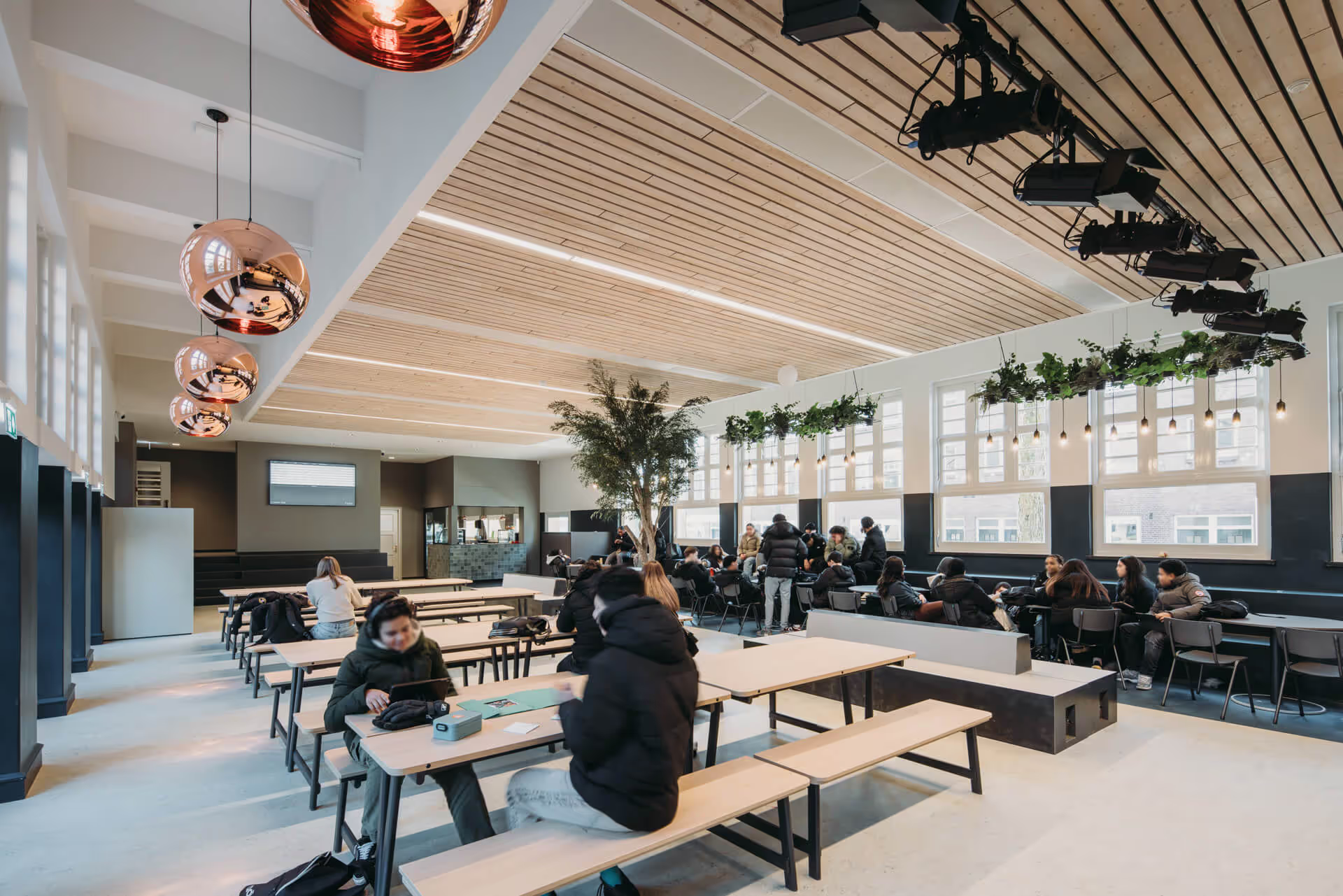
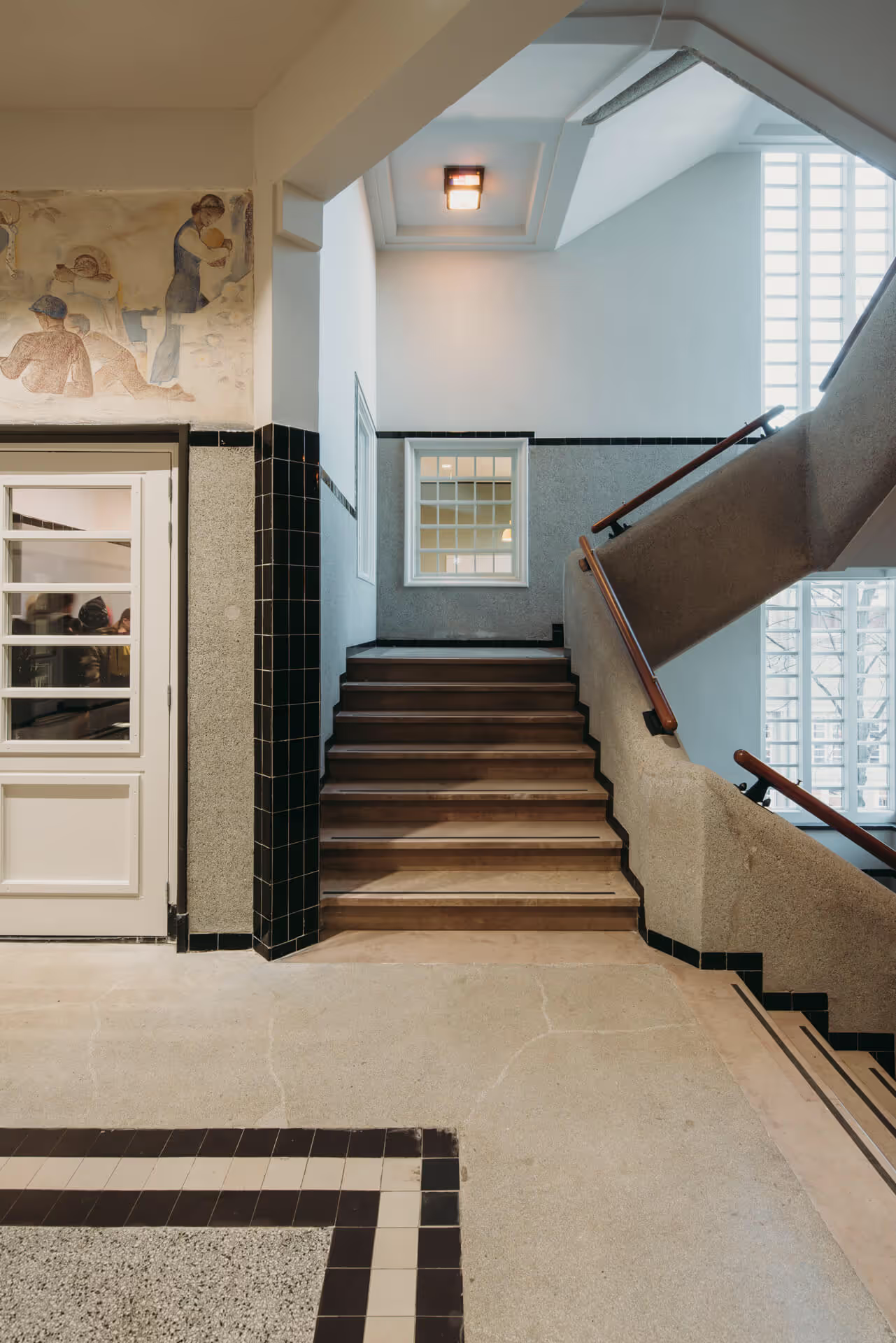
Old details innovatively restored
As part of the renovation, the old cloakrooms were reopened and transformed into study areas, and the once repainted fine gravel paneling in the central halls and stairwells was brought back. We also retrieved the original color scheme - where this is known based on research - and installed new fire-resistant doors, designed as copies of the original ones, with the original refined details. In doing so, we not only pay attention to 'originality', but also to sustainability: even the old seagrass floor insulation has been recycled.
New interventions in line with the original architecture
At the same time, we enlarged the classrooms by 'moving' walls, made windows to the classrooms where there used to be wall cabinets and, with a breakthrough, created a double-height space for music education between the ground floor and the basement, which now houses an auditorium; the former gymnasiums have been transformed into practical spaces for art and science. For example, with responsible interventions, we have created modern classrooms and special spaces, within a characteristic national monument at an important location within Plan Zuid.
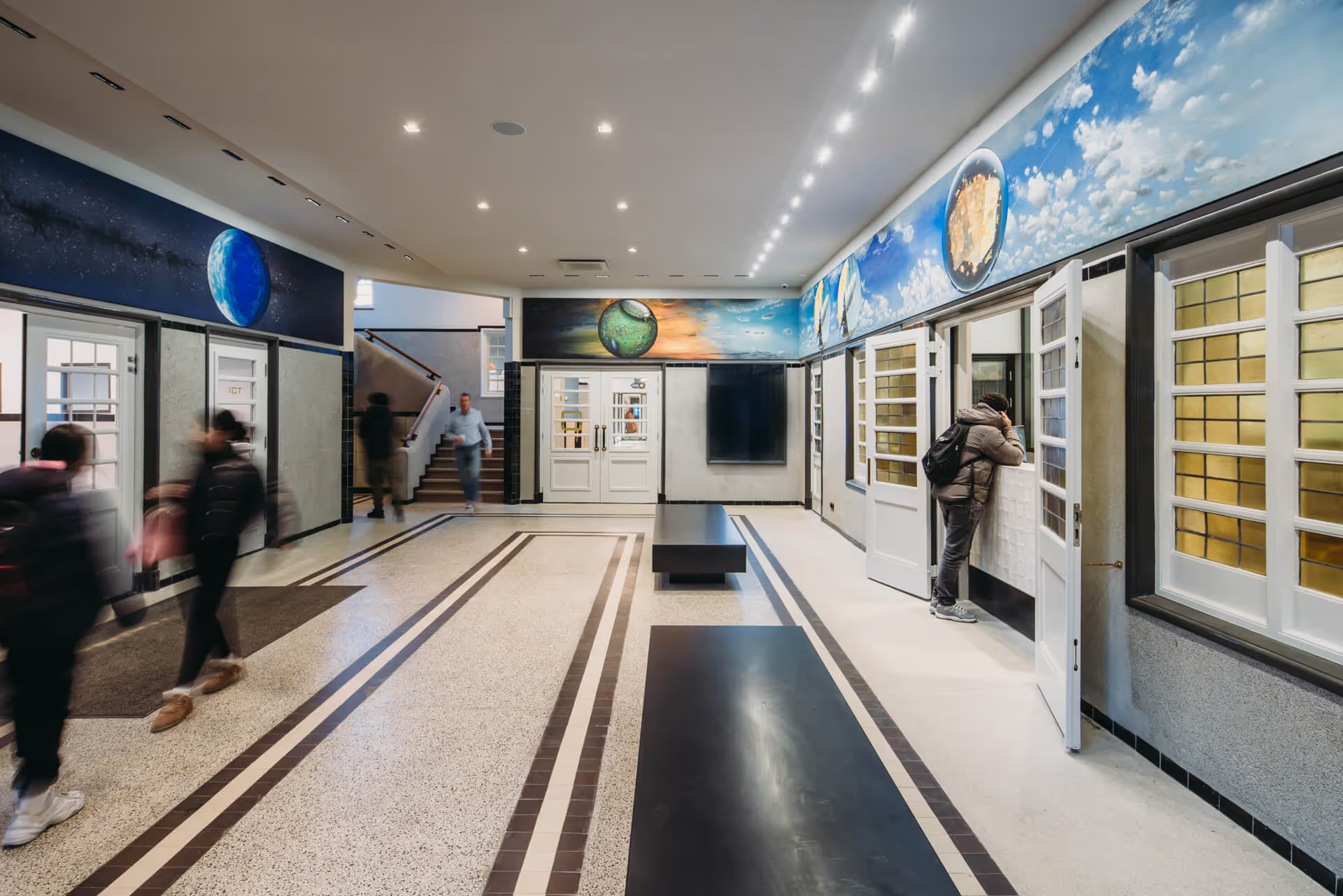
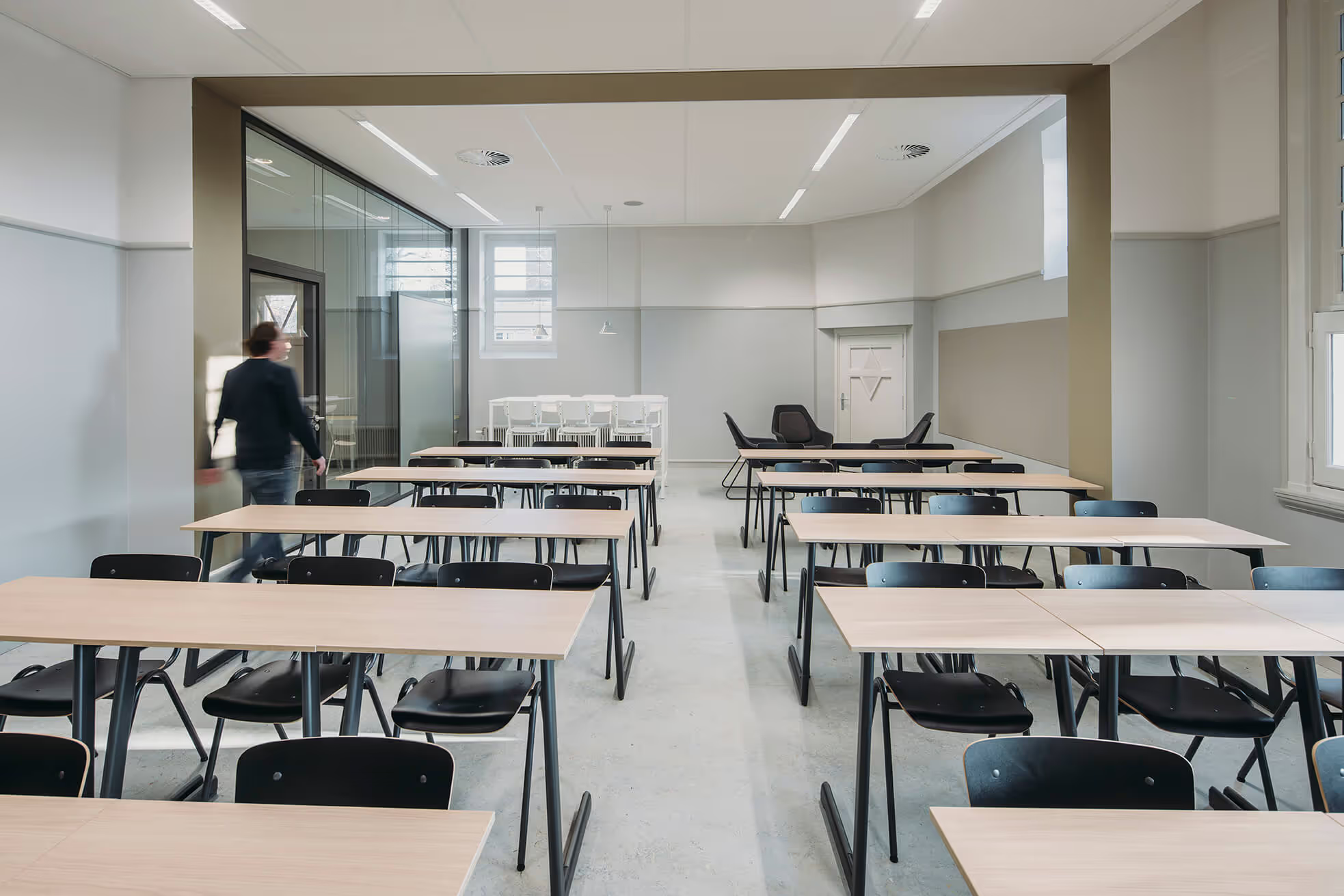
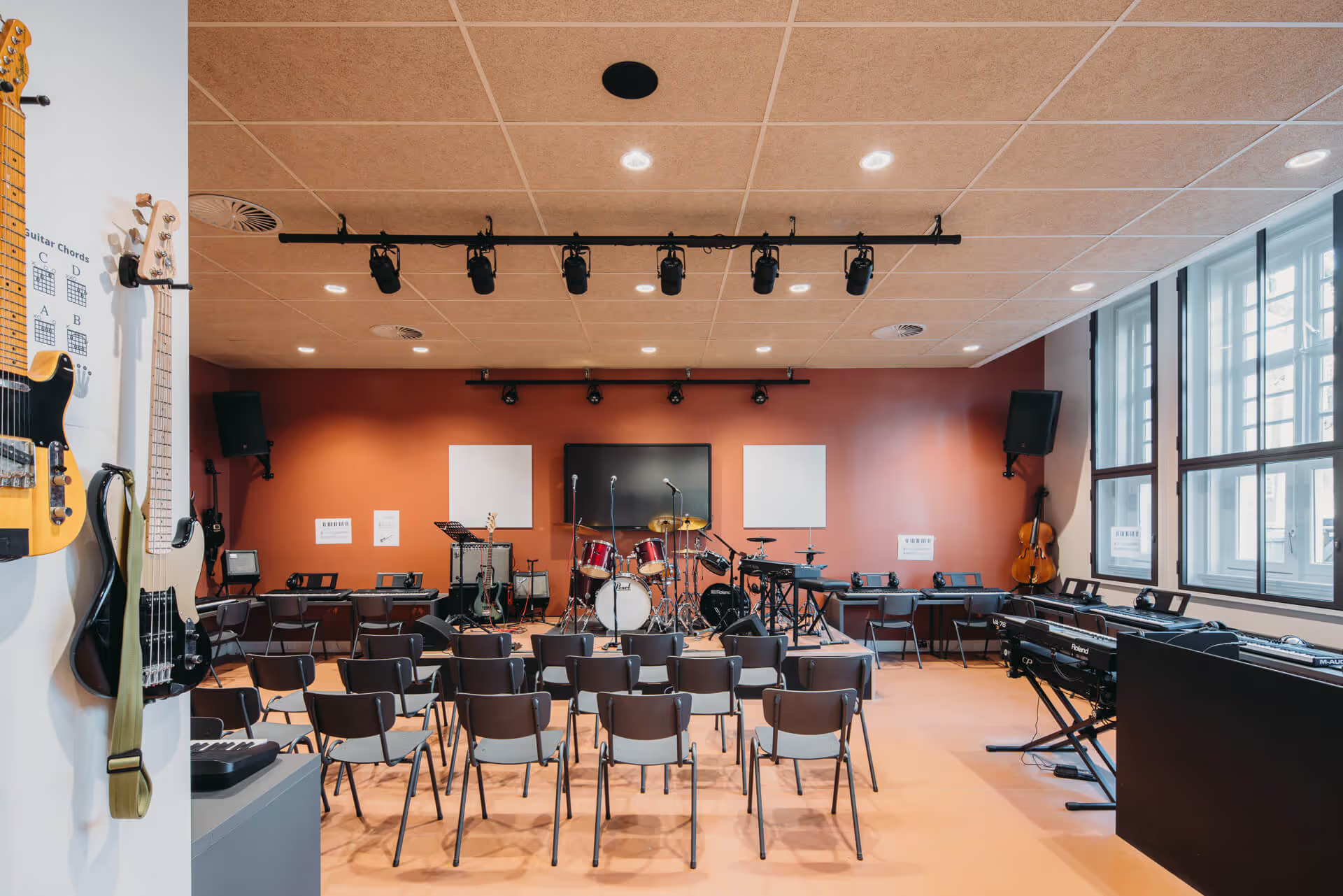
Amsterdam School: the building as a gesamtkumstwerk
One of the main principles of the Amsterdam School was the connection between architecture and art, something that is reflected at the Berlage Lyceum, among other things, in Hildo Krop's stained glass windows and façade sculptures. In the 1920s, two artists were also asked to make a mural: Joop Sjollema painted an ode to work with 'The Cycle of Seasons', while Peter Alma chose 'The Trade and its Means of Transport'. Both these murals are and will remain on display in their original location - the halls on the first floor. But a renewed school also requires a new art assignment, an assignment for a work of art from today.
A site-specific artwork by Olphaert den Otter
That is why artist Olphaert den Otter created the mural “An Unforgettable Day” in the hall of building B, especially for the Berlage Lyceum; with the work, he responds to the existing frescoes in the building, but also reflects on the present. A frieze of cloudy skies that follows the course of the day hangs over the four walls of the entrance hall, containing a number of tondos. In these tondos, Den Otter looks at the natural world, from the smallest to the largest level, from insect life to ocean currents; at the same time, he also takes a look at the downside of our activities — with burning zeppelins and blast furnaces — and thus examines our lives. Two of the tondos are about the future, about the students' dreams. This is how a multi-layered work has been created that makes people think without making a direct judgment, and that can also play a role in education at the same time.
